How Christine Bastian & Cisco are breaking the traditional rules of HR to focus on the future of talent P156
As a world citizen, Luis Arjona brings a global perspective to help Nielsen reach new markets P135
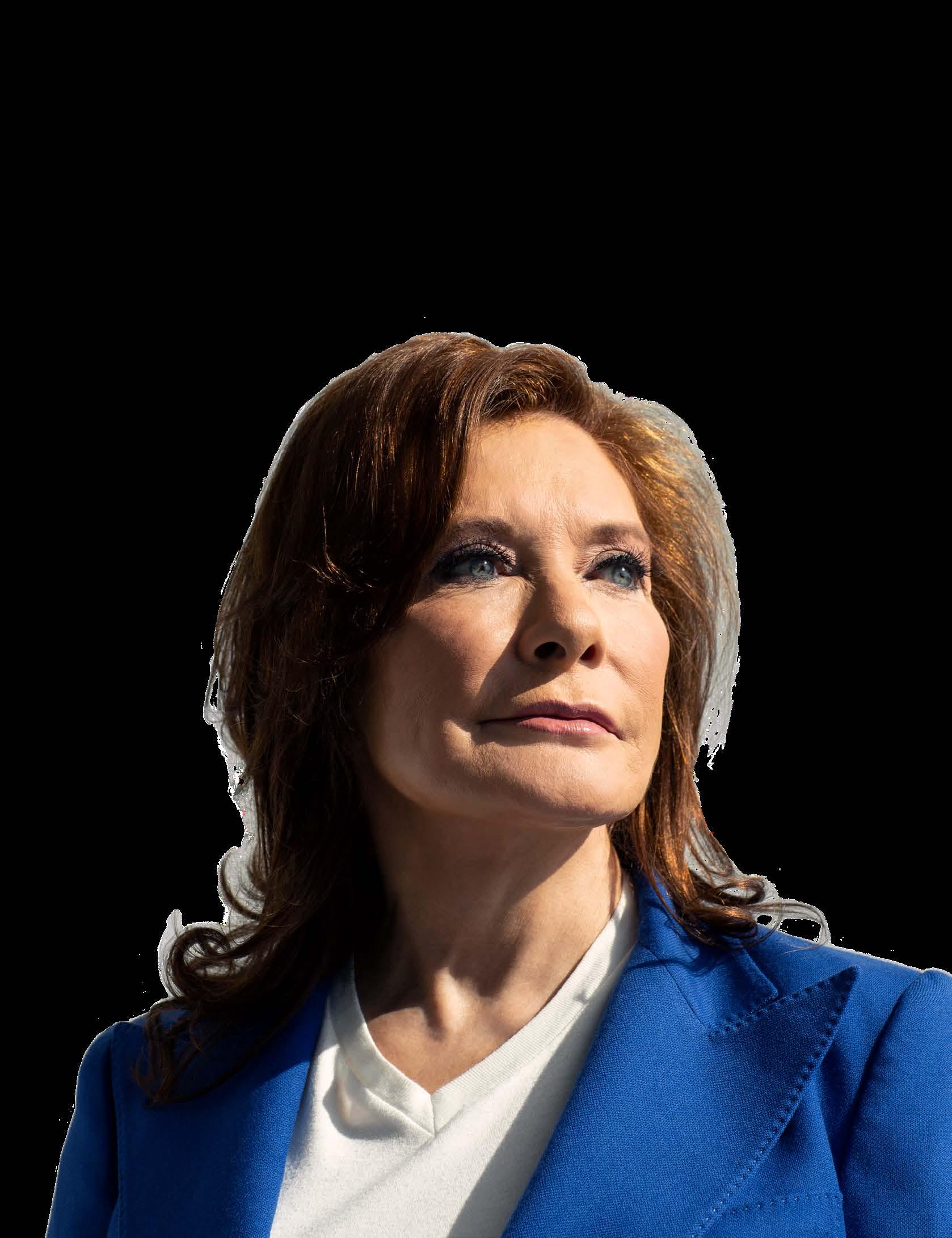
LÍDERES 2O18


How Christine Bastian & Cisco are breaking the traditional rules of HR to focus on the future of talent P156
As a world citizen, Luis Arjona brings a global perspective to help Nielsen reach new markets P135


With amdocsONE, Amdocs helps you accelerate your dynamic and continuous digital transformation.
Utilizing innovative solutions, available on an open, modular architecture, we deliver business improvements to drive growth in fast DevOps sprints. Our unique and global perspective, based on long-term relationships with 350 communications and media providers, as well as technology and distribution ties to more than 600 content creators, allows us to address your key business imperatives.
Changing the pace and economics of our industry.
LINDA ALVARADO
ANA VALDEZ
LUIS PATIÑO
DORENE DOMINGUEZ
TONY JIMENEZ
TED ACOSTA
BEATRIZ ACEVEDO
PATTY ARVIELO ANGELIQUE
Tackling today's issues facing the Hispanic community

Top-level insight and updates on business in America
38 Roger Estrada has built a successful career in the creative industry by staying open to new opportunities and adapting to change
48 Antonio Argibay founded Meridian Design on the principle that people come before technology
Rochelle Newman-Carrasco and Alice Rivera are partnering for progress at creative agency Walton Isaacson
21 8

Michael C. Camuñez knows the value of positive USMexico relations
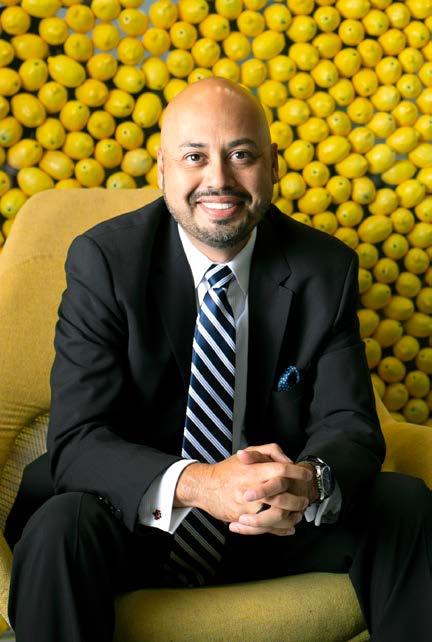
Sergio Barrios helps lawmakers see things from the perspective of Mike's Hard Lemonade
Cruzando fronteras: Strategies driving business across borders
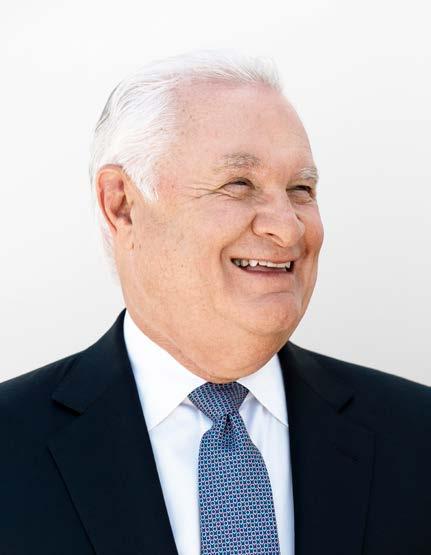
130
Christiane De Carvalho helps Acxiom reach untapped markets in Latin America
122
Juan Cento is leading FedEx's success in emerging Latin American markets
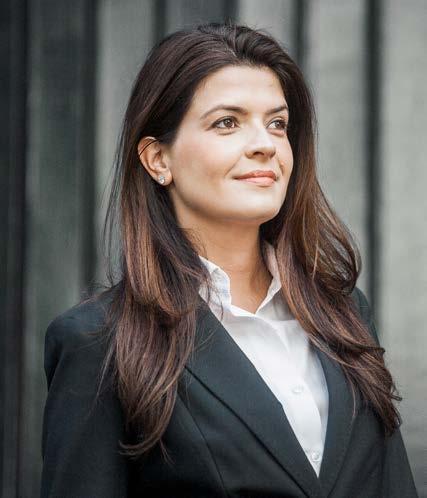
Plotting the path to Hispanic leadership
156
175
Christine Bastian is setting up Cisco for success by changing the way HR operates
Marisol Fisher is merging design and empathy in her role at Hyatt Hotels Corporation
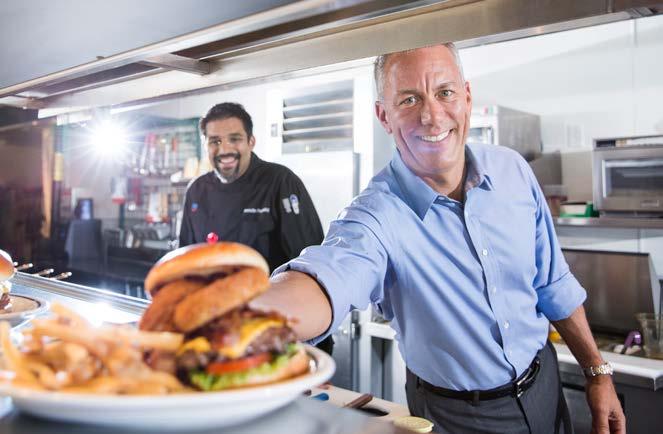
146
Darren Rebelez started out on the front lines of the restaurant industry. Now, he's ensuring franchisees' and employees' success as president of IHOP
THE TALENT ISSUE
The first issue of 2019 brings together thought leaders who are driving the future of talent.
Acevedo, Beatriz 106
Acosta, Ted 102
Acxiom 130
Alvarado Construction 80
Alvarado, Linda 80
Argibay, Antonio 48
Arjona, Luis 135
Armas, Jim 32
Arroyo, Thaddeus 138
Arvielo, Patty 110
AT&T Business 138
Barrios, Sergio 26
Bastian, Christine 156
Bci Securities 57
Campos, Roel 118
Camuñez, Michael C. 8
Carnival Corporation & plc 162
Celldex Therapeutics 34
Cento, Juan 122
Central Street Capital 114
Cisco Systems Inc. 156
City National Bank 18
Colón, Rick 74
Das Media Group 184
Das, Shinjini 184 De Carvalho, Christiane 130
Dominguez, Dorene 96
Dunkin’ Brands 74
Duran, Gian 41
Eastern Funding 52
Ernst & Young (EY) 102
Esterripa, Juan 18
Estrada, Roger 38 everis 142
FedEx Express Latin America 122
Fisher, Marisol 175
Goldman Sachs 44 Hamburg Süd 127 Hernandez, Jonathan 44
Hughes, Hubbard & Reed 118
Hyatt 175
IHOP 146
Cesar
Angelique


Tackling today's issues facing the Hispanic community
During a time of heightened tensions between the United States and Mexico, Michael Camuñez and Monarch Global Strategies help bring together the best that both countries have to offer

By Jeff Silver
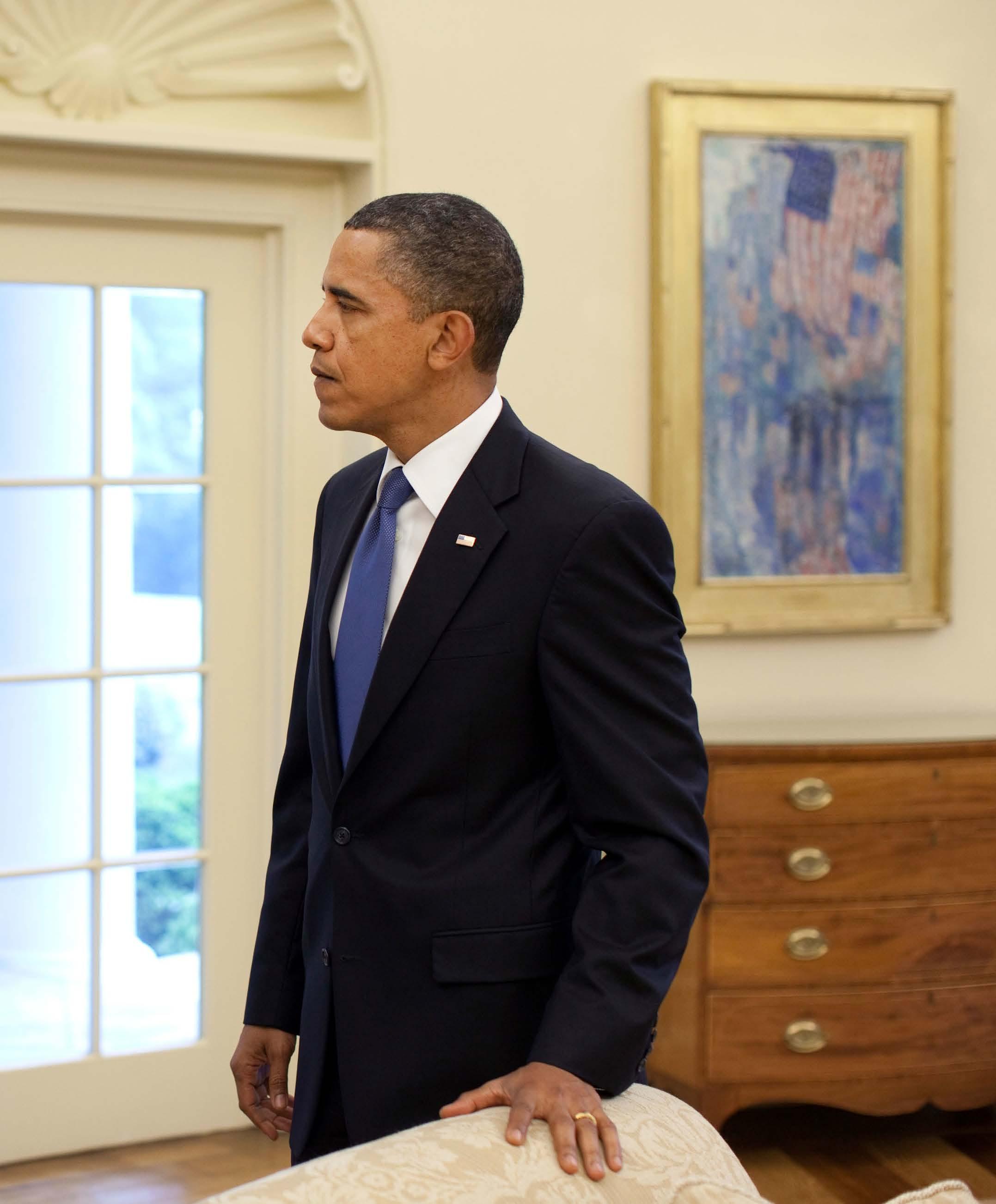
grew up in Las Cruces, New Mexico, about thirty miles north of the US-Mexico border crossing in El Paso, Texas. He remembers a time and place where most everyone was bilingual, there was minimal border security, and shopping trips to and meals in Juárez, Mexico, were common. He saw Hispanics in positions of prominence: his great-grandfather was sheriff of Doña Ana County, and his grandfather was a successful farmer.
“Growing up in the border region gave me a real appreciation of my heritage and a belief in an integrated and interlocking future for the US and Mexico,” Camuñez says. “I’ve always believed that we’re stronger together than we are apart.”
He has carried that perspective with him throughout his career as a partner and international litigator at O’Melveny & Myers LLP; as a member of the 2008 presidential transition team for Barack Obama; in subsequent positions at the White House as special assistant and special counsel to the President; and, eventually, as assistant secretary at the US Department of Commerce. At the Department of Commerce, he helped manage trade policy and bilateral trade relations globally and was a principal advocate for US commercial interests abroad. While in that position, he recognized the strategic importance of Mexico to the United States. So, he helped launch the High Level Economic Dialogue (HLED), an initiative to position the US and Mexico as partners to promote competitiveness and productivity, which was led at the presidential level.
Camuñez, who traveled with President Obama to Mexico City to launch the HLED, considers it his greatest achievement with the Commerce Department. “It appropriately positioned Mexico as a strategic ally, integral to our success as a nation, and able to help us compete against rising economies like China and other ascending powers,” he notes.
His experience, expertise, and commitment to strategic partnerships led to Monarch Global Strategies—where Camuñez is president, CEO, and cofounder with Jim Jones, the former US Ambassador to Mexico. The firm provides consulting and strategic business advice to companies seeking to invest and do business in Mexico and Latin America.
In an era when Mexico has been the focus of what, Camuñez feels, has been extraordinarily negative and insulting characterizations by the current US administration and its supporters, Monarch has provided a kind of private diplomacy. The firm shows that many Americans believe in the promise of Mexico and the importance of strong relationships with American businesses.
“We’re able to help build trust and cooperation, dispel misconceptions, and help develop successes on both sides of the border,” Camuñez says. “I enjoy seeing the aha moments of Americans who haven’t been to Mexico recently. They discover that it’s the eleventh largest economy in the world, with a vibrant and growing middle class, and it’s a manufacturing powerhouse. They’re blown away by what they see.”
Monarch’s US clients are working to bring state-of-the-art technologies, such as renewable energies, to Mexico, in addition to healthcare and investments in the automotive, manufacturing, transportation, and energy sectors, as well as the country’s infrastructure.
One major project is developing Mexico’s new international airport, which Monarch’s client Parsons is helping to manage. The current facility, Benito Juárez International Airport, is already the busiest in Latin America; it serves approximately 42 million passengers annually. Now, the new airport is projected to serve 70 million yearly passengers, expanding to accommodate 125 million passengers as subsequent phases are completed, which will make it the second-largest air terminal in the world.
Camuñez points to the firm’s intimate understanding of Mexico as the greatest value that Monarch offers its clients. “We’re a multidisciplinary team that knows Mexican culture, the regulatory environment, political dynamics, unique attributes of the private sector, and how to avoid risks that are inherent in any business environment,” he says.
In addition to his client-based responsibilities, Camuñez is an active mentor to up-and-coming Hispanic professionals. He has been involved in mentoring his entire career, beginning with his legal career when he advised young law students and
Edison International Congratulates and honors
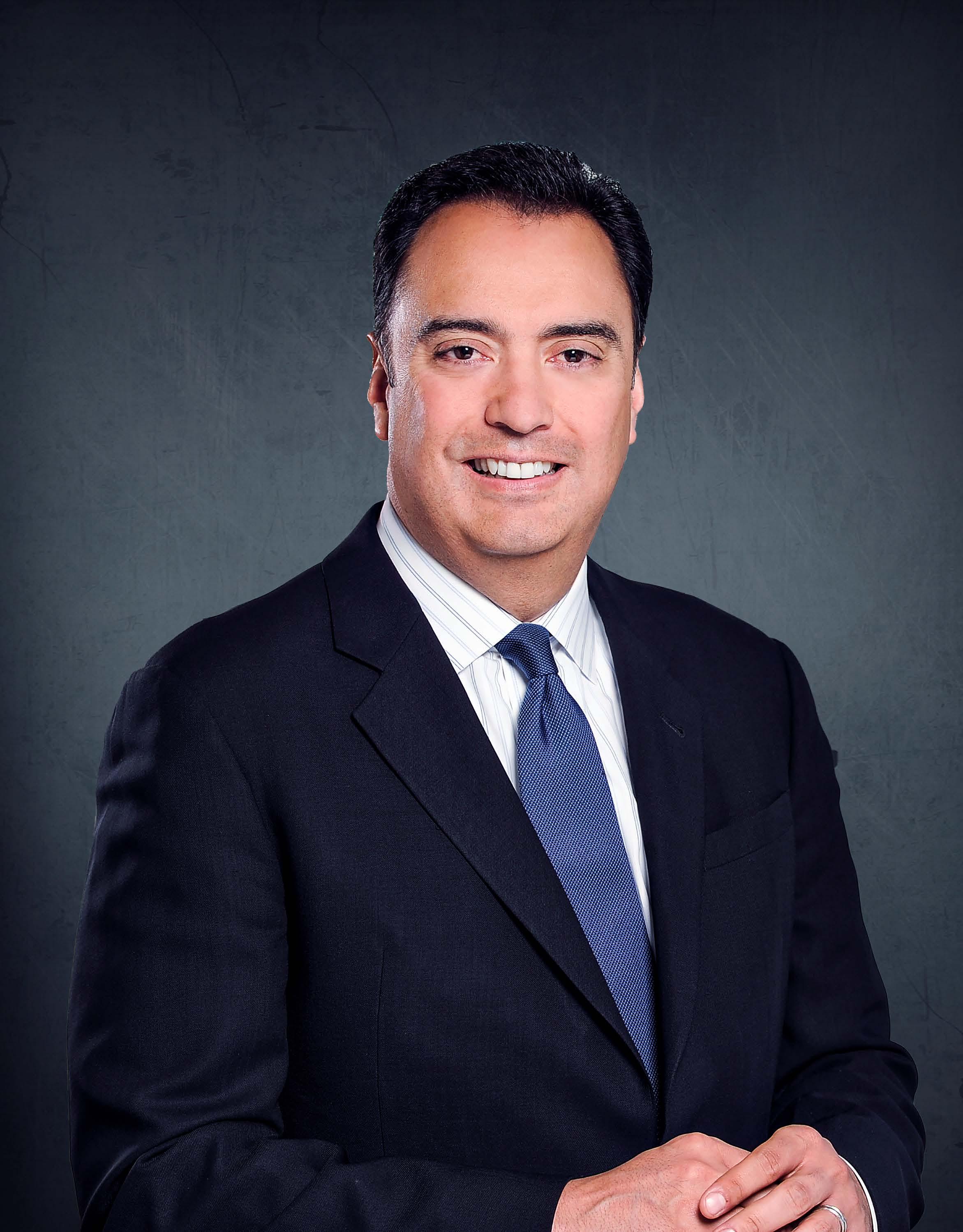
We are proud and fortunate to have Michael on our board of directors.
Michael Camuñez serves on the boards of directors of several organizations that enable him to use his experience and expertise to support a variety of causes that he believes in.
Edison International & Southern California Edison, Director Camuñez draws on his experience in public policy, politics, and governance. “Michael brings a wealth of expertise to our board,” says Pedro Pizarro, president and CEO of Edison International. “His deep knowledge of public policy issues, along with his legal acumen and business leadership abilities, are invaluable to us.”
David and Lucile Packard Foundation, General Trustee
The Foundation aligns with his strong interest in children, families, and the environment.
Pacific Council on International Policy, Director and Chair, Mexico Initiative
Camuñez leverages his experience in foreign policy to promote USMexico relations and to fight negative stereotypes and misconceptions about Mexico.
Center for Law and Social Policy (Washington, DC), Director His work with the center enables Camuñez to advocate for the needs of at-risk children and families.
associates. This extended to his responsibilities with the Obama transition team and his service in the White House Office of Presidential Personnel, where he recommended a record number of Senate-approved Latino appointees.
“I really enjoy being of service and being able to offer handson direction and active guidance to young professionals,” he says. “I didn’t have that available to me when I was starting out, but as I have continued to reach new levels of opportunity, I’ve made sure to leave a door open for those who follow.”
One of the perspectives he tries to offer his mentees is that there is no linear path from A to Z. As a result, they need to position themselves within what he calls “the arc of their careers” and stay as open as possible to the opportunities that present themselves.
“Growing up in the border region gave me a real appreciation of my heritage and a belief in an integrated and interlocking future for the US and Mexico.”
“You have to make sure you’re doing what’s required for the career you want, but you should still be open to the unique chances that come along because of who you are and what you know,” Camuñez says. “Many of the young people I work with appreciate hearing that because it reduces their anxiety about the future and gives them a sense that there’s some method to the madness of planning a career.”
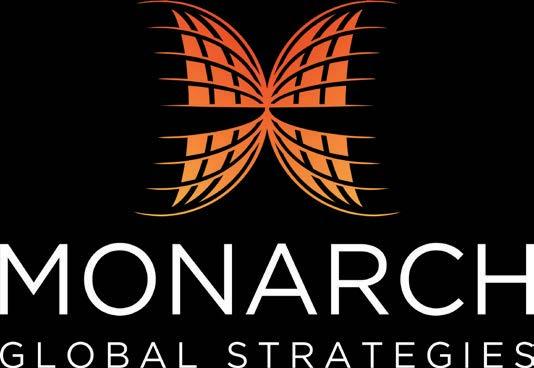
Your partner for doing business in Mexico and the Americas

Monarch is proud to recognize our President & CEO, Michael C. Camuñez, for his leadership in building bridges between the United States and Mexico and for his tireless advocacy for a stronger North America.
Monarch Global Strategies is a strategic consulting and advisory firm that helps investors and companies to succeed doing business in Mexico and the Americas.
www.monarch-global.com info@monarch-global.com
MEXICO CITY |
e David and Lucile Packard Foundation congratulates MICHAEL CAMUÑEZ on being recognized as one of Hispanic Executive Magazine’s Top 10 Líderes of 2018!

We are honored to welcome Mr. Camuñez to the Foundation’s Board of Trustees.


warmly congratulates
Monarch Global Strategies President and CEO
Michael C. Camuñez on his well-deserved recognition as an exceptional lawyer and leader.
For over 50 years, the David and Lucile Packard Foundation has worked on the issues our founders cared about most: improving the lives of children, enabling the creative pursuit of science, advancing reproductive health, and conserving and restoring the earth’s natural systems.
www.packard.org
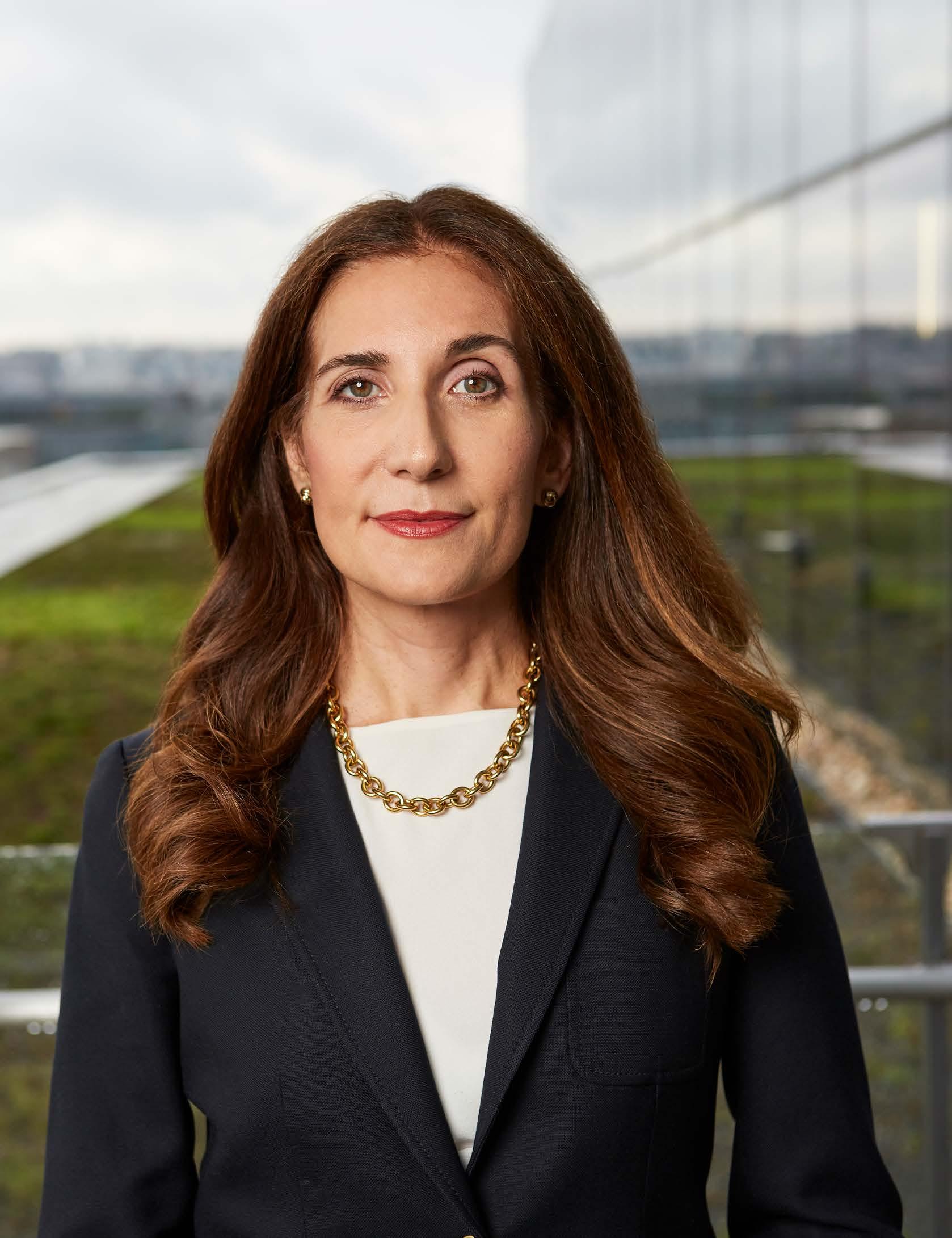
By Kelli Lawrence
After eight years as a presidential appointee in the Obama administration, Lisa Pino finds renewed purpose in Washington, DC, at Mayer Brown
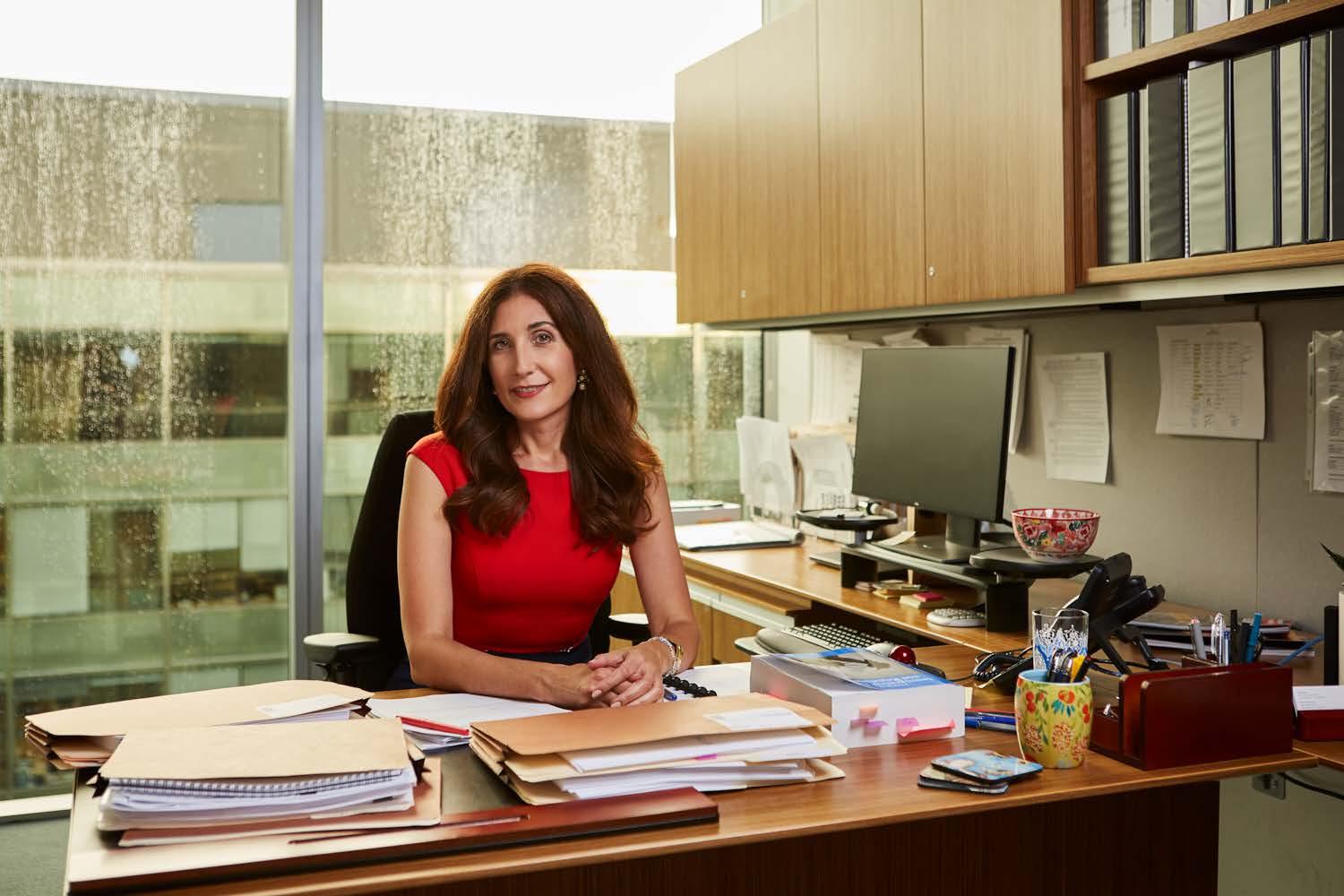
Immigration attorney Lisa Pino likes mentoring young people whenever the opportunity arises. So when she came across an overwhelmed-looking intern at a Washington, DC, event last year, she gave her more than just a sympathetic look. She gave her several minutes of her time, finding out things they had in common and offering encouragement. Pino also gave her a business card, urging the young woman to contact her about anything she might need. “Sometimes, it’s better to be able to reach out to someone when you don’t know anyone at all, right?” Pino says.
The intern eventually gave her something, too: an email of deep gratitude that acknowledged the comfort in her knowing that there was someone that she could reach out to who knew her background and looked like her.
“It just doesn’t get any better than that,” says Pino, who is a first-generation American with a Cuban mother and Spanish father. “I have met a lot of young people with similar stories.”
Stories like that help sustain Pino amid all the recent changes to the immigration landscape and all the anxiety it begets for clients and immigration recipients. Considering the size of the global mobility and migration practice at Mayer Brown—where she’s been practicing law since the spring of 2017—that anxiety builds up quickly. Nonetheless, Pino is committed to providing the best advice possible.
“Our clients are Fortune 100 companies that are trying to hire and retain the best and the brightest,” she says. “They want
to be able to move their workforce around the world as the business demands, regardless of where an employee originates from or what their nationality is. Trying to help them keep work flowing seamlessly, without surprises, at the border or at the embassy—it’s easier said than done in this time of change.”
With both of her parents coming to the United States as immigrants who were escaping political turmoil, Pino was born and raised in New York City with a strong sense of integrity, honesty, and resilience. Those values, she says, organically led her into a career of public service. But a yearning to see the country outside New York, combined with an affordable, Hispanic-friendly college opportunity at Arizona State University, turned into nearly a decade in the Southwest. There, with her bilingual and bicultural background, she was drawn to immigration law. She even worked at border detention centers in Arizona during her tenure there.
“I’m so grateful for the impact Arizona had on my personal and professional life,” she says. “I got to see the impact of national policy at the local level, both in urban and rural areas, and I feel it’s made me a better leader and decision-maker than if I’d worked exclusively in a big city.”
Pino lived in Arizona when Barack Obama was first elected president in 2008. Although she didn’t work on his campaign, she volunteered and was certainly captivated by it. When he created online opportunities to apply for jobs in his administration—the first time a US president ever did so—Pino decided
to give it a shot. Then in April 2009, the phone call that changed her life came: she was among those chosen from hundreds of thousands of applicants to serve in Washington, DC. She ultimately spent five years with the US Department of Agriculture and three years with the Department of Homeland Security, all as an appointee in senior executive service roles. In fact, she stayed with the administration until the last day of Obama’s second term in January 2017.
Although her decision to become a public-service attorney would require lower pay—a fact that concerned her parents, particularly in recession-plagued 2009—Pino says she was very fortunate to work for the Obama administration. “I saw it as a privilege and a responsibility to use my time to give back,” she says, “and see how I could galvanize what I viewed as the right decisions, aligned with the president’s priorities, in a way that best served the American people.”
When the presidency changed hands, the priorities changed as well. For example, a proposed travel ban took center stage. Pino’s background with immigration issues and homeland security compelled her to stay involved, this time in Washington’s private sector. At an event supporting those negatively affected by the travel ban proposal, she learned of Mayer Brown’s global mobility and migration practice. In the past year and a half at the firm, Pino sees compliance as a recurring area of emphasis for the firm’s clients—both in terms of how they should plan short-term for immigration changes as they occur and in how they should leverage such legal changes into business decisions that still serve their long-term goals.
“Sometimes it’s straightforward; sometimes it’s more nuanced. But I think the best way that we can deconstruct our approach is through what we call the Global People Solution,” she says. “That means we address the clients’ needs comprehensively so that whatever solution works best is customized to the client and really honors what their goals are today and for years to come.”
But how can that be done effectively when the current state of immigration affairs is so turbulent? Pino says it’s about addressing fundamental issues, staying savvy about building commonality, and—frankly—a keen ability to oscillate with each news cycle. Changes in policy, both in the United States and abroad, require firms like Mayer Brown to be able to anticipate, respond, counsel, and strategize as swiftly and responsibly as possible. And Pino believes that Mayer Brown has both a framework and an infrastructure firm enough to allow them to adapt at will.
Fortunately for the clients of attorneys like Pino, the will to maintain justice remains steadfast and strong. “Lots of different stakeholders are engaged in the immigration debate, but there isn’t always enough of a unified coalition, and that’s important,” she stresses. “The diverse talent pool that people rely upon stretches across race, gender, and country of origin. Take everyone from scientists like Einstein—who became a naturalized US citizen—to the founders of Google, for example. It enriches us as a nation to have talented people—no matter where they’re from—participate in our economy. It makes us stronger.”
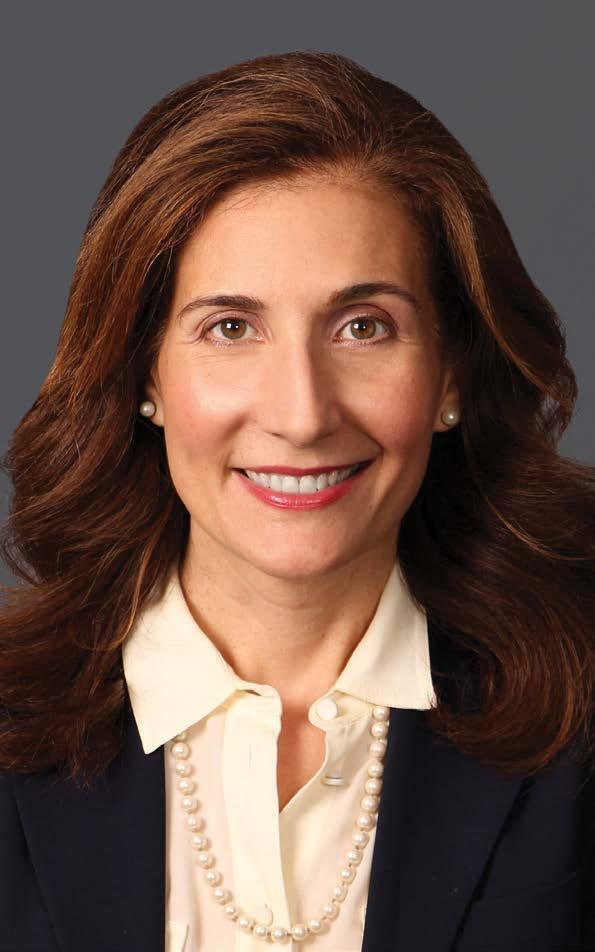
We are honored to congratulate our counsel Lisa Pino, a remarkable líder in the legal community.
Americas | Asia | Europe | Middle East www.mayerbrown.com
Juan Esterripa’s endless energy fuels his passion for clients, deals, and community
By Kelli Lawrence
Juan Esterripa is always on the move, propelled by an almost nervous energy. A phone is almost always on his ear. If not, he’s texting a client, prospect, or employee. Or he might be pacing the halls at the office, pressing the flesh, and making sure his deals are moving along.
Inertia is strong with him. He never seems to stop; he’s driven by a passion for dealmaking and taking care of his clients.
“I have known Juan for almost fifteen years, and his approach to banking relationships never focused on rates and ratios. It’s about understanding the business and developing the relationship,” says Shaul Zislin of SurfStyle. “Now that he is with CNB, he has the ability to really focus on these two matrices as it is shared by the bank as a strategy.”
His road to head corporate banking at City National Bank, Florida’s third-largest bank, was long and required that level of determination. His is the story of an immigrant who came to this country and clawed his way up.
“I realized early on that if I was going to make something of myself, I had to be willing to work harder than the next guy,” he says. “There’s no shortage of talent, so you have to be willing to do more, to have the drive and determination, and to put in the hours to get what you want out of life.”
For Esterripa, City National’s executive vice president of corporate banking, success also comes with responsibility to his family, his community, and the younger bankers he’s taken under his wing.
“It’s not about what you can put in your pocket; it’s about being a good person,” he says. “That’s number one. Then comes taking care of your family and community. Everything else falls in place. What I enjoy most is being able to shape that younger generation—to give them that perspective in life.”
Esterripa originally hails from Peru, where his father’s work in the tourism industry served the family quite well until the early 1980s. That’s when The Shining Path—a Maoist guerrilla group that Esterripa describes as a violent terrorist organization—created instability within the country, consequently derailing tourism. His family made their way to a new life in the United States, with Miami replacing Cusco as home just before Esterripa turned thirteen.
It didn’t take long for him to develop a strong work ethic all his own. At age fourteen, he was busing tables at Miami restaurants, which led to waiting tables, which led to restaurant management. When he felt he’d had his fill of the restaurant industry, he tried his hand at retail— often working two or three different jobs at a time by his late teens, no matter what industry he was in. “Yes, I was put in a different situation that was more challenging,” Esterripa says of his early days in the United States. “But that allowed me to step up to the plate, not feel sorry for myself, and instead say, ‘This is just what needs to be done.’”
His efforts in retail carried him to the management side once again; he was running stores for The Limited. Soon after, he was approached about an opportunity in banking. “There was a strategy for banking to do a lot of recruiting from retail because—I hate to say it—retail workers had a better work ethic,” Esterripa jokes, noting retail’s need for people in evening and weekend capacities as well as more traditional hours.
A stint doing collections for CitiBank in the early 1990s had already provided him a taste of the world of finance, so he went ahead with the series of interviews necessary to get into the management associate program at NationsBank, which later became Bank of America. With an eye on commercial banking, Esterripa spent more than two decades rising through the ranks at Florida financial institutions before joining CNB in 2016.
Some of those institutions were considerably larger than CNB, which might make his decision seem counterintuitive to some. Esterripa sees CNB—which has more than $14 billion in assets—as both large enough and small enough to tend to the most important needs of its clientele. “What’s unique here is that we’re nimble. We can provide some of the same solutions as other banks, but we can customize them better to the clients,” he explains. “It’s exemplary, and that’s where I feel we can make a big difference.”
Since joining the bank, he’s taken on new responsibilities. He’s now responsible for the bank’s Tampa and Orlando
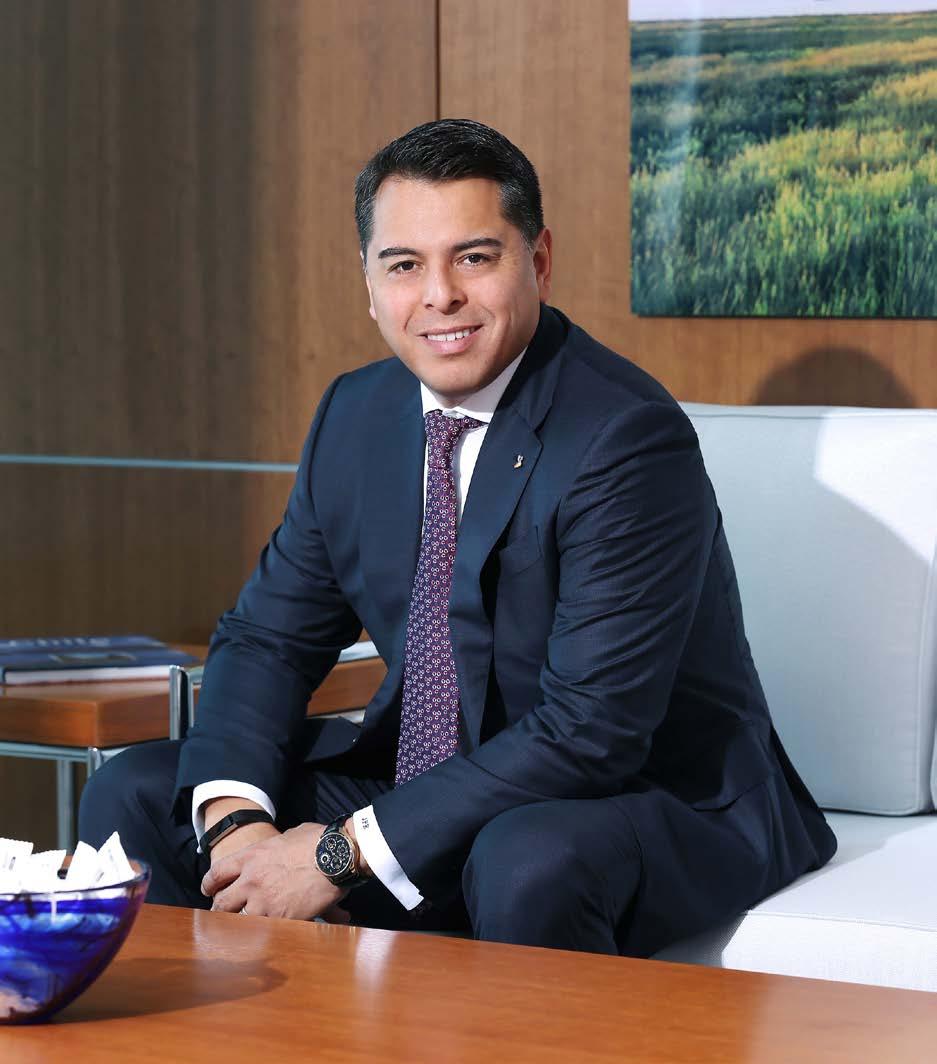
Juan Esterripa EVP of Corporate Banking City National Bank
markets, and he helped create a new department within the corporate banking division that handles the specialized financial needs of government, institutional, and nonprofit entities.
Esterripa is also a champion of community, something that also attracted him to City National Bank. The seventytwo-year-old bank has a long history of supporting the needs of the communities it serves, from programs for affordable housing and small business to supporting a host of charities and initiatives, particularly those that focus on educational access and opportunity, child development, and culture.
The bank also finds itself routinely expanding and redefining community
























































involvement. It springs into action in times of crisis, whether that means raising money to help the victims of the Pulse Nightclub shooting, helping employees impacted by Hurricane Irma, or sending volunteers to help sort relief supplies for Puerto Rico after Hurricane Maria.
“After the Pulse Nightclub Shooting, we decided we wanted to send a message as well as financial support,” says CNB’s director of marketing, Eddie Dominguez. “So, we invited every employee to participate in a day of solidarity with Orlando, which included every employee wearing a CNB-branded Orlando Strong shirt and a dollar-fordollar match for any contribution made by our team to the Orlando Fund.”
Dominguez, who also oversees the bank’s community engagement, says he can always count on Esterripa to support any community initiative.
“From a corporate standpoint, it’s usually not that difficult to write a check,” Esterripa says. “But it’s the engagement of all the employees and the understanding that our communities are so critical to our success that makes CNB stand out. Likewise, we did what we could to help our employees’ homes and families. We always do it—because we care. That’s it. We don’t say it as a punch line: we do it, we live by it, and we deliver it every day.”
Esterripa also has his personal causes, too. He’s been involved with Our Pride Academy, which helps kids with severe autism, and the March of Dimes, among other causes.
It’s his employer’s engagement, however, in which he takes the most pride. “Everything starts with family, friends, and community, right? The same holds true for City National, and that’s the reason I’m here and why I’m happy here,” he says. “They have the same values, and I’m very appreciative of that.”
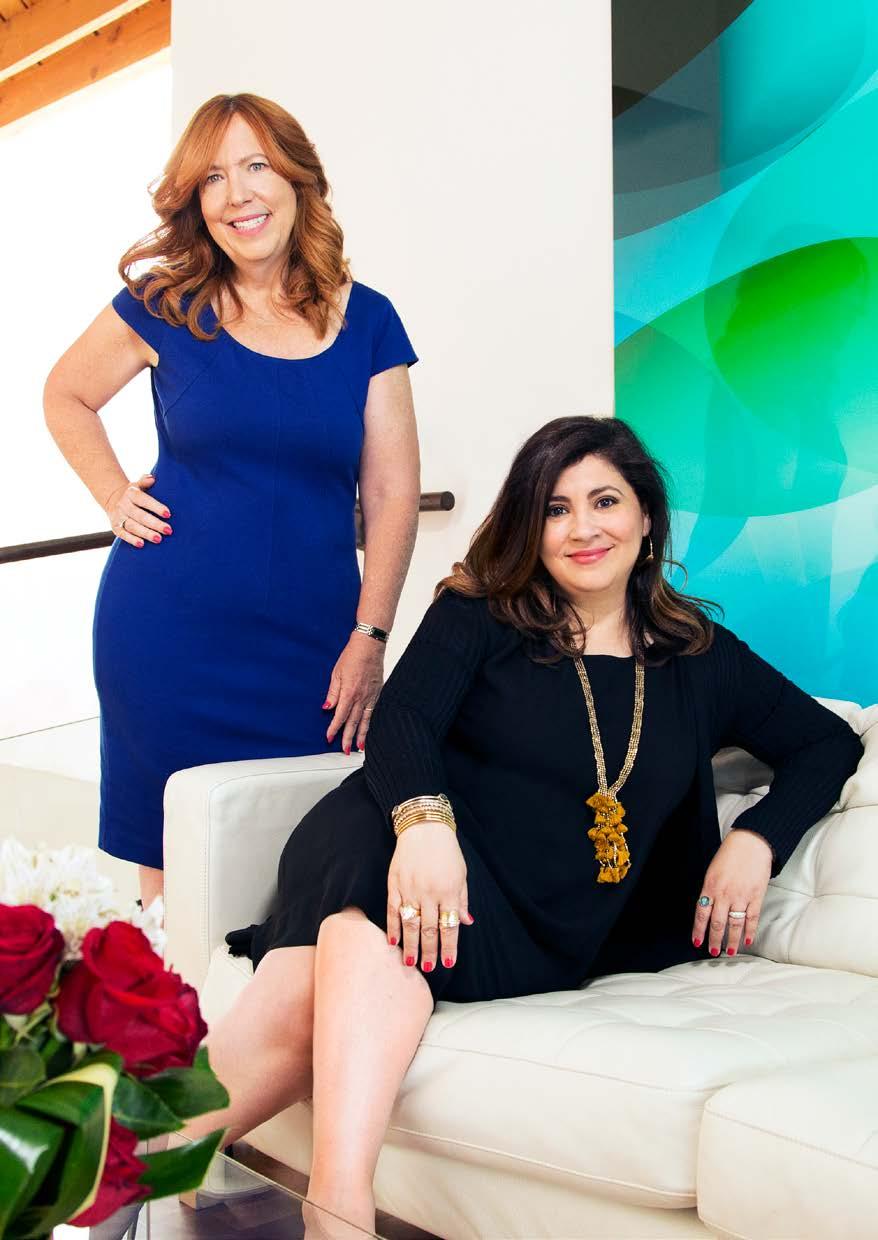
Rochelle Newman-Carrasco
and Alice
Rivera
work differently, but they’re better together
By Alison Ver Halen
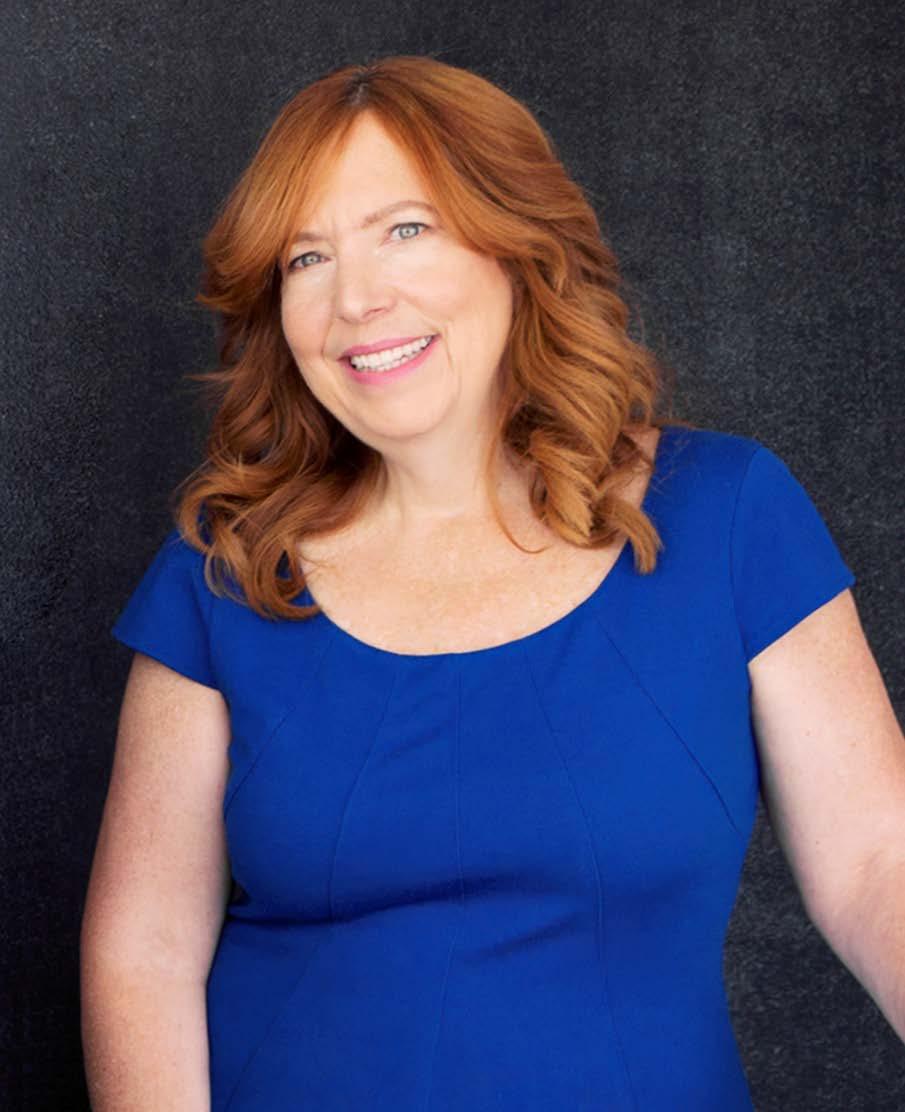
Chief Hispanic Marketing Strategist
The relationship between Rochelle Newman-Carrasco and Alice Rivera goes back almost twenty years, when Newman-Carrasco co-owned Enlace Communications Inc., one of the leading US Latino ad agencies in Los Angeles. Rivera worked for the agency as an account supervisor before building her career at a few other agencies. Then, three years ago, Rivera and Newman-Carrasco began working together again, this time at the Culver City, California, office of Walton Isaacson (WI), a nontraditional marketing and advertising agency. “I knew Rochelle was doing something special,” Rivera says, “and I was really intrigued by WI’s reputation for insights and innovation.”
Newman-Carrasco’s path to Walton Isaacson started in 2008 with the recommendation of an industry friend with whom she had worked very early in her career. After almost three decades as a prominent US Hispanic marketing specialist, including fifteen years of agency ownership, Newman-Carrasco was getting ready to return to her roots as an actress and writer. In fact, she was winding down her agency when she was introduced to Aaron Walton.
“Aaron and Walton Isaacson were so forward-thinking, and I saw they were doing some very visionary work in the cultural marketing space,” Newman-Carrasco says. “I wanted to be a part of that.”
WI was the agency of record for Lexus’ black and LGBTQ consumer marketing. The successes with those segments led the client to consider the agency for Hispanic marketing as well. Bringing a respected Hispanic marketing specialist on board became a priority, and Newman-Carrasco’s name was at the top of several lists.
“The next thing I knew, I found myself developing a Hispanic marketing program for Walton Isaacson’s clients across the agency, building up their expertise as well as overseeing the Lexus account’s Latino-specific initiatives,” Newman-Carrasco says. “I was also getting to work with exceptionally talented colleagues, ideating across cultures and marketing disciplines.
Seven years later, with the Lexus program well under way and WI’s Hispanic marketing capabilities in place, NewmanCarrasco enrolled in a low-residency MFA program focused on nonfiction writing and literary translation. Upon graduating, she worked with WI’s owners to reframe her responsibilities at WI, which allowed her to play to her strengths and add value as an agency team member while also providing flexibility as she pursued her creative passions. Filling her shoes not only meant finding someone as passionate about Hispanic culture as she was, but it also meant finding someone who was ready to reinvent the Hispanic marketing model in order to better address intersectionality and diversity within the segment itself. Newman-Carrasco reconnected with Rivera who, it
“I had worked at a multicultural agency and always believed relevance depended upon leveraging universal and unique insights.”
—Alice Rivera
turned out, was the perfect fit for the new vice president of Hispanic marketing and account services role.
“I had worked at a multicultural agency and always believed relevance depended upon leveraging universal and unique insights,” Rivera says. “Rochelle and I talked about polyculturalism as a Latino superpower, if you will. Our community is diverse by definition, and that’s a strength.”
Newman-Carrasco invited Rivera to come meet the team, and Rivera quickly fell in love with them and vice-versa. “The WI team just gets it,” says Rivera, “and, because everyone has a voice and value, lots of perspectives get shared.”
Although they share the same beliefs, Newman-Carrasco and Rivera have very different ways of approaching things. Rivera is naturally a very structured person, whereas Newman-Carrasco tends to be more improvisational and instinct-driven. In that sense, they complement each other very well, and each has learned when to let go and let the other lead.
“This relationship has also really helped me think about how I want to be with the people that I mentor,” Rivera says. “So, there’s a little bit of paying it forward and trying to build as much of this in the world as we can as women, as Latinas.”
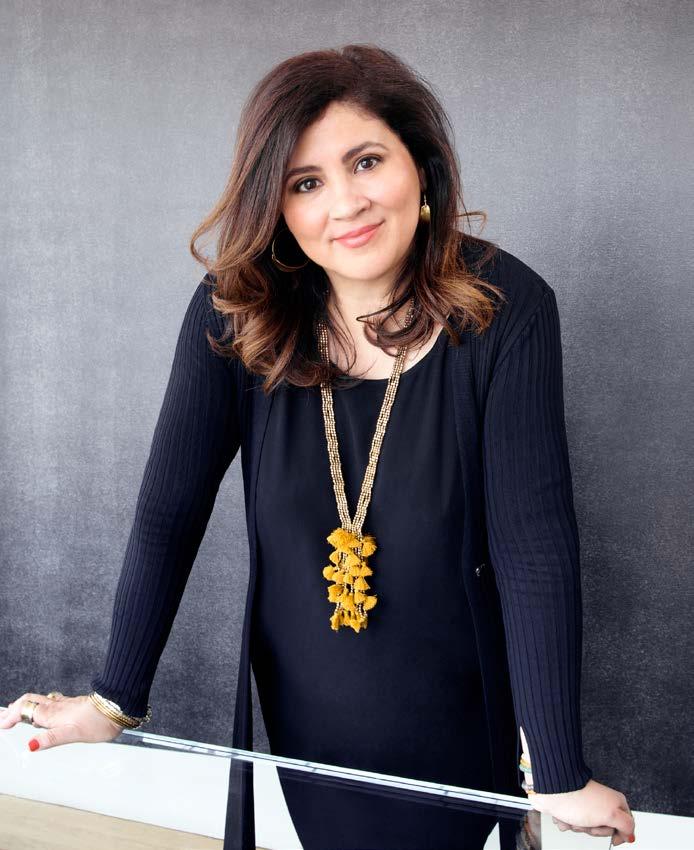
Alice Rivera
VP
of Hispanic Marketing & Account Services Walton Isaacson

For her part, Newman-Carrasco tends to forget that some people see her as a mentor, though she’s certainly honored that that’s the case. She doesn’t rank people in a hierarchy; she has a very team-oriented mentality.
“I always felt that everybody owed it to each other to bring the best of what they had,” Newman-Carrasco says. “I’m on the board of Florida State University’s Hispanic marketing program, and sometimes I forget that I’m the mentor because I get all of this benefit from the students.”
This fits with Newman-Carrasco’s belief that no one has all the answers. She remembers discovering the Meyers-Briggs test in the 1990s. She loved how it helped identify strengths and styles. “I had the whole staff at Enlace do it, and people really began to
“There aren’t right ways and wrong ways; there are just ways. Teams work best when different strengths and styles come together.”
—Rochelle Newman-Carrasco
understand that there aren’t right ways and wrong ways; there are just ways,” Newman-Carrasco says. “Teams work best when different strengths and styles come together.”
One of the things that Newman-Carrasco and Rivera bring to the table—beyond their Hispanic market expertise—is a desire to shine a light on systemic racism and have an impact on changing the way corporate America is defining diversity and inclusion. “The original intent behind D&I was good, but right now, it’s more like adversity and confusion,” Newman-Carrasco says. “Have you noticed how everyone but straight white males fall into the diversity bucket, as if everyone else has some adverse characteristic that makes them other? As for inclusion . . . inclusion into what? Using whose rules?”
Rivera echoes Newman-Carrasco’s sentiment that diversity and inclusion need to be rethought, even revolutionized.
“If you’re breathing, you’re biased,” Rivera says. “So, until people get comfortable with being uncomfortable, they won’t examine that bias or acknowledge the damage being done, not only to others but also to themselves.”
Top-level insight and updates on business in America
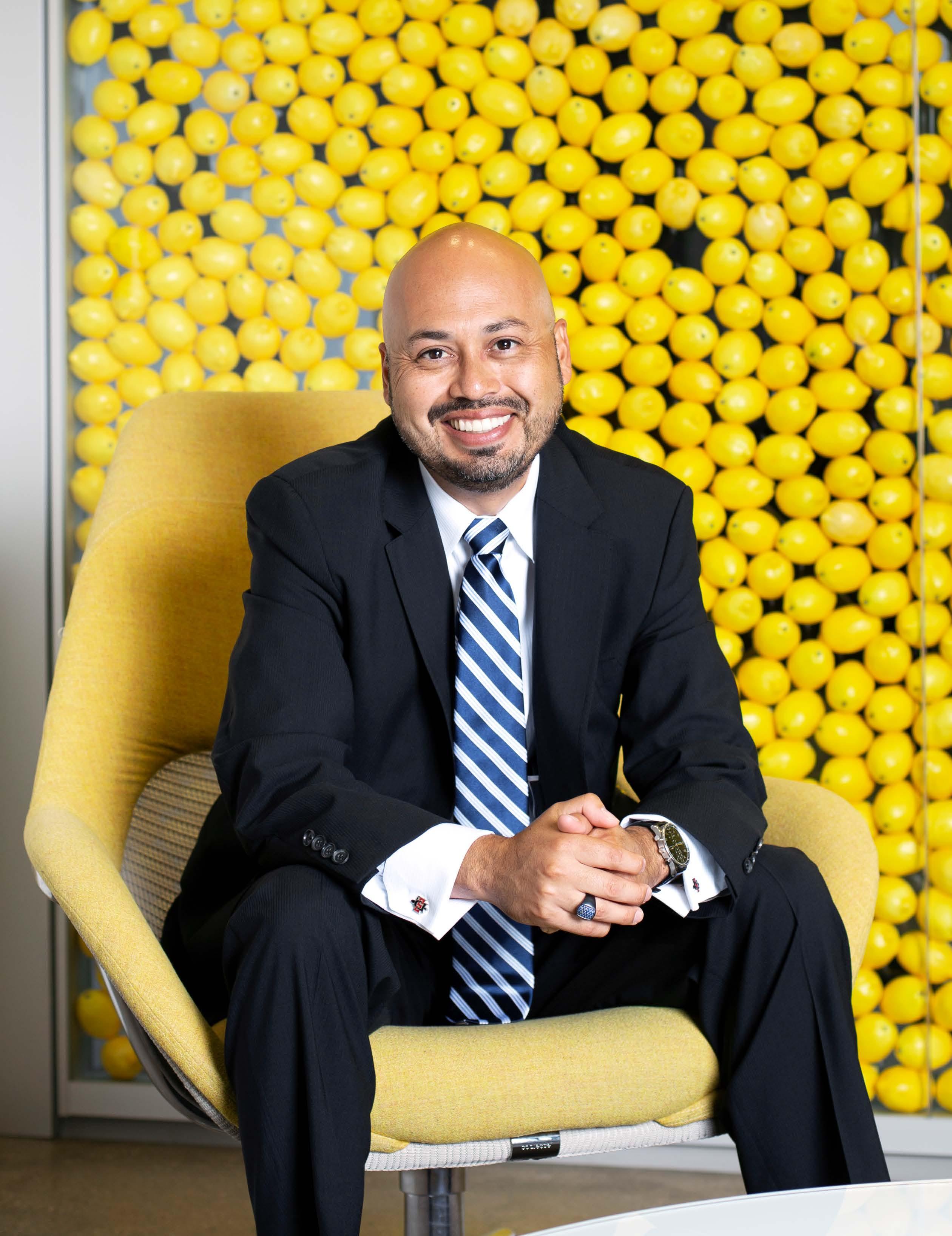
By Jonas Weir Portraits by Gillian Fry
How Sergio Barrios’s authentic approach to government affairs at Mike’s Hard Lemonade has helped drive success for the company
for the same consumer. The most iconic example of which might be Budweiser and Miller’s decades-long advertising wars. In a market that’s constantly evolving through new innovations and brands, competition has never been more intense.
For Sergio Barrios, senior vice president of government affairs at Mike’s Hard Lemonade and a nineteen-year veteran of the beer industry, he sees his peers in the beer industry as allies and collaborators rather than rivals.
“The government affairs world in the alcohol industry is actually quite small, and our role is to ensure that we can all compete in a fair and equitable marketplace. Due to the amount of legislation that is introduced yearly, it lends itself to working in collaboration with individuals from competing companies,” Barrios says. “The battleground for our industry is on the store shelves and tap handles, and our sales and marketing teams wage that battle daily. My role is unique, though, because we tend to agree with our competitors 90 percent of the time in regards to legislative issues. We work in conjunction with our wholesaler network, our retailers, and national level associations.”
Barrios, a San Diego native, never imagined that he would end up as a “beer guy.” Being the child of immigrants, Barrios did not realize that this type of work was available. During his last year of graduate school, a friend mentioned that Heineken USA was looking for a merchandiser to stock shelves and fill displays. “At the time, I saw this opportunity as a job and not a career; my goal was to become an FBI agent,” Barrios says. During his time in this role, however, he caught the attention of the vice president of corporate affairs and at the age of twentyfour Heineken USA promoted him to public affairs manager, overseeing thirty states for state government affairs. “Everyone needs someone who is willing to take a chance on you, and for me, it was my boss at Heineken,” Barrios says. “He got me young and was able to mold me in the way he wanted and teach me the things necessary to be successful.”
Education was the critical driver that allowed for this opportunity to occur. Barrios earned a bachelor’s in political science and master’s in public administration from San Diego State University. He was later told that, without a master’s, he would never have been given the opportunity, given his age and inexperience. “Being the first generation born in the United States, education was viewed as the great equalizer and was the thing my mother always pushed,” Barrios says. “Education does not guarantee success. What it does do is open doors that were previously not there. Once you get the job, you must continue to prove yourself every day; always stay hungry.”
Laws surrounding alcohol are quite complex with a legacy that dates back to Prohibition. In fact, as Barrios points out, alcohol is one of the few consumer products mentioned in the US Constitution. Essentially, when Congress passed the TwentyFirst Amendment in 1933, repealing Prohibition, the federal government returned the right to govern the sale, production, distribution, and consumption of alcohol back to the states. The result was fifty-one, including Washington, DC, different sets of laws surrounding alcohol. It’s a complex and widely varying legal landscape that can change with the passing of any number of various new statutes that move through state governments each year. Fortunately, Barrios has years of experience in this realm. “I go in with a strong background on alcohol issues, and I will educate on certain laws that were put into place and how potential legislation can impact the industry, consumers, and ourselves,” he says. “A lot of times, legislation is well-intentioned, but sometimes lawmakers don’t understand the consequences of what can occur or the reason the law was initially put in place.”
When looking at his skills, Barrios says the two most important assets for him are being honest and well-prepared. “You have to be able to articulate what the issue is to a legislator and then hopefully come in with a solution,” he says. “You also have to be able to be honest on what the outcomes could be if your solution were to be taken upon and what the opposition will be.”
Since he joined Mike’s Hard Lemonade in 2009, the ability to articulate his company’s perspective on the laws that govern its products has come in handy. One instance from early in his career at Mike’s Hard stands out to him as specifically challenging, yet it led to one of his biggest successes.
In 2009 and 2010, the caffeinated malt beverage Four Loko began causing a public outcry due to a rise of overconsumption. Universities began banning the beverage, and the Illinois attorney general, along with twenty-four other state attorney generals, began investigating the manufacturer for misleading marketing. With all the media surrounding Four Loko, state legislatures began looking at bans on all flavored malt beverages—which would no doubt hurt Mike’s Hard Lemonade— rather than looking at issues surrounding the specific product and manufacturer’s issues, such as the vast quantities of caffeine and high alcohol content in Four Loko. Mike’s made the conscious decision to not enter this high-alcohol caffeinated market, even after having multiple retailers ask for it. The owner of the company, Anthony Von Mandl, wasn’t comfortable in moving in that direction even if it meant potentially missing out on the next big thing. It turned out to be the right decision.
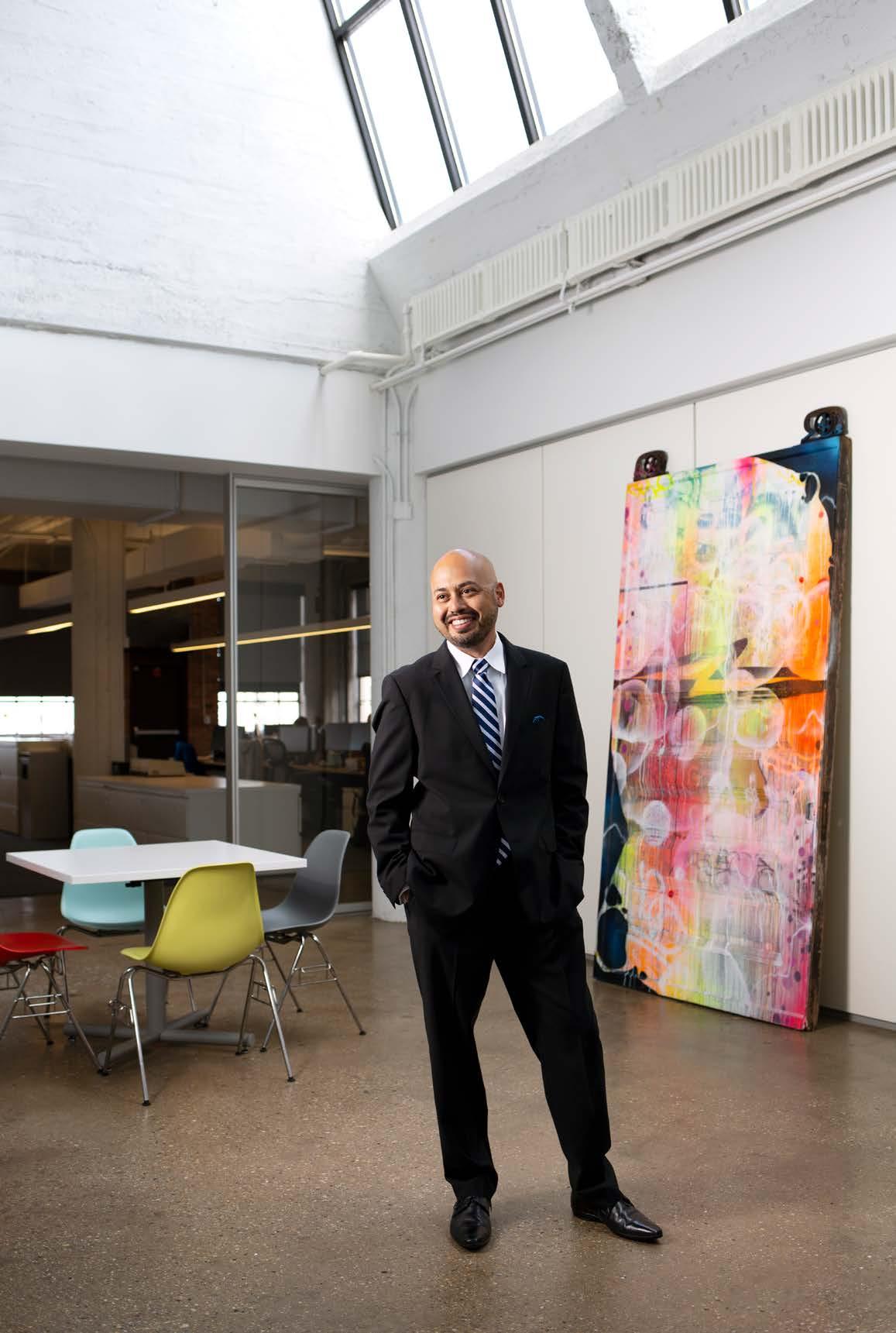
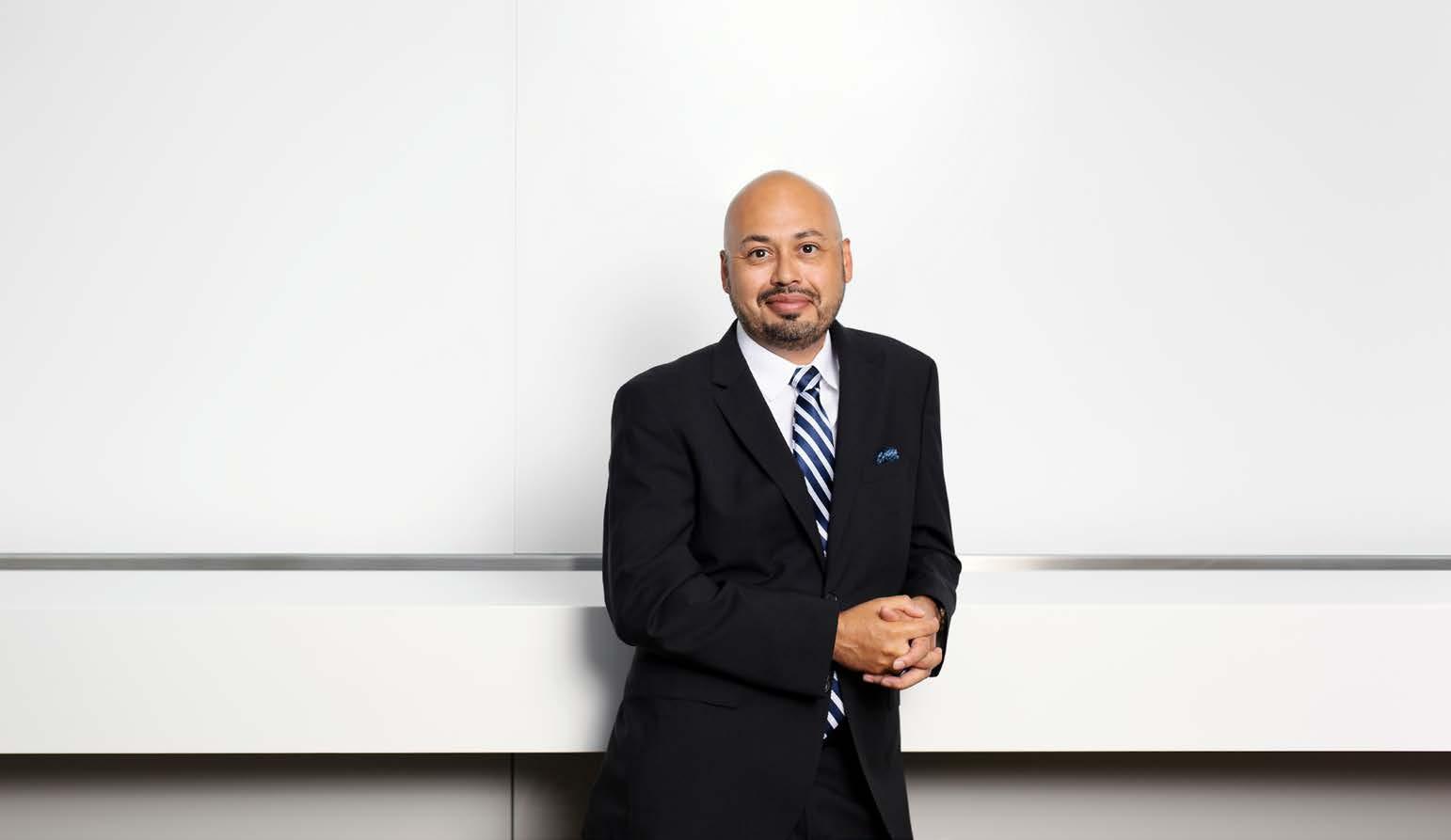
Ensuring legislators understood the difference was key.
“Legislators tend to use a cleaver when a scalpel will work,” Barrios says. “If the attorney generals thought we were doing something wrong and could show us how, we would meet with them and we would fix the issue. We were willing to do those things, being a family company.”
So, instead of seeing full bans of flavored malt beverages, the result was a more targeted focus on the problematic players in the category.
Recently, Barrios saw another major victory in the state of Florida when it came to his attention that the Florida definition of beer would not allow Mike’s Hard’s hard seltzer product, White Claw, to be sold in the state. The definition had been drafted after Prohibition when these types of products were not around. Also, the Florida definition was just different enough from the federal definition that it was legal federally, but not in the state. Again, the need to collaborate was evident, and Barrios was able to identify and bring together multiple companies that were running into the same issue to work together to provide the context behind the needed change. “In general, most people don’t think about what it took to get a product to market,” Barrios says. “By simply adding a few words to the current regulations, the issue was put to bed.”
The White Claw case is a high point in his career, and the product is emblematic of why he enjoys working for Mike’s Hard.
“For us, we think that flavor is what helps us get ahead on everything,” he says. “We all have to be experts in one thing, and for our company, it is flavor. I think that’s what has allowed us to grow at the rate we’ve grown. When people taste the difference between products that we produce and those competing in our category, we see a tremendous amount of shift towards our brands.”
In the nearly ten years that Barrios has been with the company, Mike’s Hard Lemonade has doubled its business, and Barrios says the company plans to double that business again in the next five years. Yet, as the company looks to break its own sales records, Mike’s Hard Lemonade remains a family-owned operation, and it still has the same spirit and culture it started out with when it was founded in 1999. The company remains humble, authentic, and driven. This all stems from the owner. “Every time we have a conversation the first question is, ‘How is your family?’” Barrios says. “That filters all the way down from our executive team to everyone in our organization. If you’ve ever had the pleasure of meeting the owner, you’ll find that he’s incredibly humble, and if someone came into the organization with a chip on their shoulder, they wouldn’t make it at our company. As a firstgeneration kid here, I try to be as humble as I can be.”





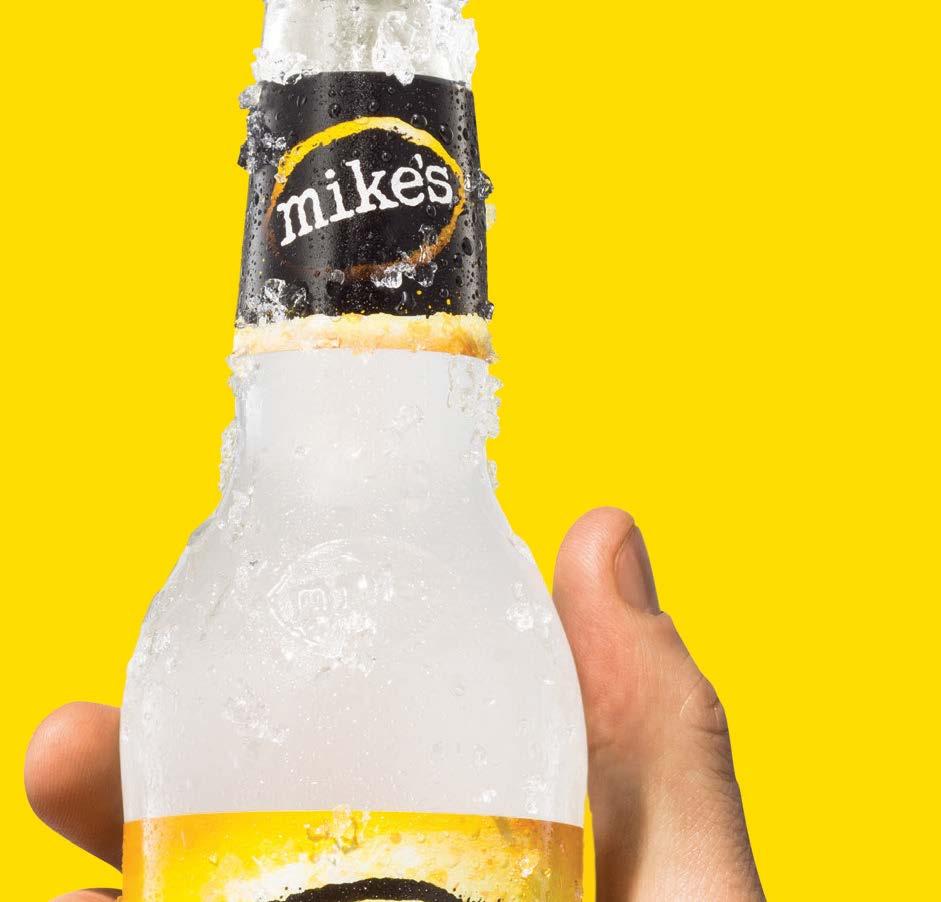







The Libman Company’s Jim Armas has spent his career cultivating the best means of implementing lean manufacturing practices. Here, he explains its benefits and what’s on the horizon.
By Randall Colburn
There has been a propulsive sense of momentum to the career of Jim Armas. Throughout his roles at a variety of well-regarded companies— General Motors, Integer, and GE Lighting, among others—he has found himself thrust into the myriad nooks and crannies of engineering, manufacturing, and automation. From design to quality management to advanced purchasing, his journey has been anything but stagnant.
“One constant in my career is that, often, every assignment would lead into the next one,” he says. “So, when you go into an assignment, learn everything you can about it because you don’t know what the next opportunity will be, and it could be a derivative of what you’re doing now.”
Currently, Armas serves as the director of manufacturing operations at The Libman Company, a cleaning tools manufacturer that, despite having been around since 1896, is still family-owned, with the fourth generation of Libmans currently overseeing operations.
There, Armas is helping to implement what’s been one of the biggest thrusts of his career: lean manufacturing practices. “Lean approaches are just common sense, really,” he explains. “It’s optimizing and
simplifying processes to remove waste and steps that add no value.”
A key part of understanding lean processes comes in what professionals call “5S,” which encompasses five Japanese words that, in a broad sense, break down the essentials of a workplace organization process. In English, the words translate to sort, straighten/set, shine/sweep, standardize, and sustain. Developing processes that uphold these principles can not only make for a more streamlined workplace, but it can also promote workplace safety while driving down costs.
Armas first encountered lean manufacturing processes when he was working at General Motors, and he was later tasked with implementing those processes at a Minneapolis medical-device facility as part of Integer. It was at GE, however, that he found a mentor in Mike Garland, who was consulting with GE on lean principles at the time. Together, the two ventured to a number of GE’s lighting facilities to educate employees on the new practices.
“What I learned from Mike was the personal side of lean,” Armas says. “He taught me to be mindful of the process with respect to the operator. He excels at communicating with the team so that
they’re more willing to adopt and sustain the use of these lean principles.”
That’s the hardest part, after all, Armas explains. The cultural transformation, he says, takes a great deal of effort and hands-on leadership. Armas knows how important the observations of operators are to the process of maintaining the momentum of lean processes.
“Mike taught me that simple observations and some basic problem-solving skills can solve the majority of manufacturing problems,” Armas says. It’s important to arm operators with these skills so they can tackle these day-to-day problems. Automation may serve to streamline, but it takes trained eyes to make sure the machines are doing their jobs properly.
“The most important lesson I’ve learned is that people are the most valuable assets to any company,” he says, noting that preparing engineers for any and all problem-solving obstacles is a large part of his management style. “I’m a big proponent for training because what we do today will be the standard tomorrow. We have to be constantly learning and relearning.”
In this sense, he views himself as someone who strives to eliminate
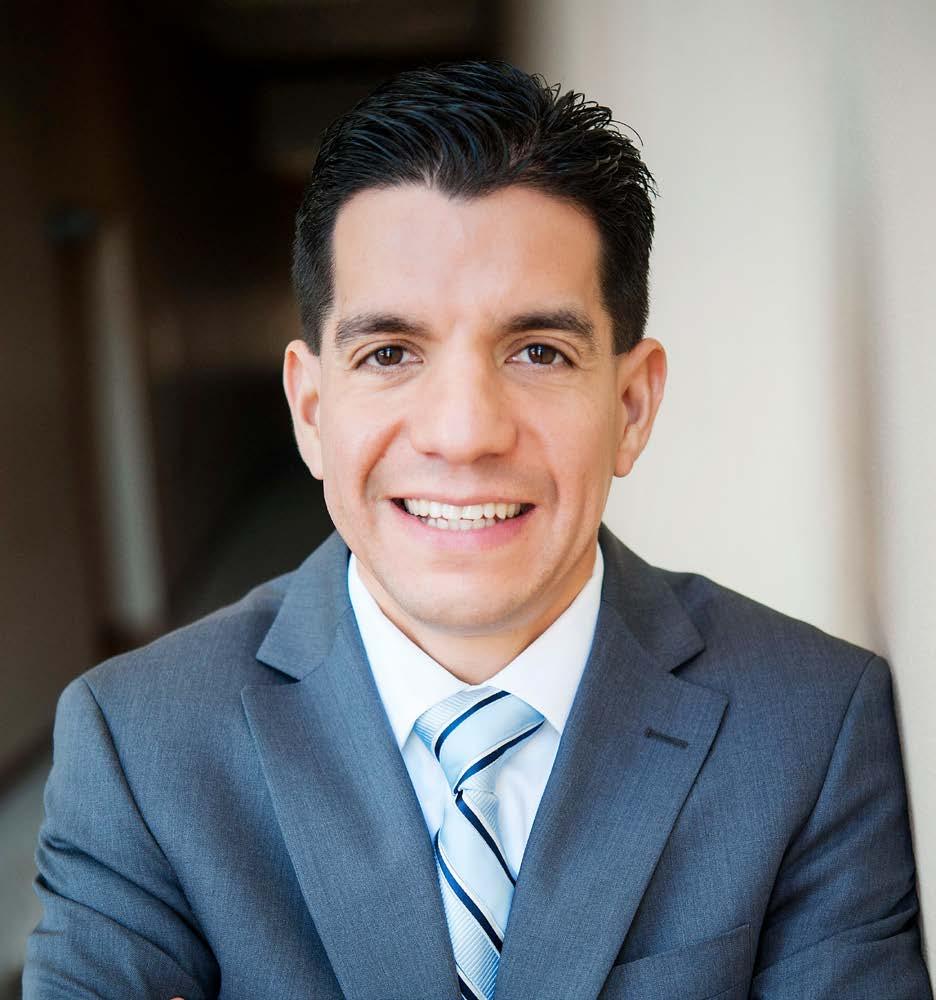
Jim Armas, Director of Manufacturing Operations, The Libman Company
roadblocks for his engineers. Similarly, he’s also working to eliminate roadblocks in the realm of lean. In fact, his work at Libman is representative of what he hopes will be an industry-wide shift. “It’s not just at Libman,” he says. “It’s about building a solid foundation for lean and also adding analytics and digitization to the machinery equipment and processes. The goal is to drive productivity and performance optimization. Once you have lean as the foundation, you can equip machines with sensors that relay the operating conditions and then analyze the data in real time to improve performance.”
Currently, he is focused on standardizing these innovations. “We’re really work-
ing to roll out the ways we use data to help aid the operators so they can solve problems in real time,” he explains. “We’re moving away from preventative maintenance to predictive maintenance. This is being labeled: ‘Industry 4.0.’”
He’s in the right place to help bring on that change, too. He describes Libman as advanced in these efforts, but he notes that it’s about having the discipline to use these tools to their full potential.
He’s also just happy to be with the company, which he reveres not just for its legacy but also for its commitment to innovation in the field of automation.
“It’s a company with an entrepreneurial heart,” he says.

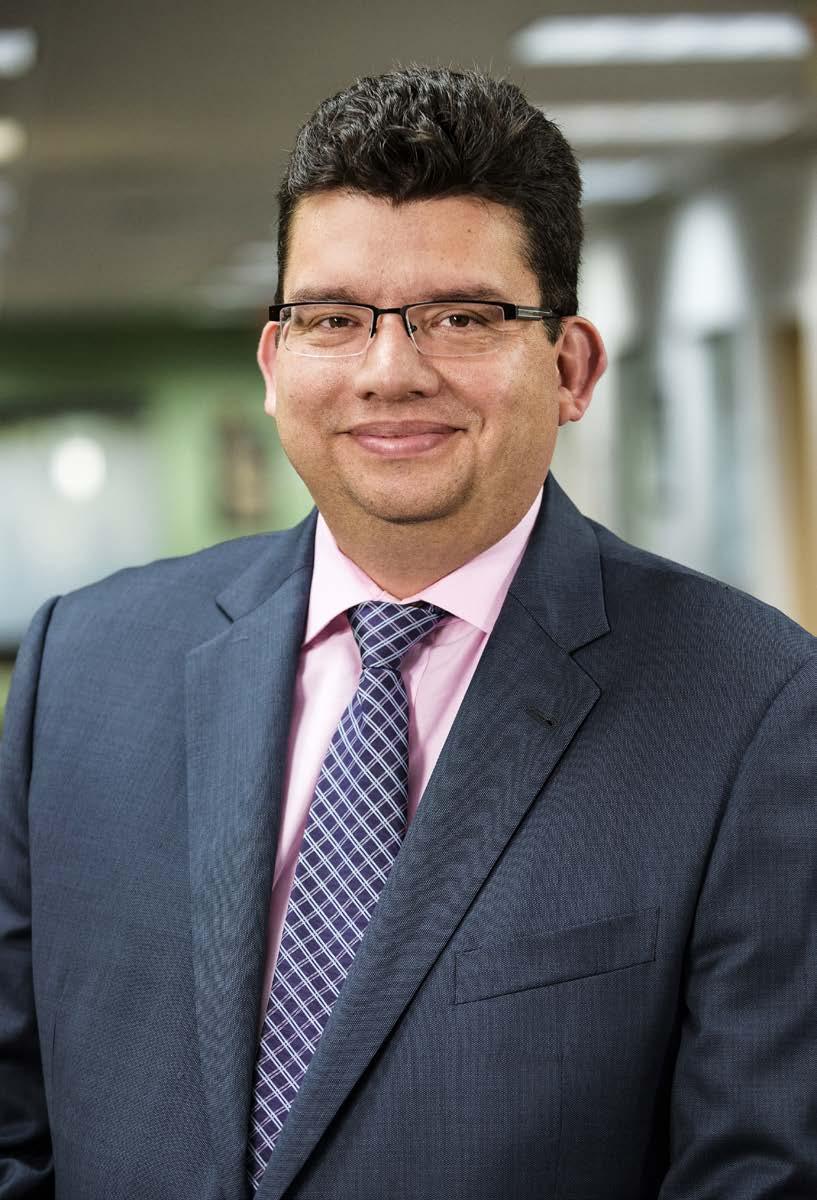
How Freddy Jimenez took his corporate legal skills to a biotech start-up and is now inspiring future generations
By Joseph Kay
Freddy Jimenez was a seasoned regulatory legal specialist. During his twenty-three years with Johnson & Johnson, he worked on a number of the pharmaceutical giant’s major brands and contributed to its federal policy advocacy. As head of J&J’s pharmaceutical regulatory legal group, he had a stable career with steady growth opportunities and every reason to keep contributing.
When Johnson & Johnson acquired a fully integrated biotech company, however, Jimenez had an epiphany. As he worked on the integration and provided legal support to the new subsidiary, Jimenez realized he wanted to contribute to a smaller operation with different challenges—a business that he could help build, rather than simply support.
“I liked the smaller feel, where you can be more directly involved in the business,” he explains. “I not only liked the idea of looking at all the legal aspects, but
I also liked the idea of being on the executive committee and contributing to the future of the business.”
He’s found that at Celldex Therapeutics Inc., which he joined in 2016 as head lawyer and compliance officer after leaving Johnson & Johnson. Celldex is a New Jersey-based biotech company that is engaging the human immune system to treat cancer and other difficult to treat diseases. Its small size (about 150 employees) means it can align and realign quickly, which is vital to the high-stakes and moonshot odds of the biotechnology sector.
For Jimenez, it means a smaller legal staff and fewer specialists. In a typical day, he juggles duties in securities, employment, mergers and acquisitions, licensing, and more. That requires him to recognize what he doesn’t know and when to seek guidance. “It’s not about being stretched but rather about being challenged,” he says.
Such a sense of balance is key to his approach. As a lawyer, he’s always expanding his practical knowledge by acknowledging what he doesn’t know. As a leader, he’s advancing his organization’s goals by supporting the individuals on and outside of his team.
“My ultimate goal is their success,” he says. “My approach to coaching is dynamic to the arc of career trajectory. I like to give people the freedom to operate so they can meet and exceed their potential.”
That approach to leadership even extends to Jimenez’s work with outside counsel, and it hasn’t gone unnoticed.
“We at Lowenstein Sandler have been working with Celldex for more than a decade as outside legal counsel,” says Anthony O. Pergola, a partner in the tech group at Lowenstein Sandler LLP. “We are so pleased to be able to partner with Freddy Jimenez as we have always
“My approach to coaching is dynamic to the arc of career trajectory. I like to give people the freedom to operate so they can meet and exceed their potential.”
had the greatest regard for his intellect, experience, and integrity, as well as his practical approach to addressing business and legal challenges.”
Across the rest of the organization, other teams support each other seamlessly. As a part of the executive leadership team, Jimenez helps make that happen, but it’s been integral to Celldex culture for far longer than his tenure.
“We have a team of discovery scientists that invent the molecules, a development group that conducts clinical drug development and clinical trial execution, and commercial experts that look at potential revenue opportunities,” Jimenez says. “One of the things I was immediately drawn into was the focus. We’re all rowing in the right direction—without a lot of complexity or bureaucracy—in pursuit of the goals of the company.”
That’s key to the company’s success and survival. In the spring of 2018, a compound that had shown promise in earlier clinical cancer trials failed to demonstrate “superiority over the
standard of care,” and Celldex had to move on to other possibilities.
Failure and disappointment are standard experiences in pharmaceutical research, but this compound’s successful run into the late trials made this loss tougher than usual. And with Celldex’s comparatively limited resources, every experiment represents a greater risk than it would at an international giant like Johnson & Johnson.
“We hedge our bets based on where the science leads us,” Jimenez says. “We have multiple compounds in development, which is difficult because, like most biotech companies, we have finite resources to deploy. So when something like this happens, you go back and take stock and decide where the best opportunities are for future success.”
Without sales profits, the start-up model relies on the investor’s trust, so this has been a learning opportunity for Jimenez. He enjoys being an entrepreneur, though, and he reminds himself that the challenge of high-stakes
risk assessment is in the service of human health.
This is not Jimenez’s first time juggling multiple roles, though. He attended law school at night while working fulltime at Johnson & Johnson. Over those four years, he didn’t benefit from dedicated mentorship, and the demands of his job kept him from pursuing a summer associateship. He directly experienced the ways in which minor competitive disadvantages compounded and reduced his exposure, which made it more difficult to find a job. Now, he invests his own time speaking and mentoring to help other law students—especially those from the Hispanic community and other marginalized communities—navigate those challenges.
What he tells these students is to get good grades, participate in extracurricular activities, and network.
“Those things seem so trivial, but if you don’t have a lot of exposure to role models or lawyers, who’s going to tell you that?” he says. “I did fine, but it’s so helpful to know someone who can say, ‘Here are the pitfalls; here are the things to watch out for.’”
Jimenez currently serves as a mentor in Rutgers Law School’s Minority Student Program. Coming from a scientific background himself, he’s eager to share this industry with young people who might not recognize the legal career opportunities in the field.
“I’d love to see more Hispanics in this business,” he says. There aren’t many, he says, especially in leadership. In fact, the makeup of the boardrooms suggests the industry would do well to hire with more intention. For Jimenez, that means using his experience, growing his network, and letting young legal professionals know that there is a place for lawyers here on the cusp of the future.
“There’s a personally rewarding career to be had in biotechnology, where you can have an entrepreneurial, high-risk/high-reward career in an area where, ultimately, you’re helping human health,” he explains. “There’s a lot of legal skill you can bring to that. It’s a very attractive thing to do with a law degree.”

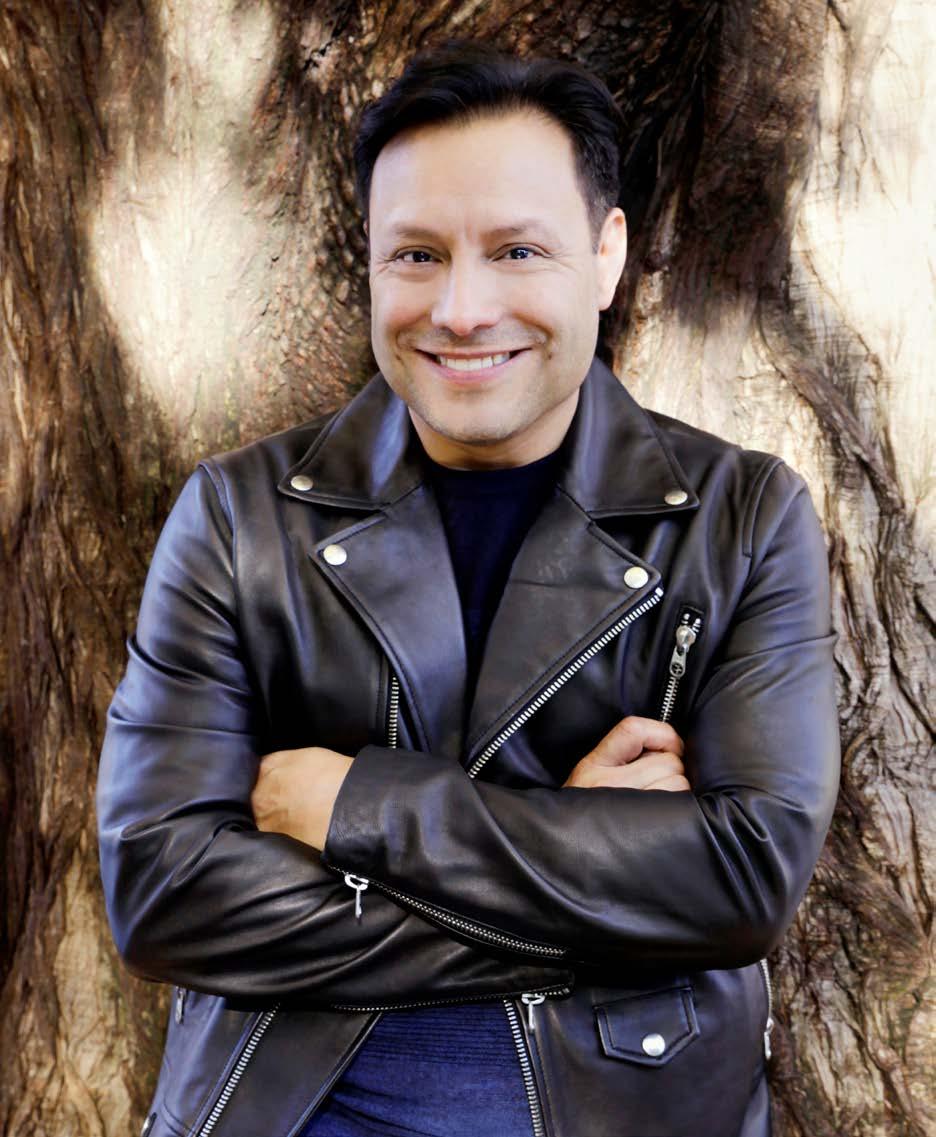
Former Sony executive Roger Estrada prepares for his next step
By Tricia Despres
Throughout the years, Roger Estrada has been through his share of professional ups and downs—days filled with good news and bad news, and moments when he wasn’t quite sure what waited for him around the corner.
And he has loved every second of it.
“With every change in my career, it was as if the universe was trying to tell me something I needed to hear,” Estrada says. “I always try to remind myself that there is a reason for everything that happens and to remain patient until that new opportunity becomes obvious.”
The youngest of three boys, Estrada grew up in a loving family in San Antonio, Texas. As a child, he loved to watch old movies featuring characters such as King Kong, Abbott & Costello, and Shirley Temple at his grandmother’s house on Saturday afternoons. Eventually, his love for film and television evolved into a love for art and later, the pursuit of it. “When I was a kid, I would watch the show Bewitched, and I always marveled at the star who played the advertising creative director,” says Estrada, who served as editor of his high school paper. “I thought what he did for a living was the coolest thing in the world. I know it’s crazy, but that show had a big influence on me.”
After graduation from Texas State University, Estrada took his first part-time job with Texas Monthly magazine, and his life in the creative industry officially began. “I remember one Saturday coming into the office without telling anyone and organizing the entire library in the magazine’s art department,” Estrada recalls. “I was thrilled just to be able to touch something in their world. They couldn’t believe it. But it showed them
“It’s all about being open to all ideas, no matter where you are in your career.”
vice president of the creative department for Sony Consumer Products, where he led the design and development team to support global creative and marketing strategies. “To be able to sustain a career in the entertainment industry for more than twenty years is something I feel very proud of,” says Estrada.
And Estrada has many high watermarks he can point to, even in the past few years. During his time at NBCUniversal, Estrada worked on projects related to Despicable Me, Minions, and The Secret Life of Pets. And in his latest role at Sony, he was involved with producing products for franchises like Hotel Transylvania, Ghostbusters, and Peter Rabbit.
all how much I wanted to be a part of the creative world.”
But his pursuit to a creative career wasn’t always easy.
Take for example the trip Estrada made to Los Angeles back in 1991 when he was freelancing as a graphic designer for various advertising and design agencies in the hopes of making a career out of designing movie posters. “I drove halfway across the country to get that job, and then I hated it,” Estrada says with a laugh. “There were so many set rules and requirements, and it all was so inhibiting to the overall creative process.”
Luckily for Estrada, he would eventually end up finding a bevy of opportunities that would allow his creative drive to flourish. Since making the leap into the film and television industry, Estrada has worked everywhere from Sesame Workshop to Nickelodeon. Most recently, he was a senior
Of course, to achieve this, Estrada says he has had to lean on many. “The creative teams that I have worked with throughout the years have been so beneficial to me,” he says. “It always seemed as if we benefited by the mutual experience.”
Estrada also grew professionally with the help of a handful of mentors, such as recent president of production and development for Nickelodeon, Russell Hicks. When the two initially met, Estrada was freelancing for Disney Publishing, and after knowing each other for just six months, Hicks offered Estrada a full-time position at Hanna-Barbera as a junior art director—his first real position in the entertainment industry.
“He took me under his wing because he must have seen something in me,” Estrada says. “He definitely took a chance on me, and thank God he did. I learned so much from him, and I believe he instilled in me the components to becoming an effective, motivating, and inclusive leader. He also taught me to enjoy the work. In fact, so
“Granted, I’ve always had a little bit of a struggle living in the moment. I think we all have a tendency to want to regurgitate the past or imagine what the future has in store, and it can impede your potential today.”
much so, that many times it has never really felt like work.”
Estrada is now returning the favor to others, especially fellow Hispanic professionals within the creative industry. “I’ve never had any trouble hiring someone who was better at something than me,” he says. “I have always felt that it made the entire team better. I never expect to know everything. Learning new things makes me and everyone on the team change and evolve for the better. There is nothing greater than an influx of new blood.”
This philosophy is something he likes to call inclusive leadership.
“It’s all about being open to all ideas, no matter where you are in your career,” he says. “Some executives seem to have this air about them that they are better than anyone else, but that’s just never been me. I’ve always been that guy with the open door, waiting to invite someone to come in and contribute an idea I might otherwise never have thought of.”
This business philosophy is something that Estrada says could become quite beneficial, especially for the next generation of Hispanic executives. “There are just not many of us in this industry, which can bring a ton of insecurities,” he explains. “When there is no one there that you feel like you can lean on, it can be a scary place. But when you do have someone there that understands where you are coming from, it can make a huge difference.”
Being open to what the future holds is also something that Estrada thrives on, especially as he gets older. “The older you get, the wiser you get,” explains Estrada, who enjoys life now at his home with his husband of ten years and their two energetic dogs. “Granted, I’ve always had a little bit of a struggle living in the moment. I think we all have a tendency to want to regurgitate the past or imagine what the future has in store, and it can impede your potential today. But I continue to work on it daily, and I have learned to enjoy each moment and trust in the journey.”
By Joseph Kay
Gian Duran wasn’t always on his way to become in-house counsel for America’s largest do-it-yourself moving company, U-Haul International Inc. In fact, when the Arizona native completed his undergraduate studies, he stepped straight into the deep end of the 2008 recession.
Driven by lean years, a thirst for competition, and a desire to help others, Duran sought out the legal profession. After graduating from Arizona State University, Duran returned to the university to attend law school at the Sandra Day O’Connor College of Law. His mother was a lawyer as well, and she had worked in immigration and litigation, so the legal profession’s vocabulary and lifestyle are as familiar to him as the dry heat and desert sky.
During law school, Duran worked at the Arizona Attorney General’s office doing civil rights litigation and spent several months working at the Canadian Embassy in Washington, DC. Duran says he was disillusioned by a government run by politicians who seemed more interested in scoring political points than getting anything done, so he sought out private sector clients interested in helping people.
Economic times weren’t entirely better when he completed law school in 2011, but he landed a job with a boutique litigation firm, whose small size and scrappy approach provided him opportunities to learn and lead. In 2014, he joined U-Haul as assistant general counsel, and he now serves the in-house clients and juggles responsibilities in real estate and products liability litigation.
Duran spoke with Hispanic Executive about how he sharpened his skills through trial by fire, how he’s grown with U-Haul, what kinds of mentors he’s had, and more.

What were your early work experiences out of law school?
I first worked for an insurance defense firm. It probably had ten lawyers at the time. It was very interesting work and hands-on work. I was afforded opportunities early on to direct my cases and gain the experience I needed to get to where I am now.
Did you get those opportunities because it was a smaller organization?
Yeah. If it wasn’t me, it was going to be anybody. That was the benefit of working at a place like that. I remember my mom was shocked to hear that I had been taking depositions within the first couple weeks. To throw people into the fire like that can be confusing, but as long as there’s good mentorship—which there was, I had mentors in-house, my mom, and lawyers I’d grown up around—it’s not a bad thing to get quick exposure. If anything, it gets you used to the rigors of what it’s like to be an attorney.
What kind of growth have you experienced during your time at U-Haul?
I was very myopic when I started working in-house. It’s like chess or any other strategy game. You have to have a broad view, and this job has taught me to embrace that. If you’re not watching the whole board, you will be losing pieces. It’s important to think about how tasks you do to prepare a case relate globally— to see each move but also to understand how they affect the global strategy.
What’s the most valuable thing you’ve learned?
How to prepare a case with an endgame in mind and advise business clients with that focus. What you learn as a young lawyer is mostly how to check off lists, accomplish specific tasks, write, and ask the right questions. When you take over the reins on your cases, those activities take on new importance within the context of building toward your ultimate goal. It’s kind of funny because you end up learning everything in reverse. You end up holding all the puzzle pieces, but you cannot really see how they fit together until you are further along in your career. Perspective—tempered by failure and focused by great mentors—is an excellent teacher.
How do you fit into U-Haul and its day-to-day operation?
Initially, I was hired to do only products liability work, but I’ve had to be very flexible as the needs of the company changed. And I have become a better attorney with a broader scope of expertise because of it. From representing the company in
“You have to be open to criticism. That’s also an underrated skill.”
consumer arbitration matters on top of products liability, I have learned a lot about people and what informs their decision making. I’ve gained experience in an entirely new area of law by being open to the opportunity to handle a small part of the company’s real estate litigation. It’s been interesting and challenging working for U-Haul International, and that has driven me forward in my career.
The building blocks I developed at my first firm were great, but it wasn’t enough. Learning how to operate in a corporate structure is a whole challenge in and of itself. Learning how to step into a leadership role—as far as advising and listening to our internal clients and stakeholders—was something I hadn’t really touched on much, but it has been rewarding learning how they view and evaluate cases differently from lawyers.
Good lawyers listen. I think that’s one of the most important and underrated leadership skills of a lawyer in an in-house setting. We listen, and we try to achieve our client’s stated objectives and address their concerns; we try not to be no-men here. If there is a way to achieve a goal, we find it.
Have you seen listening neglected in your career? I think it’s neglected everywhere.
Everywhere
Everywhere, all the time. People have a hard time seeing past their conclusions. Listening, observing, critically evaluating yourself and your conclusions—these are underrated skills, especially among lawyers. We’re all rushing to be heard and
argue our points, but there are times when the client doesn’t care about what you came to say. They see a case in a different way, and if you neglect his or her point of view, you are not doing your job, and you might be overlooking the key to your case.
That’s what’s most interesting about working in-house: you can prepare this masterful memo that knocks out all the points you’ve chosen to focus on, and when you show up to talk to your CEO, they’ll say, “What about this?” They’ll focus on some point that you didn’t even think of, that they’ve seen matter in other cases, or that they know a jury will care about. It could be some minute detail that a jury focuses on that you glossed over. It is humbling and challenging, and it makes me a better lawyer every time it happens.
So, what ways are you continuing to grow as a lawyer? What opportunities do you have to continue to get better? We investigate and learn things about our cases every single day, and I think that’s great. It keeps me curious. Continue to be curious: it’s the best way to continue to learn and be open to the experiences that will get you there.
Are there collaborative and leadership skills that you’re continuing to develop?
You have to be open to criticism. That’s also an underrated skill.
Do you take criticism well?
Definitely. I’m open to it. It’s an important part of the growth process. The day I stop doing that will probably be the day I die. You can’t get better if you are not open to the possibility that you are doing something wrong.
Do you and your mom ever talk about law?
For sure. I’ll ask her for advice or talk to her about issues. She spent some time as a litigator, so she has a lot of experience related to that. But it’s not an everyday thing. We try to keep our relationship separate from that as much as we can or it would be a job, but I know I can come to her with anything and get the best, unadulterated advice—legal or otherwise. I try not to take that for granted.


By Bridgett Novak
Jonathan Hernandez’s faith guides his decisions as part of Goldman Sachs’s legal team and as a leader in his community
put him to work early. As pastor of a small Baptist church in northern Texas, he had Hernandez do everything from taking out the garbage to putting together the church bulletin.
Learning a healthy work ethic from an early age instilled in Hernandez a can-do spirit that he has carried with him throughout his career. After earning a master’s degree in accounting from the University of Texas at Austin, Hernandez went on to pursue a JD at the University of Houston Law Center. Following law school, Hernandez worked at Squire Patton Boggs for nearly ten years, where he advised clients on business transactions, including commercial lending transactions and mergers and acquisitions, before joining Goldman Sachs in 2017 as vice president and associate general counsel. In his role at Goldman Sachs, he primarily advises the company’s private wealth management lending group and has even had a hand in working on new products, such as Goldman Sachs Private Bank Select (GS Select). Today, he reflects back on his family’s influence, his faith, and how he’s helping to develop the next generation of Hispanic leaders at Goldman Sachs.
How have your parents influenced you?
My father has been a pastor for more than fifty years. For the past thirty-eight, he has been at Primera Iglesia Bautista in Arlington, Texas, which has a two-hundred-member, bilingual congregation, which my family is a part of. Both of my parents have dedicated their lives to the church and to raising me and my two sisters. They showed us the importance of selflessness and helping others, which comes through their faith.
How do you apply those lessons in your life?
My wife, Leslee, and I are very involved with our church. We regularly meet with and help counsel a group of college students, and I teach Sunday school. We also support local ministries, such as Mission Arlington and Orphan Outreach. And we host Bible study in our home at least once a month. It is important to us that we pass along the importance of faith to our three children.
Has faith played a role in your professional life, too? It would be hard to think of a time when it didn’t play a role. After getting a master’s in accounting from the University of Texas and a JD from the University of Houston, I spent almost ten years as an associate at Squire Patton Boggs in Dallas. When I decided to go in-house, I knew it was going to be a big change,
so I prayed about it and discussed it with my family to ensure I had their support before making the move.
That move, in 2017, was to Goldman Sachs, where you remain today as vice president and associate general counsel. What are your primary responsibilities?
I work in the private wealth management division of Goldman Sachs. At the law firm, I represented financial institutions and other business entities in lending transactions and mergers and acquisitions. I still focus on loans, but instead of spending most of my time drafting documents, I work with our lending, credit, and underwriting departments to provide a good lending experience to our clients.
Have your collaborations led to any new products or services?
Yes. We helped develop a new lending platform called GS Select that expands our loan program to customers of other wealth management and brokerage firms. Launched in mid-2017, the program makes loans of $75,000–$25 million available using the borrower’s investment portfolio as collateral.
We have added multiple brokerage firms to GS Select. In fact, I helped draft the documentation needed to get these brokerage firms onto the platform. Onboarding brokerage firms to GS Select typically requires lengthy meetings with multiple stakeholders on both sides to make sure we are all on the same page.
In addition to GS Select, what else do you spend time on? About 60 percent of my time is spent on GS Select—on improving it and bringing in new partners. I am also responsible for reviewing our documents and practices to ensure we are complying with all laws and financial regulations and keeping the company protected.
In addition, I am a coach in Goldman Sachs’s Hispanic/ Latino Analyst Initiative. I meet regularly with two Hispanic analysts who work in the legal department. I am there to provide them with guidance, answer questions, and help them develop skills to better navigate the company and the business world in general.
Do you have any specific suggestions for the people you mentor or anyone seeking professional advice?
I’d say two things. One, no matter what your task is, make sure you’re doing it to the best of your ability. You never know where your work will end up or who will see it.
Two, get to know as many people as you can. Network, and be helpful. A lot of being happy in the workplace comes down to working with people who are your friends and who care about you. Friends and colleagues can also help with future work opportunities. My job here is a good example. A colleague I worked with earlier in my career had Goldman Sachs as a client, and he mentioned my name to some of the people here, which definitely helped me get my foot in the door.
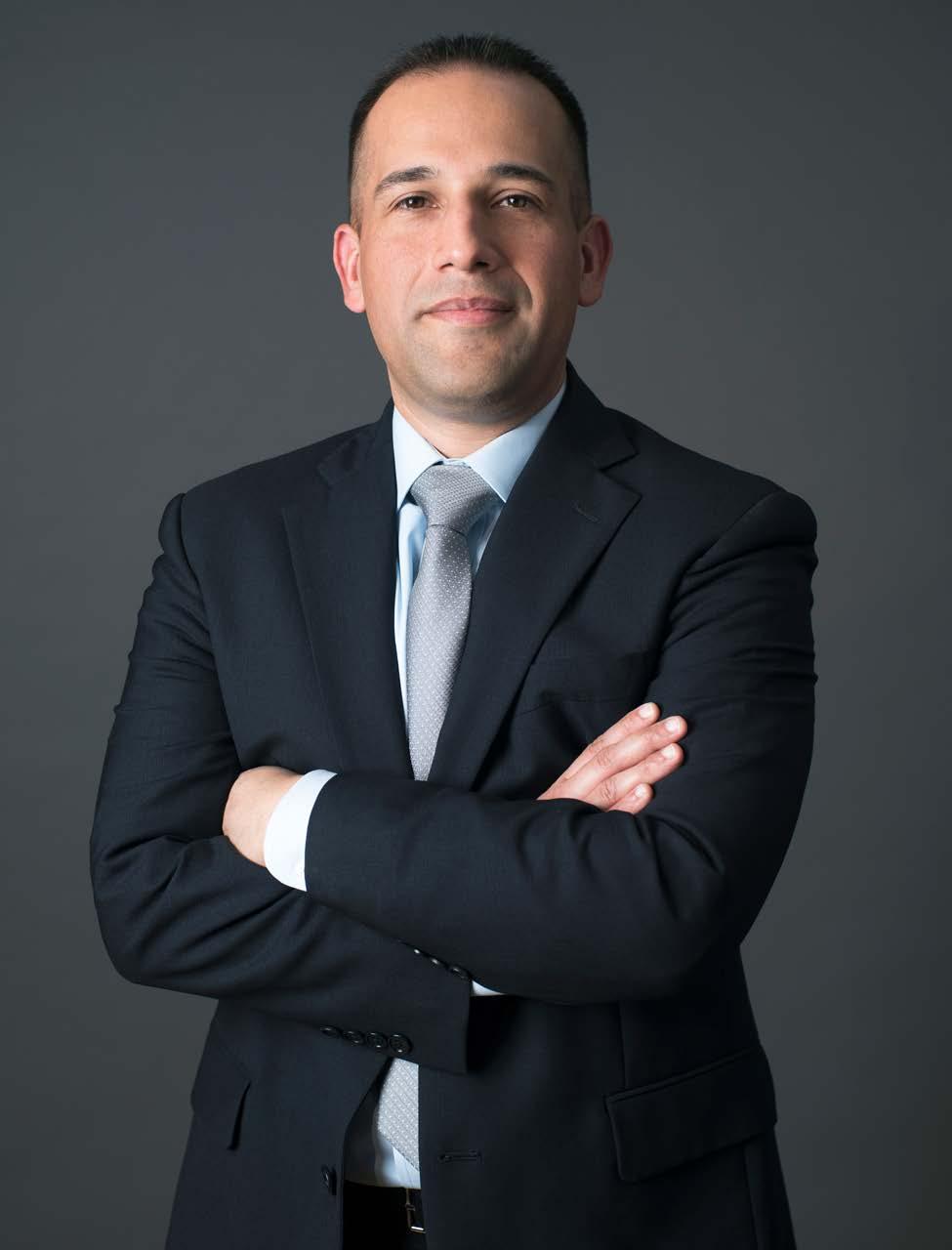
the
Today, he still won’t let the machines take over—even in an increasingly technical age.
By Russ Klettke
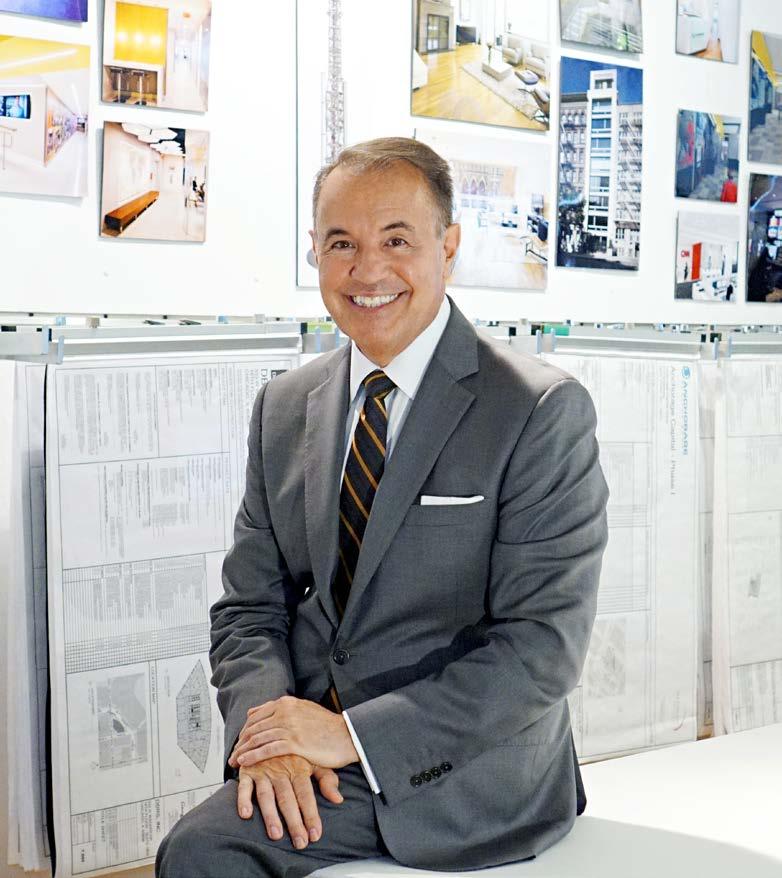
Anyone who has visited a broadcast or technical facility knows it looks a lot different in person than one imagines. It is a complex mixture of spaces that accommodate people and equipment to create the media product. Whether a TV studio or a radio studio, new media or old media, what you see or hear is a small part of the room and the facility where programming is created. There are spaces where wires and equipment clutter the room in geological layers of technology.
Antonio Argibay saw this as a design void back in the 1970s. An architect who was occasionally assigned media projects by his employer, he viewed them as workplaces that were unfriendly to the people working in them. “Technology was something handled by a select few, engineers whose primary concerns were the well-being of expensive machines,” he says. “People were secondary.”
This coincided with the early days of computer-aided design. So, he proposed to his boss at the time that they invest in the new technologies and build a practice around humanizing high-technology facilities. His employer passed on the ideas, but he couldn’t let go of that concept. Soon
afterward, he left to form his own firm, Meridian Design Associates, in 1981. The first firm focused in this area of design.
Today, Argibay remains the New York-based firm’s managing principal. Meridian’s award-winning work reads like a who’s who of media clients: CNN, ABC, Telemundo, HBO, Lifetime, NBC, ESPN, CBS and many more.
“Media spaces are complex,” Argibay says. “They have to be highly functional. They have to be reliable in emergencies, natural or otherwise. Yet, they are also highly branded.” He points out that acoustics and lighting add to the three dimensional aspect that are typically associated with architectural design. Meridian reconciles humans with their media and technology workplaces by reducing the environmental conflicts that were priorities in the workplace.
He followed an idea of putting people first, and it has paid off in the more than thirty-five years since. Meridian’s success might be rooted in how Argibay questions convention—probably because his childhood included unconventional events.
Argibay endured a period of separation from his parents, from the ages of eight through thirteen, when he was sent from his birthplace in Havana, Cuba, to Spain in a shipload of about five hundred children whose parents wanted them to escape the Castro regime. That event removed him from a relatively comfortable, urban existence to something quite different in rural Spain, where he lived with his grandparents. “There was no school my first year, only tutoring” he says. “Spain was cold compared to Cuba. There was no modernity, and children worked not played. Fortunately, my grandfather had his books, and he educated me while I developed callouses on my hands.”
The experience was important in his development as an artist and an architect. In Spain, he had to learn to play with rocks and sticks to tap into his nascent sense of creativity. “There were no erector sets there,” he says. After five years, he reunited with his parents in New York City, where he remains today.


His first interest was to be an artist, but he gravitated to architecture because it afforded greater opportunity to make a difference. What he found from studying architecture was a combination of social consciousness and a love of design. “Those are as important to me as the sun and water,” he says. He earned his bachelor’s degree at Pratt Institute and continued complete a master’s with a full-tuition scholarship.
The blend of social and design solutions evolved over time into what Argibay calls the “humane workplace,” which includes a blend of that people-first philosophy and an emphasis on sustainability. The firm is not a latecomer to this. It first designed a passive solar home in 1981, and the firm won an AIA award for bioregional planning in the 1990s. More recently, by utilizing reclaimed wood,





Exceptional service.
Meridian has made an innovative installation in Time Warner’s new headquarters in Hudson Yards on New York City’s west side. The firm used hundred-year-old red cedar boards from dismantled water towers as a wall treatment in the huge media company’s interiors. “It acknowledges the old New York,” Argibay says. “Reuse of old building parts makes people happy. It’s horrible to throw history in the garbage. This wood helps people to think and reflect; it gives them an awareness of the past and the future.”
The firm has completed some eyecatching projects from a high-rise condo in Manhattan to a data center in Florida. However, Argibay is equally proud of an affordable housing project—Horton’s Mill Village in White Plains, New York—that was designed as a prefabricated building for cost and sustainability concerns. The overall plan for the development preserved 85 percent of an eleven-acre lot to be open, natural space, offering a broader community amenity.
Argibay’s firm’s work in honoring the human occupants of space doesn’t end with design. It’s embedded in how the architectural firm works internally and with partners on projects.
Congratulations to Antonio Argibay and Meridian Design on all of their accomplishments.

www.PETRETTI.net
Argibay approaches the design, planning, and execution of those designs in a thoroughly participatory manner. He says his staff is diverse in every sense of the word. He empowers them to take responsibility, to collaborate, and to appreciate and respect the ideas and positions of others. With vendors, engineers, and contractors, he takes a similar approach by treating them as partners.
Ever an optimist, he thinks this kind of respectful collaboration is key to successful projects, where occupants, passersby, and designers move closer to creating better places.


By Lori Frederickson
Eastern Funding’s Nancy Robles-Guess has challenged herself throughout her rise to executive vice president — and she makes sure that her team is doing the same

of pressure, and she’s not afraid of taking risks. When she looks back on her years of ascending up the ranks at Eastern Funding to become its executive vice president of operations, she sees this as the greatest reason that she has been able to play an influential role in the company’s growth.
“Where others may see tough challenges, I see an opportunity. Rather than shying away from something I don’t know, I will go and look for whatever resources I need,” Robles-Guess says. “I know that I can gain the knowledge and skills I need so that I can tackle the tough challenges.”
She also sees challenges and some risk as opportunities to prove what she’s able to do, which is part of what led her to join Eastern Funding in 2005. Having worked in roles at larger banks for five years prior, while also earning a bachelor’s degree from Berkeley College, Robles-Guess joined the organization after realizing that working at a smaller company would allow her to use more of her skill set. And because Eastern Funding was then looking to grow to the next level, the company welcomed her ideas.
“Because it was such a small company in its early growth stage, the culture was that everybody did everything,” RoblesGuess explains. Having started off by managing all of the company’s contracts and contract loans, she was also able to make structural changes, create a new documentation team, and train different employees. As Eastern Funding continued to grow, she took on new responsibilities throughout the company by overseeing other departments as they gained new employees and taking charge of many HR functions.
Part of the reason she was able to wear so many hats was because she wasn’t afraid of the challenges, and she was willing to take on projects, which posed complex challenges. This led her to take on one of the biggest projects at the company: overseeing the operational implementation of compliance after Eastern Funding merged with Brookline Bancorp in 2006. For Robles-Guess, who didn’t have any formal compliance training at the time, this meant making sure that she was communicating with all of the right people. “I had to really work closely with consultants, Brookline Bank’s compliance department, and Eastern’s management team to make sure that we were able

Nancy Robles-Guess EVP of Operations and Compliance Officer Eastern Funding
to put all of the right controls and procedures in place,” Robles-Guess says.
After her early success with that project, Robles-Guess took on more of a leadership role—managing, hiring, and guiding team members across various bank-wide projects.
Giving back to the community is important to Robles-Guess and to Eastern Funding. In addition to her personal fundraising efforts for autism charities, she has encourages employees to participate in volunteering and giving back. She has led the company’s efforts in philanthropy, such as Habitat for Humanity projects and fundraising for MS. She also sits on the Berkeley College Foundation board and mentors at the college regularly.
In building teams, Robles-Guess is focused on making sure that everyone is always taking on new challenges. “I help people to step out of their comfort zones so that they’re able to grow,” RoblesGuess explains.
Taking on new challenges resonates with her personal life, having immigrated to the United States from Costa Rica at age eight and having grown up in a lowincome, single-parent home. As the only minority and female partner at Eastern Funding, Robles-Guess recognizes that her experiences are a large part of what has made her so capable in her current role.
By the same token, she also champions diversity, largely by focusing on skill sets rather than employees’ backgrounds. “There have been a lot of government studies that show that the lack of diversity has affected the finance industry negatively,” Robles-Guess says. “When you walk into Eastern Funding, it’s one of the most diverse finance workplaces you’ll encounter. The reason for that is that we simply hire the best people because of their skills. When you do that, diversity happens organically.”
As Eastern Funding has grown over the years, Robles-Guess has assembled a team that is both highly capable and
Nancy is the Executive Vice President For Operations at Eastern Funding, LLC.
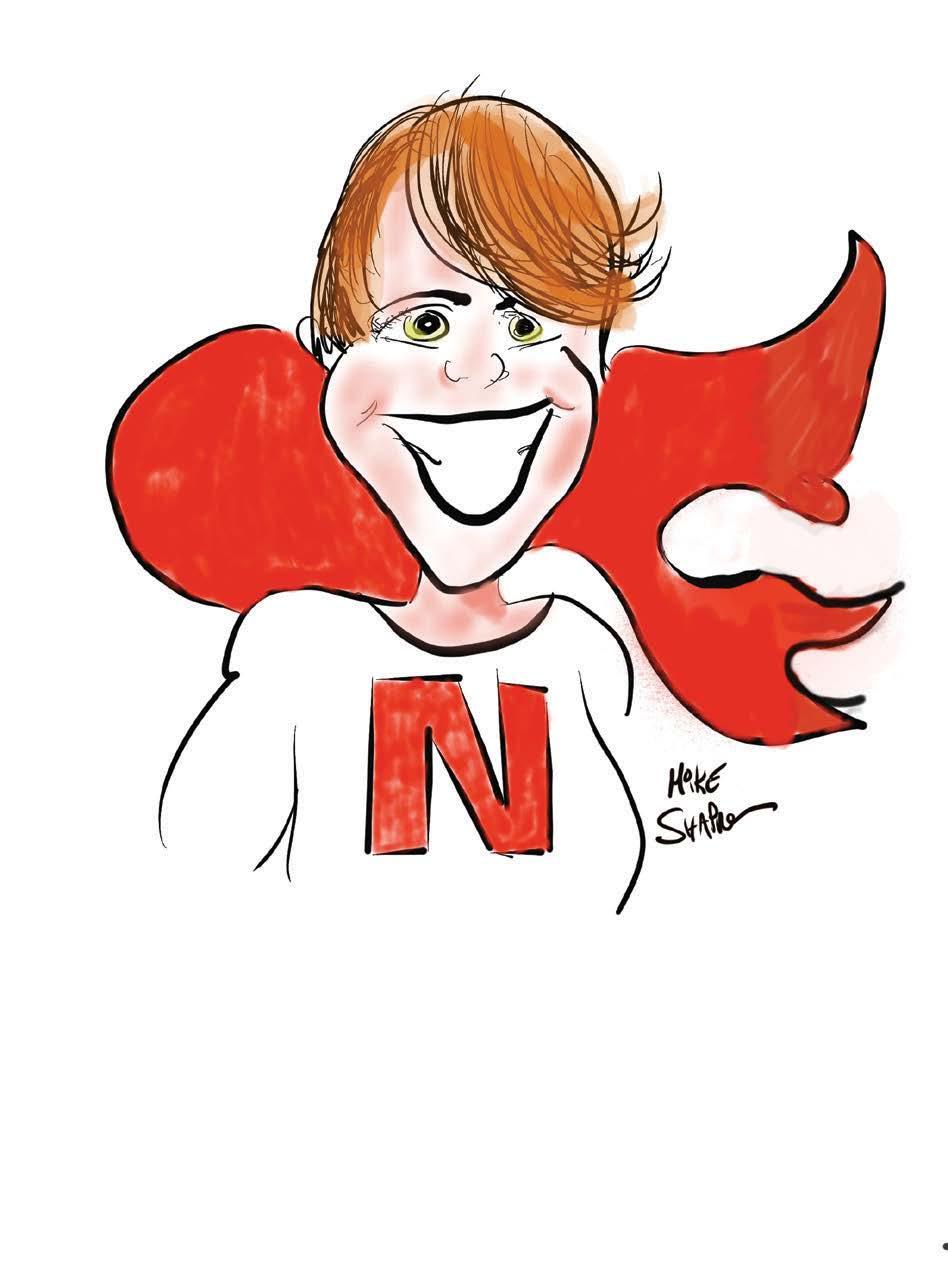
I have known her for almost fifteen years. In addition to being a delightful person to work with, she is diligent, insightful and hardworking.
I will tell you this – she doesn’t have a lazy bone in her body. As long as I have known her, she has managed to balance her family with her career at Eastern Funding, LLC all while pursuing higher degrees of education. Her wardrobe should include a cape and a Big Red S.
Nancy does most of the hiring at Eastern and the outstanding quality of personnel is directly attributed to her efforts. That is key in a finance company.
She is responsible for implementing Eastern Funding’s core values.
In addition, she is at the forefront of financial regularity, compliance and audits, which is also the foundation of this industry.
So she’s a pretty important person.
Top that off with all the community work and charity work she does and you have a real life superhero.
– Michael A. Shapiro, Principal
Law Office of Kramer & Shapiro,
willing to push themselves. Many of her team members have been promoted from within, which has come into play across a variety of challenges. One particularly memorable experience for Robles-Guess was in 2012, when Eastern Funding was converting its core banking system, a project that stretched over many weeks. Robles-Guess created a team of five team leaders from different departments—with no conversion experience—that traveled to Rhode Island to manage the process while managing their respective teams remotely.
As the project stretched out over the summer, the challenges grew and the team grew increasingly exhausted. As Robles-Guess recognized the signs of the team’s breakdown, she gave them a pep talk that consisted of empathy and motivation.
That got them through the homestretch. “Being able to connect with them and have a real conversation about what was happening meant that we were all able to identify with one another,” Robles-Guess says. “At the end of it, the conversion went over great. They did an amazing job.”
Challenges are certainly something that Robles-Guess could identify with as a mother of five who is juggling a demanding career, family, and personal growth. Always aiming for more, Robles-Guess is pursuing a doctorate in leadership while continuing her leadership role at Eastern Funding.
Having a team that is able to identify with one another, Robles-Guess adds, is part of what has made Eastern Funding so successful overall. “The most valuable asset we have as a company is our people, and it’s important to be able to have real conversations and relationships,” she says. “Here, people go above and beyond. It’s not simply because of compensation; it’s also because they’re committed to the company.”
We wish Nancy the very best in recognition of her unique skills and the fruits of her very hard work. We at Eastern Funding and Brookline Bancorp have all benefited tremendously from her efforts. The best, from your friends and colleagues at Brookline Bancorp.
How M. Carolina Rivas uses her compliance expertise to protect customers
By Rhiannon Root

My parents always told me that knowledge is power,” says M. Carolina Rivas, the chief compliance officer at Bci Securities. “No one can take away your knowledge or education.”
Rivas, in fact, has built her career on sharpening her skills through education. And now, after decades establishing herself as an expert in compliance, Rivas still credits the multiple mentors in her life, including her parents, with giving her the education and support she needed to learn develop her career in finance.
Education and training help people to solve problems, she says, because, ultimately, it’s people who have to make good choices.
She says that although the financial industry has a bad reputation among many
these days, her experience is that there are good people working day in and day out to help customers and do the right thing. Her role in compliance, however, helps people within the industry by educating them on rules and regulations and guiding them to make the decisions.
“We’re there to protect the customers, employees, and the company,” she says. Compliance officers, she says, work to make sure that their company is following governmental regulations and best industry practices. Her work helps protect the integrity of the system itself.
In fact, part of Rivas’s field of expertise is anti-money laundering and terrorism financing prevention. Although she says that she’s not an expert in anti-terrorism, she does work to ensure that people are
transparent in their businesses, which can help prevent terrorism in its own way. Often bad actors use money laundering to legitimize the proceeds of drug trafficking, human trafficking, fraud, corruption, etc. By uncovering bad actors, compliance professionals help ordinary people.
Although her passion is helping others, Rivas never thought she would become a compliance officer. She started out on the business side of finance and took her first compliance role, thinking it would be temporary. However, she found her niche in compliance because she does get to help people. Many people, on the other hand, compare compliance leaders to police officers, Rivas says, but that image isn’t really accurate. Instead, she sees her role as more of a cross between a bodyguard and a fancy bouncer.
Rivas was not always interested in compliance, though. She first became interested in finance as a teenager after watching the 1987 film Wall Street “I saw the movie and felt fascinated by stock markets,” she says. However, she is quick to point out that the excesses portrayed by the film were not her cup of tea. Rather, she enjoyed seeing how the movie described the interconnected world of finance. So, she went to study finance at the University of Florida and started her career at NationsBank.
During her time at NationsBank, which was eventually became Bank of America, she first began working in the business side and then transitioned into compliance, eventually becoming a member of the corporate global anti-money laundering compliance team. “I fell in love with it,” she says. “It sounds geeky, but it’s true.”
After many different compliance roles over the years, Rivas took a break from the industry in 2005 to try to strike a better work/life balance. This was, she says, the right decision for herself and her family. The corporate world can be grueling, and balancing family life with career is an arduous task for any parent. So, she took a break for about five years but kept up with her certifications.
When her children were a little older, she decided to go into business for herself and founded the consulting firm Engaged AML Solutions in September 2009. “I never thought I’d own my own company,” she says. “I didn’t set out to do it, but it happened.” By becoming a consultant, she was able to have flexible hours and use her broad spectrum of experience for her clients. Being in charge of your own business, Rivas says, is challenging because it requires a different set of skills.
For more than five years, she worked as a consultant. At the same time, she went back to earn a master’s from Nova Southeastern University in 2010. During that time, Rivas also worked with Bci Securities as a client for about a yearand-a-half. In 2015, however, she was presented with the opportunity to join the company full-time. Bci Securities represented the professional challenge and personal balance Rivas had strived to achieve along her career. Bci Securities’ core principles matched Rivas believes in taking care of customers and employees as well as making a positive impact in people’s lives. Additionally, Bci Securities’ reach and the fact that it was like working at a start-up within a corporation made the offer a good fit for Rivas. Bci Securities is a brokerage and investment adviser
firm based in Miami. It’s also the USbased investment arm of the Banco de Credito e Inversiones, which is the third largest private bank in Chile and the first Chilean bank to acquire a US banking institution, City National Bank of Florida. In fact, Bci Securities’ growth strategy seeks to position the brokerage firm as an investment solution provider for its affiliates’ wealth management platforms in the United States and Chile.
At Bci Securities, Rivas says she gets to learn new things every day as the company expands its business to reach customers in the United States and abroad. Her primary responsibility is to implement the firm’s compliance program within the regulatory framework. However, her daily duties are constantly evolving; she handles everything from new account due diligence to surveillance. “A compliance officer sees all sides of the business,” she explains.
Currently, one of her biggest responsibilities is training those in her team, which is also a passion of hers. Knowledge is what helps guide empowered decision making, Rivas says, and it is especially important in business where so much rides on professionals following best practices. After all, compliance is everybody’s business. She says that mentors and role models are a big factor in getting things right, and they have played a big role in her own career development. Sometimes, she’ll even picture her mentors and ask what they would do in a particular situation.
At the end of the day, Rivas advocates for learning and educating others and finding mentors in the workplace. “Always educate yourself,” Rivas says. “Look at every change as an opportunity to learn.”
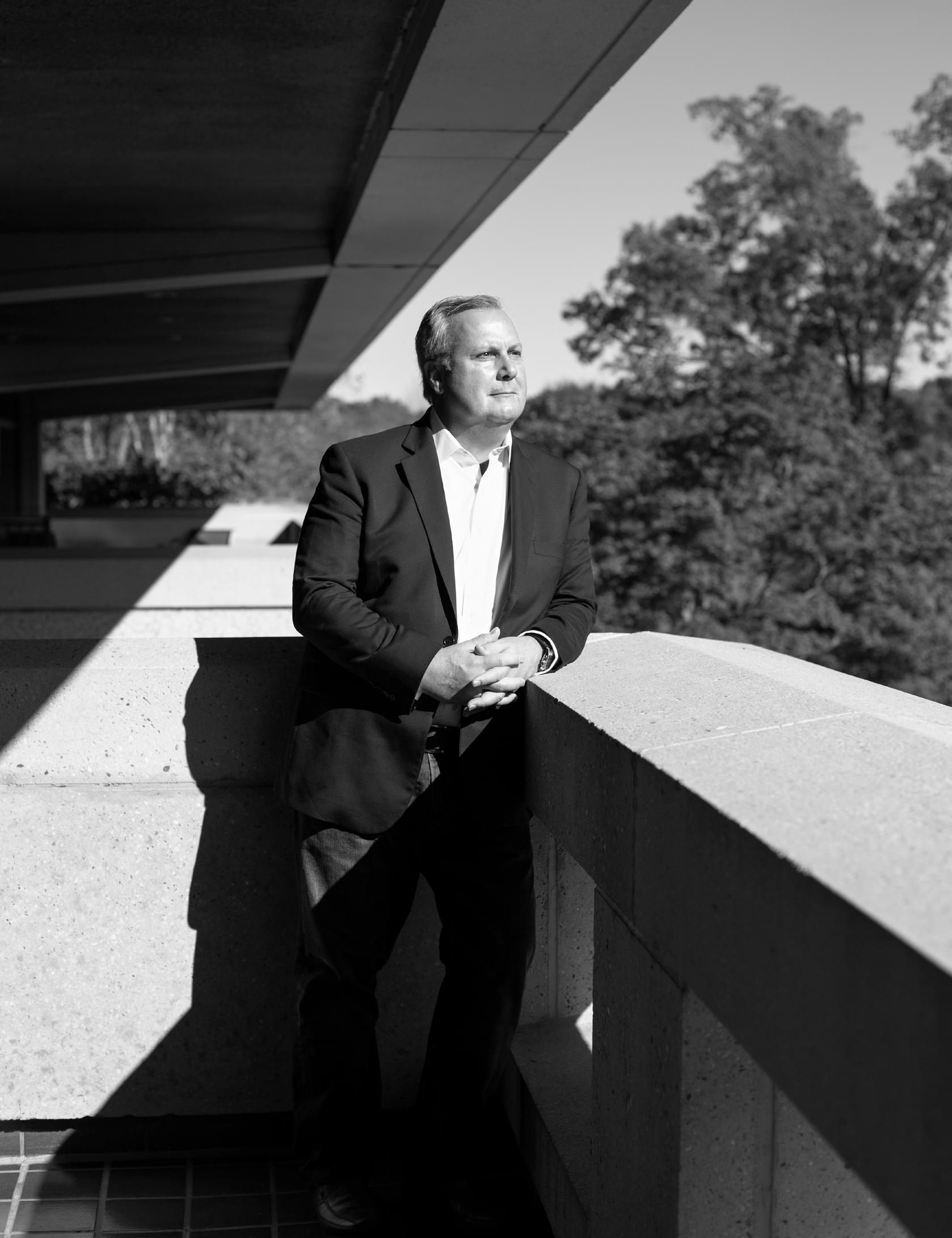
By Valerie Menard
Portraits by Gillian Fry
In a technological age, the ability to forecast future trends is invaluable. Verizon’s John Vazquez sets long-term goals toward automation and optimization to maximize efficiency.
proverbial wisdom used to dictate that if the business model was sound and included best practices, it was best to stay the course. But in a technological age, where change happens in a flash, conducting business as usual might not be the wisest plan.
John Vazquez, senior vice president and head of global real estate and supply chain at Verizon, believes that it’s best to create a strategy that sets goals for long-term success, rather than focusing on the task at hand.
“As a manager, are you the custodian of what was or the owner of what will be?” Vazquez says. “I’m a firm believer that staying in the environment you’re in today is riskier than where you should be tomorrow.”
In fact, his forward-thinking approach has earned him a reputation in his field.
“John is a visionary leader that inspires those around him to think outside the box and push the boundaries of what is possible,” says Lisa Brinkman of HOK.
After more than six years at Verizon as the senior vice president of real estate, Vazquez took on the supply chain this year. In doing so, he expanded the number of employees under his watch to more than two thousand, and the budget he now manages is $50 billion. It might seem like there aren’t enough hours in the day to manage all of his responsibilities, but Vazquez learned long ago that it’s best not to go it alone. Instead, the best approach is to build a diverse team to complete his strategic plan.
“Inclusivity is not about quotas; it’s about inclusion, creating a culture that allows others to bring in new ideas and perspectives,” he says. “Your people should be better than you. They will focus on a goal, own it, and take responsibility for it. If you can get that scenario, it’s much easier to be a leader.”
He’s acquired this wisdom over a thirty-five-year career, during which time, he says, mentors played a large part in his professional development, starting with his father, Manuel, a
Spanish immigrant. The middle child of three and a native New Yorker, Vazquez was impressed by his father’s ability to achieve despite his humble beginnings. He watched his father work to support the family as a mechanic, eventually starting his own business in Little Italy in Manhattan and then opting to work as a supervisor for American Airlines.
“My dad has an unbelievable story, growing up on a farm, reaching the eighth grade, working from the age of fourteen, and serving in the Navy as a sharpshooter,” Vazquez says. “He is a real Renaissance man like many immigrants who must learn new languages and do what it takes to see their children succeed.”
As a child, he says, he had no idea what his ideal job would be. He didn’t have relatives who worked for larger corporations or who had graduated from college. He also struggled at math, but one summer, his seventh-grade teacher gave him a packet of three hundred math questions to work on during the hiatus.
“I worked on the problems all summer while in Spain visiting relatives, and by the end of the summer, it clicked,” he says.
Still, Vazquez chose to study business at Manhattan College, but he soon switched to mechanical engineering, a rare move for a business major. He would ultimately complete his studies in business as well, earning a master’s in business administration from Sacred Heart University.
“I had a greater sense of accomplishment with engineering,” he says. “I liked problem solving and analytics. It connected back to what my dad always said, ‘No matter what you choose to do, make sure you use your head and not just your hands.’”
In college, he accepted an internship at IBM, working in the boiler room, where he eventually met his next mentor, Tom Benek, the company’s head of real estate.
“I saw how he dealt with people and how he had a vision, a well-balanced plan,” he says. “He listened to people and showed
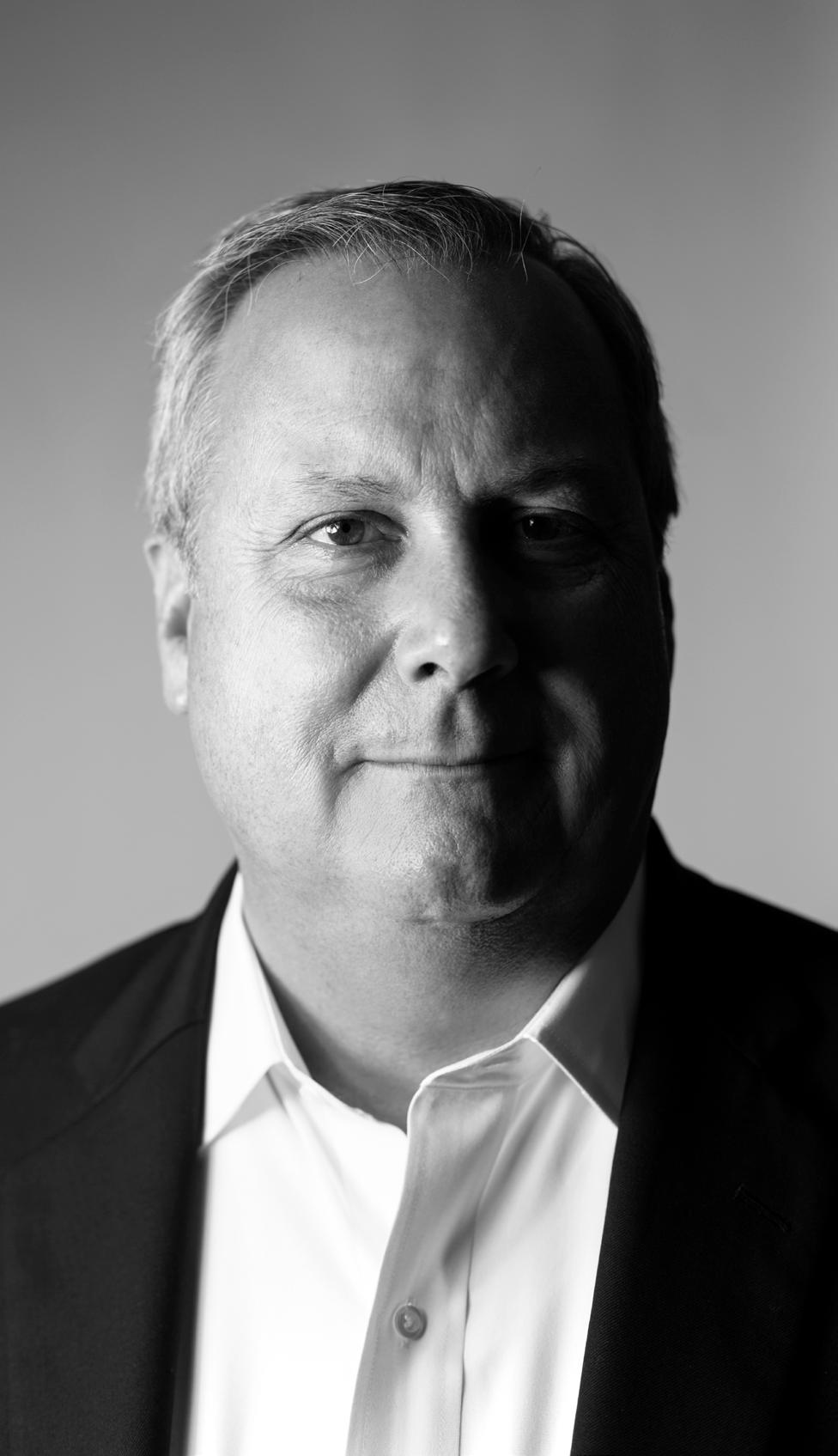
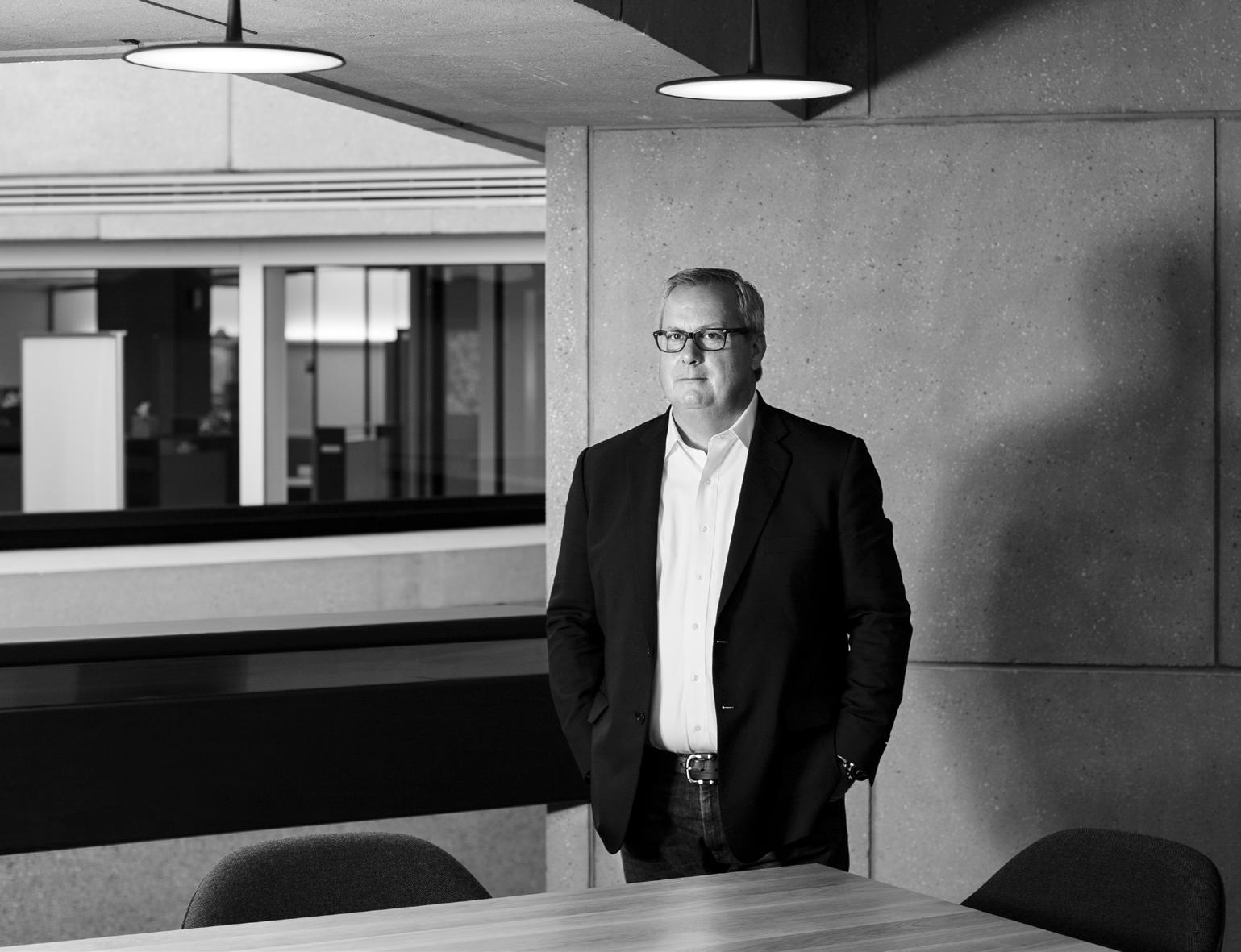
compassion, but he was also tough when he needed to be. For me, that’s where it all started—at IBM with Tom.”
Vazquez counts Marc Reed, executive vice president of human resources at Verizon, as his latest mentor. When he accepted the job in 2012, the company was in the process of transforming from a telecom company to a tech company, which appealed to him. He says Reed has helped steer him toward embracing a strategic approach over a tactical one.
“I’m now more aligned with business strategy,” he says. “I look at what cities are good for talent and at what we want, elevating the whole game to a location decision as opposed to a real estate deal. It’s not just about construction projects; it’s a fundamental change, developing what the workplace looks like and how you drive programs.”
As a result, the company has shifted from a focus on the employer to the employee. Traditionally, employees were encouraged to climb the corporate ladder, but not all employees want to advance in that way, Vazquez says. Some want to stay at the job they have but increase the complexity of their work. Recognizing this, Verizon changed its workspace, forgoing individual offices for an open space where employees and managers can exchange ideas. Rather than seek an entire building to fill with workers, Vazquez also adopted the practice of coworking where workspace is rented as needed. And his work in that space did not go unnoticed.
Verizon’s John Vazquez has traveled far in his professional life to become the senior vice president and head of global real estate and supply chain, but he hasn’t forgotten the barriers he faced along the way. Hoping to dispel preconceptions about Latinos, he pays it forward by supporting employee affinity groups at Verizon and working with organizations like ASPIRA to encourage Latino youth to pursue the sciences and the National Hispanic Business Group to increase supplier diversity at Verizon.
“We’ve come a long way, but we have a responsibility to let people know our story and that it’s not a one-off story,” he says. “My story is not that unique.”




























John, Congratulations on this well-earned award which is a true reflection of your leadership, and character. We at JLL are honored to celebrate this achievement with you!
Cheers,
Your JLL Partners
“We have been working with John and Verizon for many years,” says Karl Anoushian, senior vice president at Structure Tone. “His leadership and understanding of the entire construction process have made him an incredibly valuable and trusted partner and friend.”
Adding supply chain to the mix of his responsibilities in the past year might seem like a Herculean task, but because challenges and problem solving inspire him, he embraces his new role. His key focus will be to transform supply chain in a similar way to real estate to be more strategic.
“I want to make sure logistics are optimized and look at years down the road rather than the near term,” he says.
Some of his goals include moving supply chain to an automated platform to measure inventory levels and automatically order supplies and equipment for just-in-time-delivery to network sites, rather than ordering in bulk and holding supplies in warehouses.
Another solution he’s implemented involves finding ways to reuse old technology. His team is establishing Trademore.com as a telephone-recycling project for Verizon to buy old phones, refurbish them, and then resell them or use them internally.
“This way, we generate more income while increasing access to more devices,” he says.
He considers honesty, trust, compassion, and ethics important leadership qualities—values he saw and admired in his mentors and which he applies as a manager every day.
“You’d be surprised what people can do, given the opportunity,” Vazquez says.
Gensler congratulates John Vazquez on this well-deserved recognition. Verizon’s mission is to give people the ability to do more in this world and to improve lives through Innovation. John and his team embody this charge “We don’t wait for the future. We build it.” Proud to be your design partner!
Clune Construction is proud to congratulate John M. Vazquez for his feature as an exceptional leader in Hispanic Executive. John’s diverse educational background, coupled with his determination and hardworking spirit, are values that Clune holds dear. At Clune Construction, we place an emphasis on honesty and integrity. Professionals like John inspire us to produce high-quality results on every build. As a national general contractor employing more than 500 professionals and managing more than $900 million in commercial and mission-critical projects, we value our national relationship with Verizon and are proud to work with the company.
Jones Lang Lasalle congratulates John Vazquez on his appointment as Verizon’s global head of real estate and supply chain. John’s transformational leadership has created value, driven efficiency and enhanced the workplace experience at Verizon. JLL is proud to be a Verizon strategic supplier and wishes John and his team continued success.
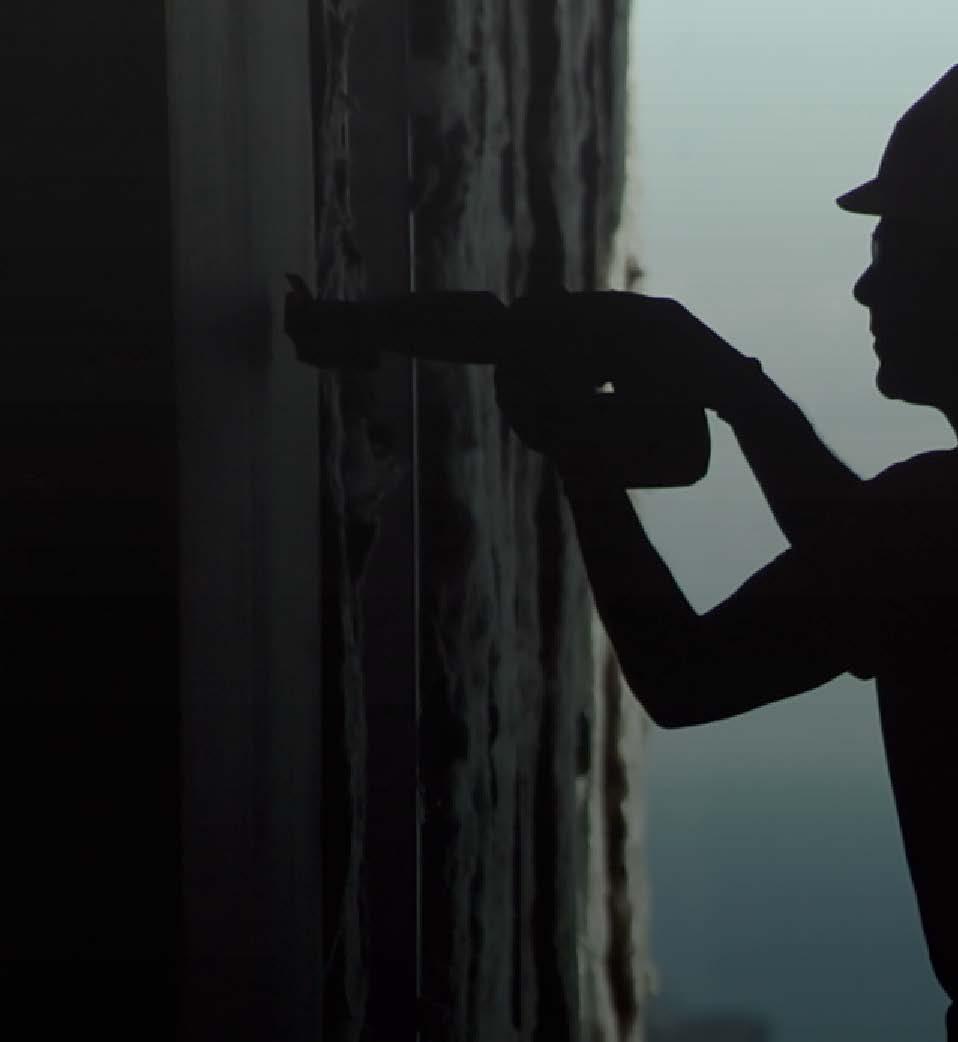

ONE SQUARE FOOT AT A TIME
For over 20 years, Clune Construction has placed an emphasis on honesty, integrity and client satisfaction.

John M. Vazquez, Senior Vice President & Global Head of Real Estate at Verizon, continuously radiates these qualities. Clune would like to congratulate John on his feature in this special edition of Hispanic Executive.
With five regional offices across the United States, Clune combines local expertise with large-scale construction capabilities to meet and exceed the expectations of its clients.
Clune Construction is proud to partner with Verizon.
John
on his outstanding accomplishments at Verizon and his expanded role overseeing Global Supply Chain and Real Estate.
John Vazquez’s leadership, expertise and commitment to excellence are an inspiration to all those who work with him. Cushman & Wakefield is proud to call John Vazquez a partner for almost 30 years.













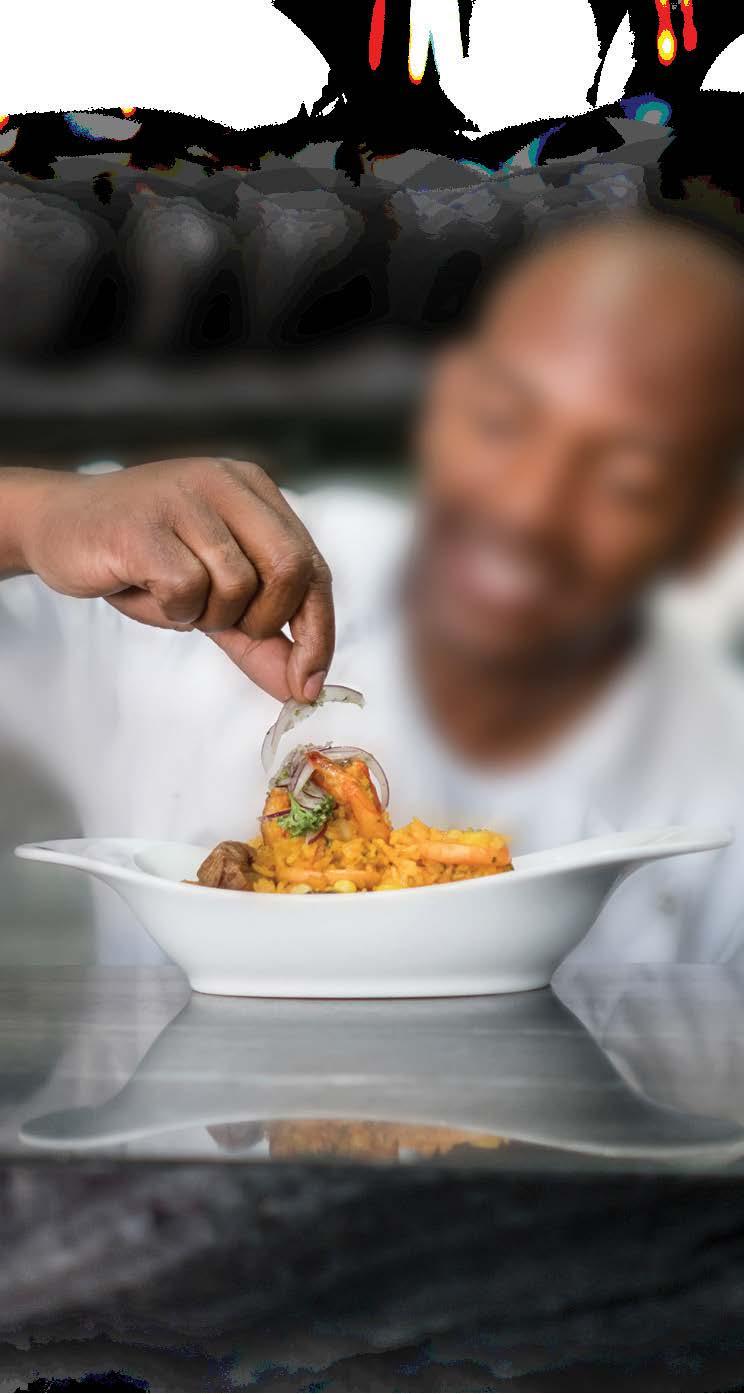
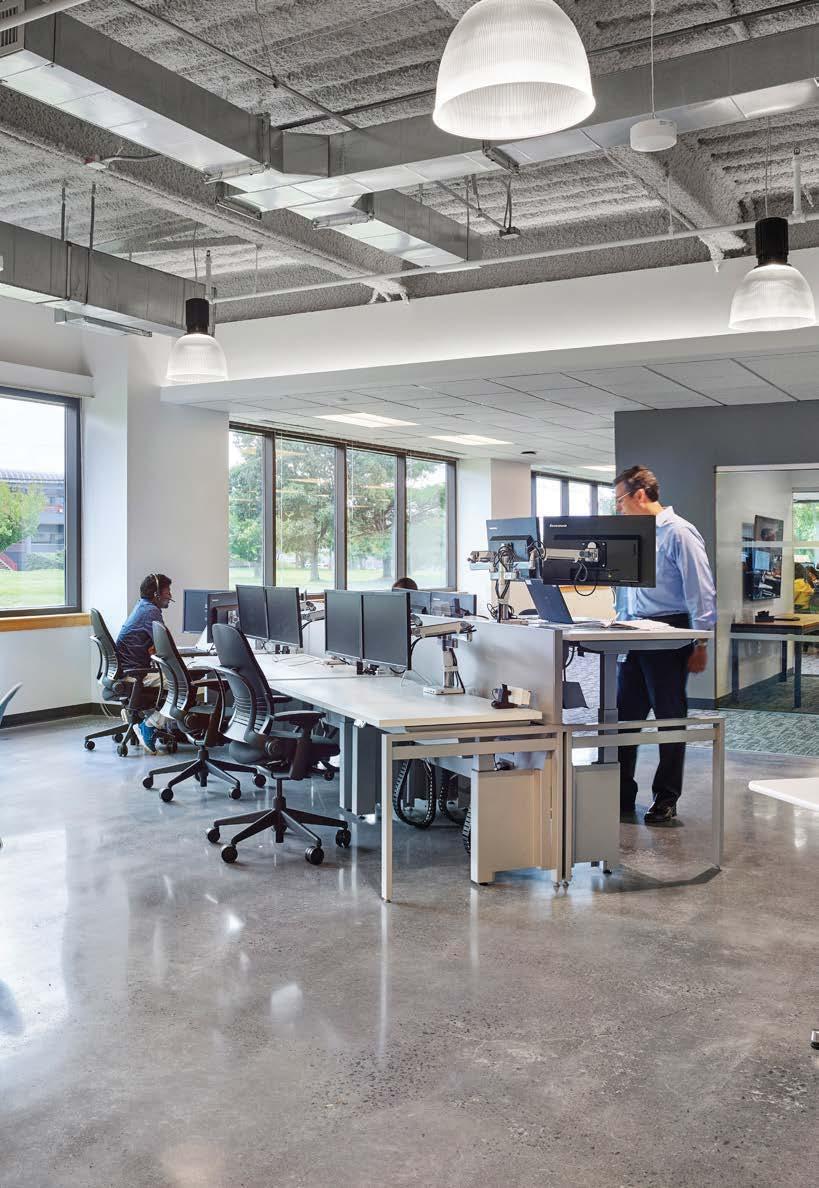
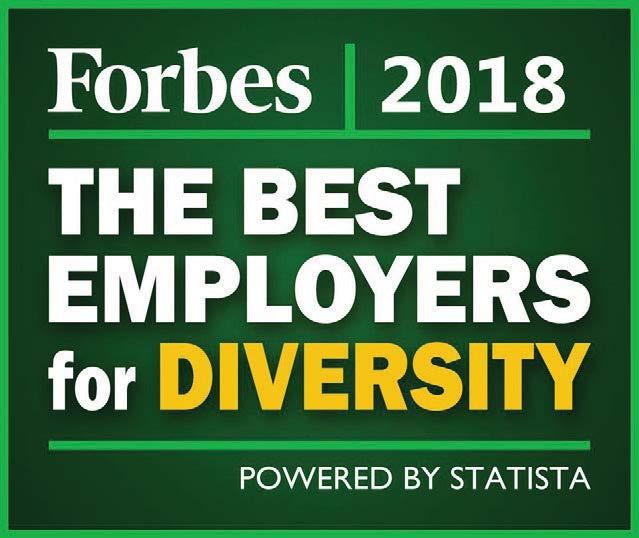
By Lori Fredrickson
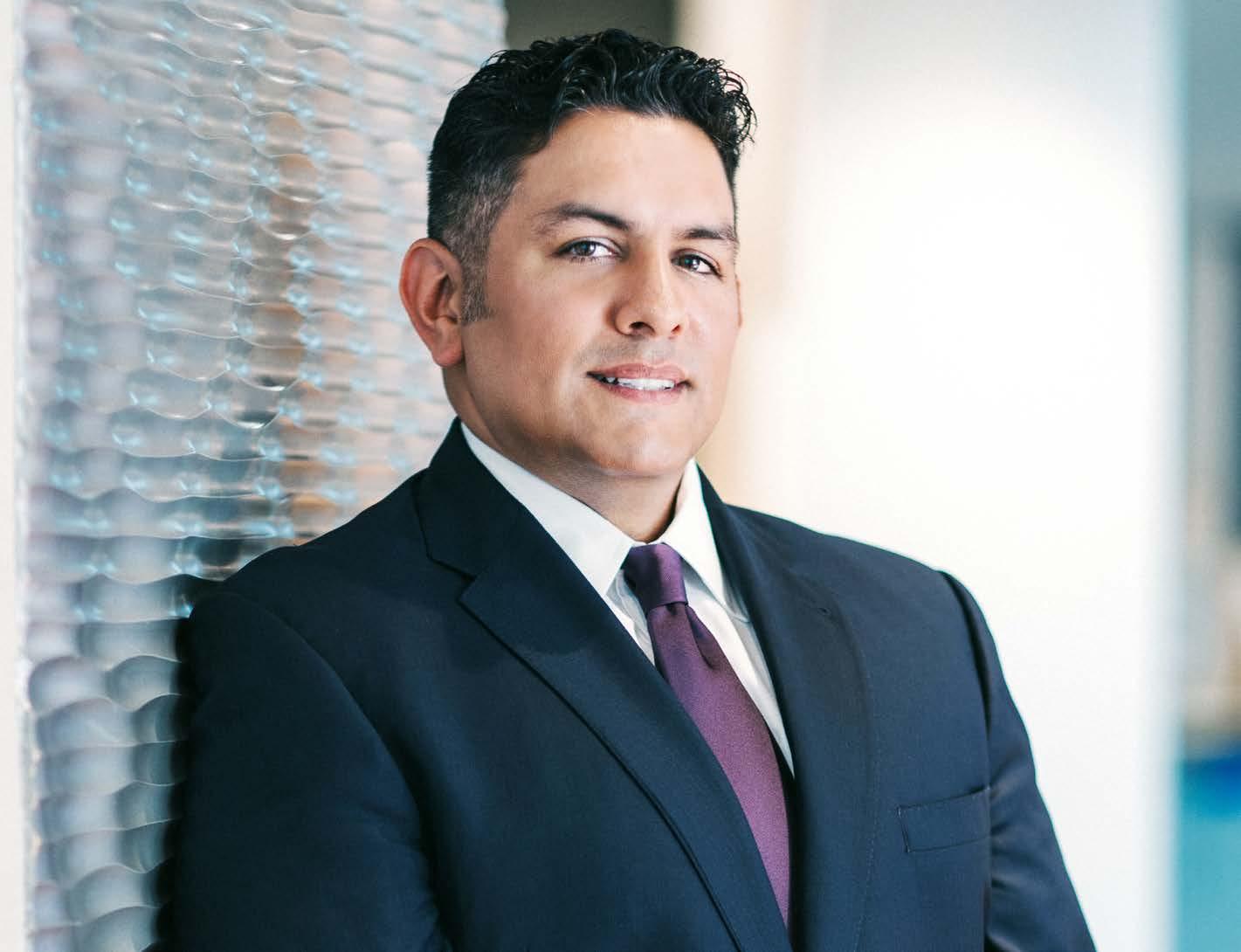
As vice president of litigation at Samsung Electronics America, Richard Rosalez has a lot on his plate. Managing litigation for the company in the United States means that he has to juggle a slew of issues on a day-to-day level—from minor and major lawsuits to elevated consumer complaints to counseling business teams on strategic issues and matters related to brand protection. “It’s a bit like playing many chess matches at once or working in an airport control tower,” Rosalez says. “You have to simultaneously remember the pieces in play and strategize on the moves that you need to make. And you need to keep communication lines open to avert disaster and plan ahead.”
Fortunately, with seventeen years of impressive experience behind him, Rosalez has the chops to handle it.
“I’ve had the pleasure of working with Rich on a number of cases over the years, involving both patent litigation and class actions,” says Richard Edlin, vice chairman of Greenberg Traurig. “What first impressed me about Rich was his knowledge of these two distinct areas of the law. But as you work with Rich, you learn that, regardless of what we are working on, he is well prepared, knowledgeable about the facts and the law, and a very strategic thinker for Samsung. Whether we are working on a brief or preparing a witness for trial, his input is insightful and astute. Rich is a calm force throughout and very talented in his role.”
In addition to his own expertise, Rosalez also has a great team to help him as well. Here, he shares his thoughts and advice on managing litigation at Samsung.
How did you end up joining Samsung in 2011?
After law school, I worked at Latham & Watkins in New York and at Jones Day in Dallas, both of which are large, international law firms. Over the years, my practice included intellectual property, antitrust, complex commercial, and government-enforcement and whitecollar matters. When an opening at Samsung caught my eye, I applied for a position to lead a newly formed litigation team. From there, I gained increasing
responsibility and became part of an expanded team and was promoted to my current role a few years ago.
How do you stay up to date on the latest developments in products and technology?
It’s important to stay apprised of developments at the company, across the industries that we compete in, and with our suppliers and partners so that I have a solid understanding of the competitive landscape, can better advise my colleagues, and can more effectively anticipate any issues. Therefore, I closely follow news related to Samsung, the industries that we are a part of, our competitors, our suppliers, and our partners. I also read science and technology news to follow emerging trends and innovations. As we’ve entered new product categories, having a solid understanding of the competitive and regulatory landscape around Samsung has helped me to better counsel the business on potential developments on entering a new market, which allows us to prepare and prevent challenges.
What has it been like to work with Samsung’s technology as a litigator? Samsung strives to bring the latest and greatest products and innovation to consumers, and our investments in research and development have led to breakthroughs and market-leading positions in more categories than any other company. More than anything, it’s exciting to be part of a company that is pushing the envelope with new technologies and to help address legal issues that arise.
What are some of the things that you’ve focused on in leading your department?
A big part of my approach is to empower team members to make key decisions and take ownership of what they’re working on. I want to share in successes, and I strive for that and recognize it when that happens. But I also want to share in setbacks and eliminate any fear of failure when things don’t go as planned. We can’t control outcomes or reactions to many matters that we manage. It’s important to
celebrate the highs, learn from the lows, and ensure that, as a team, we know that we did everything we could to get the best outcome. So, I do this by establishing and building trust and being honest and open with team members. Most importantly, I try to lead by example.
What has been your approach to mentorship?
True leadership stems in part from mentorship. Mentors can play key roles in professional development. I’ve sometimes lacked having a mentor, and it’s a stark contrast to have someone who can provide guidance from previous experiences and share successes and failures and how to learn from mistakes. I want to extend that same support, so I strive to make myself available at all times to discuss any concerns and keep communication open so that mentees will seek my counsel.
Working on such a demanding schedule, what are some of the ways that you manage stress?
Maintaining a good work/life balance is important. Being able to coach my children’s sports teams and spend time with my family on vacations means I’m able to keep centered and tackle whatever lies ahead. Leading by example in that is also important because if I don’t take advantage of flex time or vacations, my team might follow that lead and risk burning out as well.
What have been some of the accomplishments and achievements you’ve been most proud of?
Thankfully, I work with a fantastic team, and we’ve enjoyed some great results. We’ve won numerous trials and appeals and protected the company against unviable class actions. Topping the list is a well-publicized litigation against Apple, which resulted in Samsung securing a unanimous victory at the Supreme Court. On another note, I’m also proud of our Samsung Gives programs, which include matching charitable contributions and giving employees time off to volunteer. I’ve helped direct funds to causes I care about and volunteered with organizations,
“A big part of my approach is to empower team members to make key decisions and take ownership of what they’re working on.”
ranging from park clean-ups to the American Red Cross to multiple food pantries. In addition to giving back to our local communities, this instills a great sense of pride in Samsung.
What have you enjoyed most about being in your role at Samsung?
I consider myself lucky to have landed here when I did and fortunate to be part of a great team that I truly enjoy working with. I’ve also worked with a lot of great executives and team leaders outside of the legal department, and I have learned from many of them, as well as from outstanding outside counsel for Samsung, many of whom are the best in their areas of expertise. The job is extremely demanding but also rewarding, and it helps to have relationships with colleagues where by helping each other and working hard, we pull through. The mutual respect and support that we cultivate ensures that we deliver, regardless of what the demands are.

Greenberg Traurig congratulates our friend Rich Rosalez, Vice President of Litigation at Samsung Technologies.
Your commitment to your profession and community has earned you respect as a leader and role model. We are proud to have you as a client and friend and share in your passion for diversity and inclusion.
Diversity: It’s in Our DNA
Greenberg Traurig Select 2018 Achievements:
ALM Diversity Scorecard
• Most Hispanic-American Attorneys & African-American Partners
Chambers USA Women in Law Awards
• Most Innovative Gender Diversity Initiative
Human Rights Campaign Foundation
• Corporate Equality Index, 100% Score
By Tricia Despres
Portraits by Peter Garritano
Dunkin’ Brands’ Rick Colón leads the way for next-gen stores while maintaining a nostalgic connection to the past
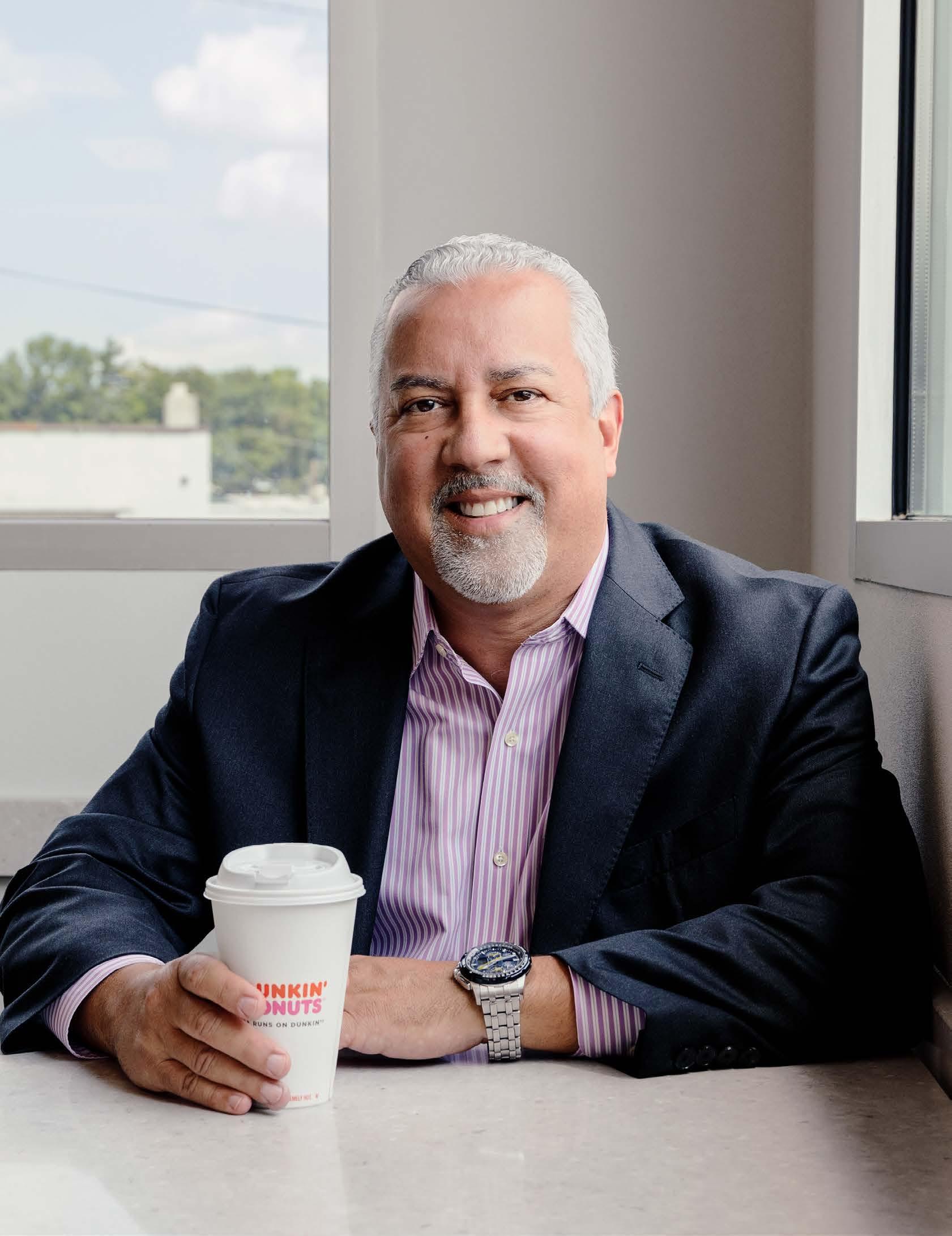
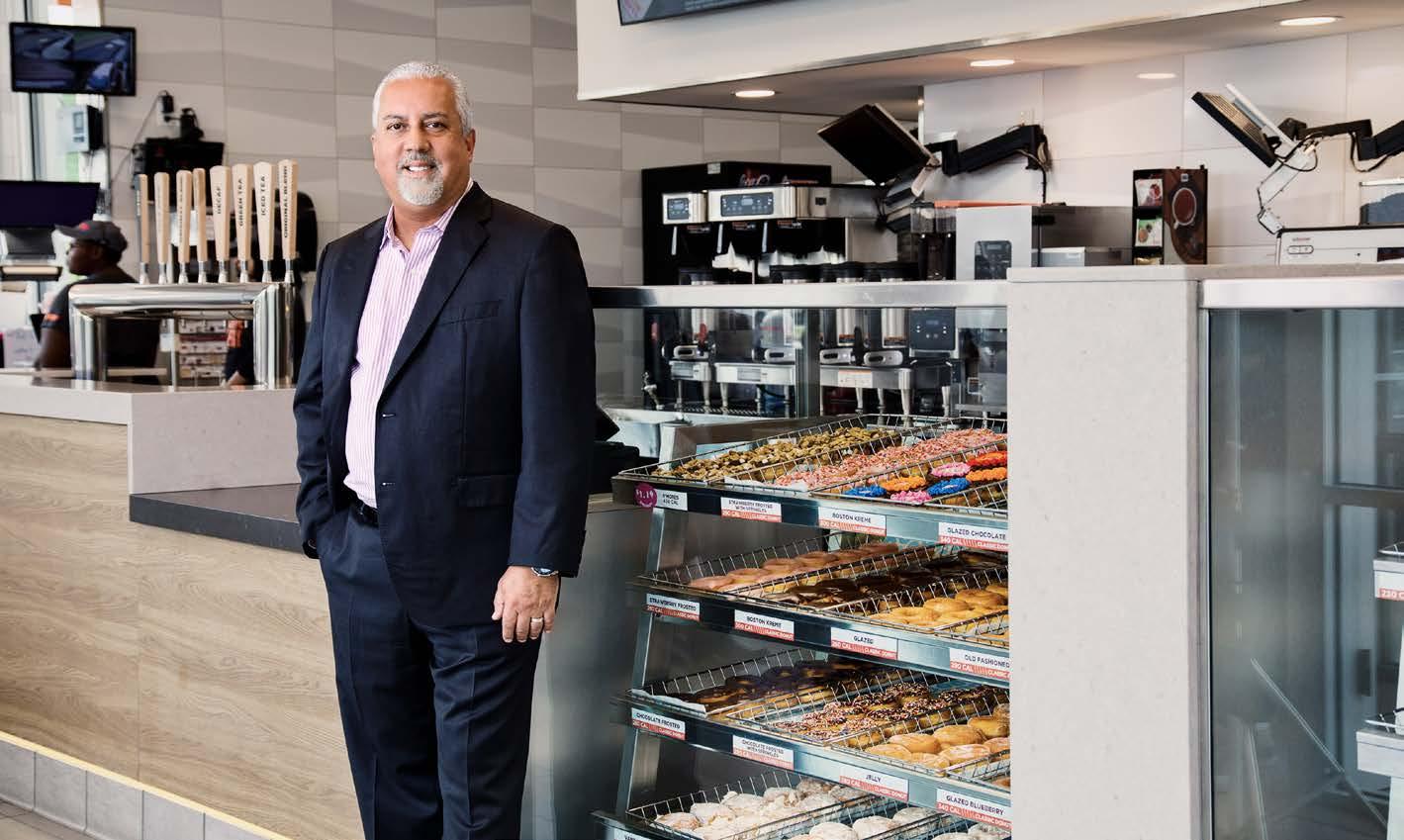
many years pass, Rick Colón will always remember the weekends he spent with his father.
“It was a bit of a Saturday ritual to go with my dad to Dunkin’ Donuts,” Colón recalls. “I can still smell the fresh baked doughnuts. I loved getting to have my pick of which ones we would bring back home. But yeah, I wouldn’t leave that store without getting a glazed one.”
Today, Colón finds himself working as Dunkin’ Brands’ senior vice president of US operations and development. And sometimes, he still can’t believe it. “It’s very surreal when you think about it,” he says. “But I truly believe that everything works out the way it’s meant to be.”
His journey to Dunkin’ Brands, however, wasn’t as clear cut as one might think. Originally from Puerto Rico, Colón moved to Connecticut when he was just four years old. As a soft-spoken teenager who dreamed of becoming a baseball player when he grew up, Colón got his first job at McDonald’s, where he did everything from washing the floors to flipping the burgers.
Little did he know then that he would remain at McDonald’s for a total of thirty-nine years, eventually moving into the corporate world to oversee over 5,500 restaurants around the country. Colón, however, was at what looked to be the pinnacle of his career when he decided it was time to retire.
“Here I was, fifty-four and retired,” he recalls. “I just thought it was time to spend more time with my family. But after being home for eighteen months, my wife started telling me that I had to find something to do. I couldn’t clean the garage once a week.”
And then the phone rang.
“A business associate friend of mine was just calling to check up on me, but they ended up telling me about an opportunity with Dunkin’,” Colón says. “I spent a couple of days at their headquarters, and I fell in love with the culture there. I was hooked.”
Hooked he was, especially to the challenges that laid out in front of him: to help shape Dunkin’s next-generation stores. The launch of these dynamic new stores marks an important moment in Dunkin’ Donuts’ growth. The stores will include
Outside of his work at Dunkin’ Brands, Rick Colón sits on the BayCare Health System board of directors, and he is an advisory board member position with Alocito Inc. However, when he is not spending his time at the office or out in the field, he is doing what he loves most: boating.
“I never took up golf because it took too much time away from my family,” Colón says. “I loved flying helicopters and airplanes, but eventually, my wife asked me to find another hobby. So, we got into boating. It’s my release from everything in the world, and I couldn’t love it more.”
features such as more modern design, premium pours, an expanded, custom Grab & Go unit with bottled beverages and snacks from leading brands that complement Dunkin’s menu, and more.
“Basically, we want to offer the consumer every beverage option that they could possibly want,” says Colón, who oversees the changes in six different regions across the country. “We want our consumer to decide how, when, where, and, of course, what they want to order.”
But in doing so, Colón says he is committed to maintaining a healthy balance between the needs of the brand’s longtime patrons and the wants of their younger customers, who are accustomed to a more on-demand sort of purchasing structure.
“We are still going to be there for the guy who just wants to run in for his coffee and doughnut, just like my dad used to,” Colón says. “But we also want to evolve as a brand for those young people who will eventually hold the biggest purchasing power for us moving forward.”
Therefore, Colón often relies on the suggestions from his own family about the best ways to do this, especially when it comes to catering to millennials.
“I have two millennial boys and a millennial daughter-in-law who help keep me honest,” Colón says. “I truly believe that we have hit a point where we need younger mentors. Everything is so fast these days. What used to take a day to communicate now takes a second. So, I’ve really become committed to listening more and talking less. I’m intrigued by how brilliant millennials are.”
Indeed, the pure idea of mentorship is something that Colón believes had a direct effect on his own professional journey.
“I wouldn’t be here if it weren’t for my high school teacher Ralph Severino, who helped me get that first job at McDonald’s,” he says. “I mean, when I didn’t know how to dress for an interview, he bought me a jacket. I learned early on about the importance of mentors, along with the importance of picking mentors who are different than you.”



With more than 20,000 points of distribution in more than 60 countries, Dunkin’ Brands is one of the world’s leading franchisors of quick service restaurants (QSRs) serving hot and cold coffee and baked goods, as well as hard serve ice cream.
Dunkin’ Brands is the parent company of two of the world’s most recognized and beloved brands: Dunkin’ Donuts, America’s favorite all-day, everyday stop for coffee and baked goods, and Baskin-Robbins, the world’s largest chain of ice cream specialty shops.
who have made a marked impact on their respective fields, including everything from the media to construction. This year, each member of our “Top Ten Líderes” has made a major contribution through their role in the Latino Donor Collaborative.
The LDC is the only national organization that works specifically to change the stereotyped perception of Latinos in mainstream America by systematically challenging the prevailing negative perception and replacing it with a true US Latino story. To do this, the organization specifically targets business decision makers, opinion influencers, and content creators, and that’s exactly
the type of people who make up the organization—people with the power to make an impact.
Over the past two years, the LDC has become more outspoken and present in the media, and 2018 was a watershed year. This past year, the LDC unveiled its “Power of All” campaign, an unparalleled advertising campaign in The Hill and The Wall Street Journal that presented some of the most compelling facts about Latinos’ effects on the US economy.
“We wanted this information to be seen by people that are decision makers. That’s why we chose the publications we did,” says Ana Valdez, executive director of the LDC. “We wanted people to have a place where they could look at the facts in a very digestible way.”
Now, the organization is ramping up its advertising and research efforts, and none of it would have been possible without contributions from this crop of Hispanic business leaders—who also happen to be making a significant impact outside of the organization.
“We have twenty-six of the top Latino business people in America. All of them are trailblazers. All of them are successful to levels they’d probably never imagined,” Valdez says. “Some of them are immigrants, some of them are not, but they all have one thing in common: they have nothing to gain from their involvement in the LDC except for creating change for others.”
Linda G. Alvarado is no stranger to Hispanic Executive, and as one of our Top Ten Líderes, she expounds on her words of wisdom
By Olivia N. Castañeda
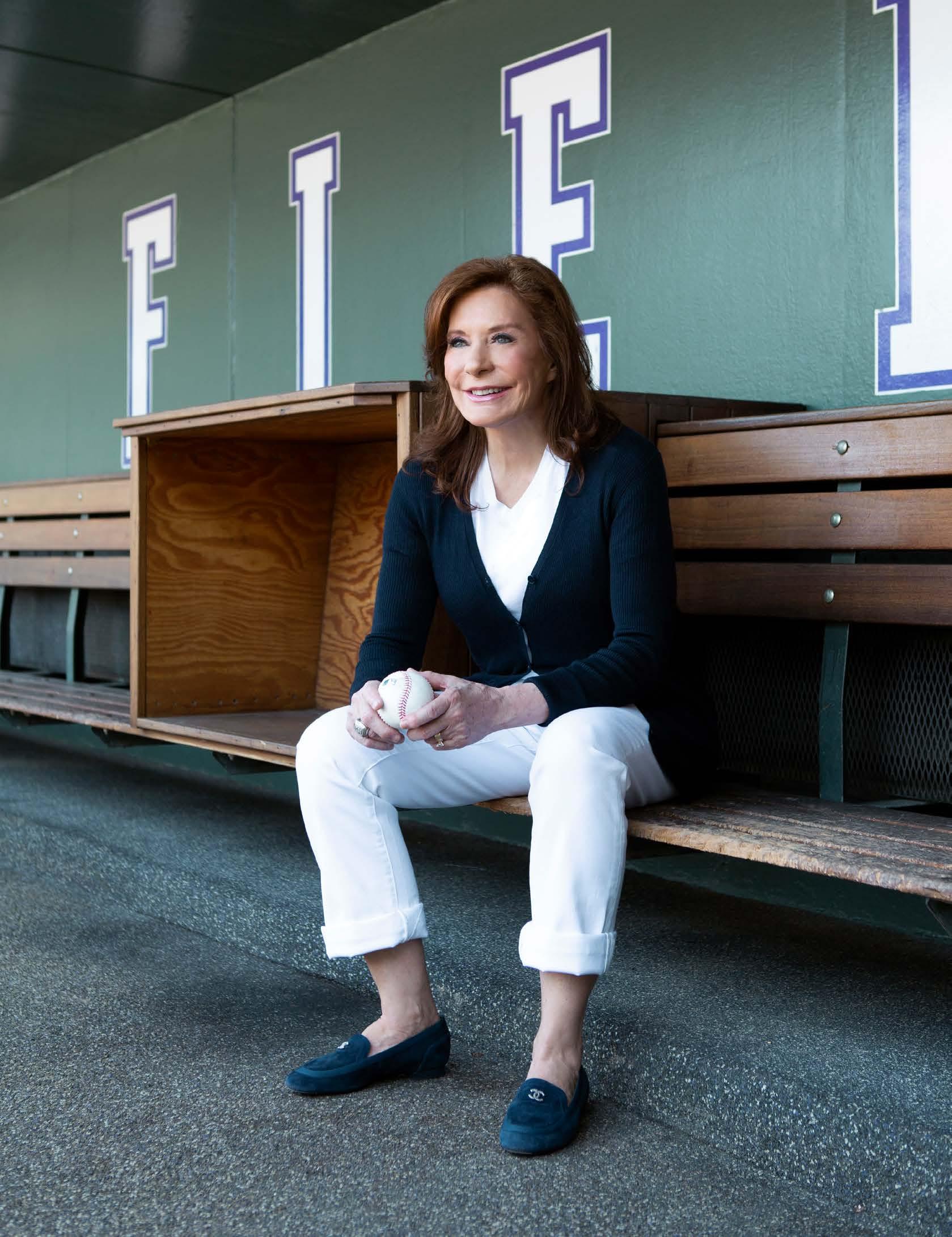
AAs a female construction contractor and the first Hispanic owner of a Major League Baseball team, Linda G. Alvarado is certainly a trailblazer. But that’s not what’s important to her.
“I don’t want my legacy to be that I was the first— but I still am the only,” she says. “I want my legacy to be one of opening doors for other women, particularly Hispanic women in construction, engineering, and other careers.”
She did not pursue a career in a male-dominated industry to make a statement, but the career she has built certainly leaves a lasting impression.
Alvarado Construction is a Denver-based commercial general contractor, construction management, and development company. Over the course of four decades, the firm has built a variety of projects, including multimillion-dollar commercial, government, industrial, retail, educational, office, and technology projects. Some of the its most wellknown projects are the Denver Broncos Mile High Stadium, Phoenix Civic Plaza Convention Center Expansion, the D.O.E High Energy Research Facility, and the thirty-seven-story Hyatt Regency Center Hotel. Her interest in construction, however, dates back to her childhood in Albuquerque, New Mexico.
The second youngest child, Alvarado grew up with five brothers in an adobe home where sidewalks were nonexistent. Her parents didn’t define what she could do by her gender. She built wood forts with her brothers and helped her father mix and place concrete for the sidewalks.
Today, she still credits her pursuit of a life in construction to the fact that she was enamored with the creativity in the architectural designs and the construction work skills required to complete projects. Even with all of her achievements over the years, she has gained some wisdom along the way—wisdom she can now share with the next generation of Hispanic Leaders.
“Empieza pequeño, pero piensa muy grande.”
Alvarado’s mother, Lily Sandoval Martinez, taught her from a very young age to live and learn. “You are little and starting small, but think really big about what you can do,” she would say. As years went by, this applied to Alvarado when she began her construction company. “My first projects were concrete curbs, gutters, sidewalks, and small bus shelters,” Alvarado says. “Then, I started thinking about the company building high-rises someday.”



“Diversity of perspectives can be a great business asset.”
As Alvarado sees it, the concept of diversity is really more than social responsibility. It’s also good for business because diversity adds value in developing new products, services, sales, and marketing. It is an important asset in the contributions by talented employees, in adding diverse consumers, and increasing the bottom line in higher revenues and profits of businesses. “Diversity in an enlightened corporate policy that seeks to address positive opportunities in the changing demographics and recruiting an underutilized talent pool of people and suppliers to succeed in the growing American and global economies,” she says.
“Take risks. You’ll never get to second base if you keep your foot safely on first.”
“The biggest risk is the fear of taking a risk and making a mistake,” Alvarado says. “You learn from a mistake and focus on taking next steps in achieving your goals, knowing there can be no reward without some risks. Hispanics have the ability, the capacity, and the intelligence to achieve our goals, but ultimately, it’s up to us to take that step forward and take action to achieve our goals.” When Alvarado began her career, people questioned why she was entering the construction industry because she had no possibility except to fail. Alvarado says that taking this risk was her only way build a path to success in a male-dominated industry.
“The journey to success is no different than when you learn how to walk as a child,” she says. “You begin crawling, trying to stand up, fall, and cry. Learning to walk means you continue to pull yourself up and take risks to build your physical, mental, and emotional capacity to one day walk, skip, run, jump, and climb mountains. It’s no different in our careers. Just don’t give up or give in on your road to success.”
“Don’t look for excuses to quit. Get better at the game.”
In order to continue to successfully meet and exceed critical milestones and strategic goals, she says that you have to get better at the game. This, in her opinion, depends on person’s willingness to increase their capabilities. “Don’t look for excuses or dwell on selfblame or shame,” she says. “Shake it off, and move forward with a winning attitude.”
“I’d rather be short on cash than short of character.”
Alvarado has succeeded in business by staying true to a core set of values and ethics—not winning at


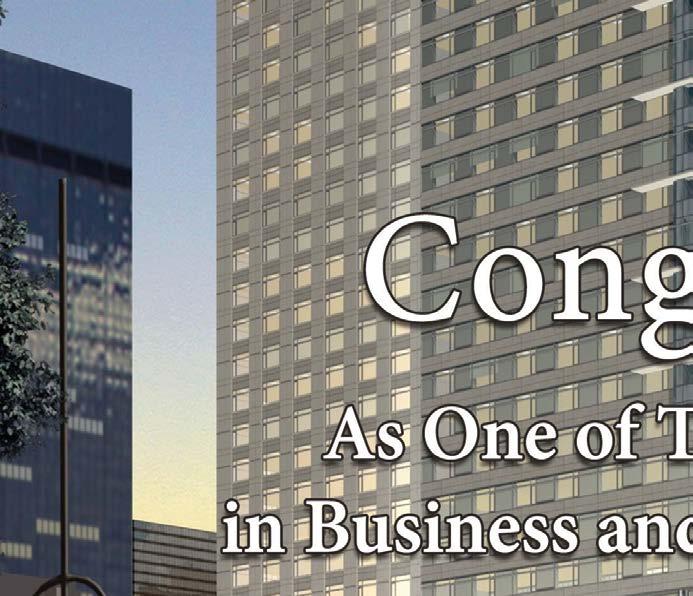


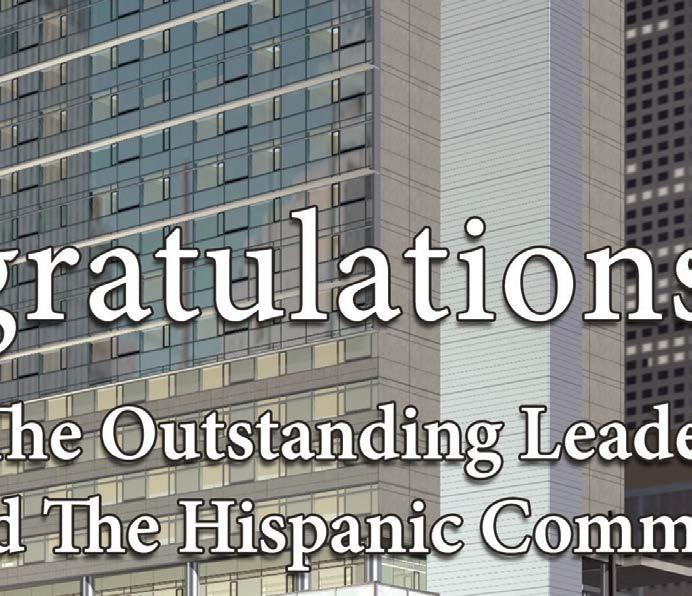





More than five years ago, Linda G. Alvarado was approached by Sol Trujillo, a founder of the Latino Donor Collaborative, to become a member. And she has since become one of the organization’s strongest supporters.
During her years of involvement with the organization, the Alvarado companies have financially contributed $150,000. Alvarado says she goes beyond dreaming; she takes action. And to her, that’s what makes the difference in change and progress of America.
anyone’s expense, she says. More important than any high-profile construction project, she wants to be known for her integrity as a CEO, wife, and mother of three.
“It’s important for young girls to understand and to be very careful that other people’s lack of vision does not become their blind spots.” When speaking to young women, Alvarado reminds them to stay focused on the many possible careers they could pursue and how they can get there. “Don’t let the conventional thinking of others distract you from believing in yourself and your ability to succeed,” she says.
“Even in math, when you multiply two negatives, you come up with a positive.”
Early in her career, naysayers challenged Alvarado, positing that she would never succeed because she was a Hispanic woman. In those moments, she said she would look at these attributes not as detriments but as benefits. “It would take perseverance in my attitude and in my aptitude not to quit—to keep learning and to focus my mind on the fact that if I multiplied these two negatives, it could be positive,” she says.
“If it’s never been done, that means it’s possible.” One thing Alvarado relied on throughout her career is considering all possibilities and listening to all perspectives. She says many miss a potential opportunity because it has never been done. “The words never and always seem to be opposites, but they are really the same,” she says. “Always doing it one way or never considering another idea means we will soon be history.”
“We have to hold the standard high, both ways.” Today, it might seem easy for Alvarado to rest on her laurels or revel in her successes, but she remains humble—an attribute that she believes is essential for all great leaders. “As we achieve success, humility us critical,” she says. “Humility is acknowledging that you didn’t succeed on your own. Even an accomplished leader needs to recognize that, whether at work or at home, it takes a team to succeed.”
WOULD 12% OF OUR ECONOMY.

People are often astounded by the enormous positive impact Latinos have on the US economy. They should be.
• America’s GDP change is more than 13% higher than it would be without the Latino contribution.1
• In recent years, if the Latino GDP were a country, it would be larger than India. 2
• Latinos will consume more than $1.7 trillion in goods and services this year. 3 And create more than two million jobs. 4
For even more eye-opening facts about this extraordinary group of American taxpayers, neighbors, soldiers, churchgoers and job creators, visit www.thepowerofall.us
Brought to you by the Latino Donor Collaborative. LDC is a group of Latino business leaders committed to a bigger, more prosperous US economy that includes and benefits everyone.
How Ana Valdez uses her global experience to strengthen the Latino Donor Collaborative
By Jonas Weir

ANA VALDEZ
EXECUTIVE DIRECTOR
LATINO DONOR COLLABORATIVE
AAt age ten, Ana Valdez already knew the power of marketing. Born and raised in Mexico City, she remembers a successful public service advertising campaign that promoted water conversation in the city, a positive cause that remains an issue in Mexico City and around the world. “That is when I realized that marketing and media have this incredible capacity to create such a big change,” she says.
Valdez has since turned that early experience with marketing into a successful career that has brought her everywhere from Geneva, Switzerland, to Madrid, Spain, to her current home in Los Angeles. With a marketing degree from Tecnologico de Monterrey and a master’s in international relations from Instituto Ortega y Gasset in Madrid, Valdez has held many prestigious marketing and communications roles at organizations, including Nielsen Mexico City, Banamex (now Citibank), the United Nations’ Commission for Human Rights, and the Clinton administration. Today, she heads two companies that she cofounded: Valdez Productions Inc. and The 650 Company. Throughout her entire career, however, she has always maintained a dedication to working for nonprofits and contributing to the greater good.
“My nonprofit life runs parallel with my career because I’ve always wanted to give back,” she says. “So, my professional life is acting as consultant at my companies, and my nonprofit life is acting as a consultant, too, but as a board member and volunteer.”
Currently, Valdez is the executive director of the Latino Donor Collaborative. The organization’s mission is to frame the US Latino story as an integral part of the American story, to advance an accurate portrayal and perception of the Latino community in America, and to be the voice of the economic impact that Latinos make to American society. With that mission, the LDC is the perfect setting for Valdez to use her years of marketing and communication experience to help the greater good. Here, she shares her insights to what it takes to be the executive director of the LDC and how the organization is changing the conversation about Latinos in the United States.
How did you get your start in marketing?
In my first job, I worked for Nielsen for four years in Mexico. I was one of the first women that they actually hired. It used to be a very male-oriented company in Mexico. That really marked my future professional life. Marketing is very important to me. I think utilizing media to create a change is important.
What skills have you developed that you think serve you best in your career?
Know your market from all of the different angles. Marketing 101 is know your audience, know your market, know who really want to affect, and then know how can you bring them what they need. That is probably the biggest lesson of marketing for me, and in the nonprofit world, it’s usually change that makes people’s lives easier, happier, and more fluid. So, utilizing media to create that kind of change—it’s really a pleasure of mine.
What is the most important lesson in leadership That you’ve learned?
Keep focused on the goal. Know what you want, first of all, and then keep focused on your goals and work hard. Focus and hard work—that’s what it’s about.
How has that lesson served you well in your career?
Well, for example, the main goal of the LDC is to rebrand Latinos and to create an image of Latinos that is accurate with the reality of who Latinos are. So, it is a constant job for all of us to remain focused on that because there’s so much that concerns Latinos.
Education is very important for Latinos as well as healthcare and, obviously, politics. There are so many issues that, if we tried to tackle all of them, we would never finish. There’s so much to do, but we continue to stay focused on creating research to show who Latinos are and to rebrand Latinos.
“I understand being in a country where immigrants arrive, but I also understand being an immigrant.”
of people that show decision makers in business the importance of including Latinos—for a better bottom line, for a better top line, for more of a market share, and for better competitiveness.
How has living around the world changed your perspective?
I was born and raised in Mexico City, and then I lived in Spain and then in Geneva, Switzerland. I have, of course, lived in the United States on and off, too. My experience internationally has been one of the biggest assets to understand the dynamics of the Latino community in the United States. I understand being in a country where immigrants arrive, but I also understand being an immigrant. That allows me to be the bridge the gap between the two parts, and that also allows me to understand the structure of this incredibly diverse country and the evolution of this diversity over the past forty years.
As you know Latinos were 9 percent of the US population in 1980. And now they are 18 percent. I mean they literally doubled the percentage, and this is an experience that makes us a very different community than anybody else around. We are the community that integrates the most, but we also are one of the communities that keeps their traditions in a more predominant way. So, my international experience has really helped me to understand the transition from all of the sides.
We hear so many negative things. We hear about tragedies on the US-Mexico border, and we hear about how Latinos have less opportunity. And as much as we would like to be part of all of these issues, we really have to continuously focus on our job, which is to create the numbers that show who Latinos are in this society and what they do for this economy.
Why did you initially become involved with the LDC?
It is an organization that has that same goals as I have, which is to improve the image of Latinos and their participation in media. And the LDC uses a fantastic argument, which is the economic argument. The LDC is not a grassroots organization; the LDC is a group
My husband happens to be a Latino whose family came here in 1520. So, I also have that incredible window to understanding people that feel Latino and act Latino in a lot of different ways, but that are 100-percent American because their families have been here for four hundred years.
The Latino community is also diverse in itself. For example, the LDC is a great mix of people with roots in Cuba, Mexico, El Salvador, Puerto Rico, Spain, etc. And I can find the commonalities to bring everybody together. That is really helpful. I probably wouldn’t have that talent if I wouldn’t have lived in Spain or if I wouldn’t have been born and raised in Mexico. I’m proud to serve this organization and truly believe in its mission.

LUIS PATIÑO
PRESIDENT AND GENERAL MANAGER
UNIVISION
LOS ANGELES
Luis Patiño bolsters the legacy of US Spanish-language media
By Jeff Silver
UUnivision was founded in 1955 in San Antonio, Texas, by Emilio Nicolas and his father-in-law. The city became the cradle of Spanish-language media at a time when many schools prohibited students from speaking Spanish and it was not uncommon to see signs in store windows that said, “No dogs or Mexicans allowed.” Since then, the network has become an undisputed powerhouse that remains true to its mission to inform and empower its audiences and to provide a voice to the voiceless.
In 2010, Luis Patiño, a seasoned media professional from Los Angeles, had the opportunity to manage Univision’s San Antonio market. It was an eye-opening experience for him as he learned about the company’s history and its predecessors, La Opinion and La Prensa. The experience culminated in meeting Nicolas. Patiño was fascinated by his stories about Univision’s evolution—how Nicolas went from struggling to convince local car dealers to advertise on KWEX to expanding the network and, eventually, going on to advocate for the Latino community in Washington, DC.
“Aside from being a history buff, I was very moved by seeing the emotional connection Emilio still has to everything he accomplished,” Patiño says. “I made a commitment to ensure that people know his story of innovation, empowering a community, and advocating for them.”
As president and general manager of Univision Los Angeles, Patiño supports the founder’s legacy by continuing many of the programming priorities that have been in place since the network’s beginning. The phrase “news you can use” still helps guide content, which includes information on issues important to the local community and perspectives that other broadcasters might overlook. Everything from specifics on immigration reform to new requirements for getting a driver’s license is a part of the network’s content.
Patiño explains that there are two pillars that guide such programming under the company’s award-winning Univision Contigo empowerment platform. The first is civic engagement, which includes resources on how to become a US citizen and
encourages audiences who already are citizens to vote. Univision Communications Inc. (UCI) has a strong legacy of promoting civic participation in an effort to ensure that, as Hispanics grow in numbers, their impact is felt at local and national levels.
The second pillar revolves around financial literacy and empowerment. UCI recognizes how Latinos today are a powerful and growing force in America’s economic life and how their prosperity is critical to the growth of the country. Representing one of the fastest-growing segments of the US population, Hispanic Americans own 4.2 million businesses that contribute $668 billion in revenue to the US economy. Los Angeles leads the nation and is home to 65 percent of Hispanic-owned businesses in California. What started with basic information on how to open a checking account and explaining what a 401k is has evolved into focusing on entrepreneurship. Univision develops content for both existing small business owners—like how to write a business plan, scale a business, or gain access to needed capital—and entrepreneurs.
These efforts are supported with on-air programming and through fairs and seminars that are presented in the community. POSiBLE L.A. is one such example. In 2017, the event provided thirty-eight workshops, thirteen speakers, and access to more than sixty organizations to more than five thousand attendees.
In addition to maintaining the company’s legacy, Patiño must also adapt to a new environment and new generations of viewers. He points out that a large portion of Univision’s audience includes, what he calls, “the 200 percent.” They are like his children—younger citizens who are both fully American and Latino. They live in both worlds, speak English and Spanish fluently, and have viewing habits that are guided by an acute sense of what they consider to be high-quality content.
“We have to adapt to younger audiences who choose not only what but also when and where they watch and listen to media,” Pati ño explains. “We also have to strike a balance and continue to serve the
tastes of all of our audience, who have demonstrated incredible loyalty and trust in us.”
That claim is borne out by studies that asked Hispanics what television shows they watch. A significant portion of respondents answered by naming Univision rather than individual programs. Other research revealed that approximately 85 percent of Hispanics surveyed exclusively watched Univision.
All of this comes at a time when Hispanics have been in the spotlight—both positively and negatively— on the political stage. Patiño is quick to say that this is part of an ongoing evolution that is independent of the party in power or any particular administration.
“For a long time, people in power have been aware of how large the Hispanic community is,” he says. “It’s only recently, though, that the we presented a powerful enough voting block that they feel the need to really pay attention to us.”
It’s a wave that will continue to grow. In fact, 65 percent of all eligible Latino voters are currently under forty-four years old.
A Los Angeles native, Patiño has the opportunity and the challenge to inform, empower, and entertain his hometown. With a population that is 50 percent Latino— including the largest concentration of Mexicans outside of Mexico City—it’s a critical market for Univision.
The city also represents the convergence of technology, Hispanic media, entertainers, and the community’s most prominent social media influencers. It also carries a tradition of many strong Latino civic and business leaders.
Patiño recognizes the stakes that all of these factors present, but he approaches the challenges on a very human level. He notes that maintaining the company’s mission also means addressing issues that are universal: healthcare, education, affordable housing, and financial empowerment.
“My experience has taught me that you can never go wrong by staying true to your core,” Patiño says. “We should never be afraid to keep advocating for our community and never stop being a voice for the voiceless. That’s what they need from us. That’s why we exist.”
Luis Patiño is very involved with the Latino Donor Collaborative, which is dedicated to reframing and advancing accurate portrayals and understandings of Latinos in America. Because he is passionately committed to helping to tell stories about “everything we are, as opposed to the common stereotypes that are everything we are not,” it’s a perfect fit for the organization and for Patiño.
“I want to be part of the narrative that changes the stories we tell,” he says.
Vanir’s Dorene Dominguez is creating a new normal for Latino leaders
By Will Grant
Dorene Dominguez isn’t afraid to say she was born to do this. As the CEO of the Vanir Companies, whose holdings include Vanir Development Company Inc., Vanir Construction Management Inc., and Vanir Construction Company Inc., Dominguez has successfully transitioned a company started by her late father into a diversified and multifaceted powerhouse that has done more than $23 billion in real estate business. And she’s done it by leaning into, not away from, the qualities that make her such a unique presence in her position. “As one of the few Latinas in a male-dominant industry, my past experiences have prepared me so that I can understand my uniqueness,” Dominguez says. “This has allowed me to help others and build a pipeline for other Latinas to sit at the table.”
Difficult experiences for a tightly knit family have helped hone Dominguez leadership qualities. “My father’s mentorship was priceless, and he involved me in the business at an early age,” she says. A bankruptcy and her father’s eventual passing tested both her strength and faith, and Dominguez says that how one chooses to utilize those kinds of life experiences can have long-lasting impacts. “Bankruptcy taught me skills of workouts, survival, and negotiations,”
Dominguez says. “Tough lessons helped me build my skill set so that I could mitigate difficult situations and never repeat them.”
Her father’s death also provided Dominguez with a sense of rising to the challenge when others depend on her. “I have over four hundred employees and seventeen offices throughout the United States, and they all depend on me, “Dominguez says. “I needed to show up and take charge.”
At Vanir, Dominguez says she’s able to harness many of her past experiences and use them to benefit both those within the company as well as their clients. “My role as CEO is one of empowerment and mentorship, where we take care of each other in a family-oriented environment,” Dominguez says. “Vanir is the best in the industry, so it is important that we retain the best.”
Dominguez says that while Vanir’s culture is ever-evolving to meet the needs of its clients, there are strong bedrocks of company that remain firm. “It is important to complete goals set and to promote a culture where our core values include loyalty and excellence,” Dominguez says.
Dominguez believes her story can be valuable in Vanir’s approach to matters of diversity and inclusion. “My background provides a unique perspective
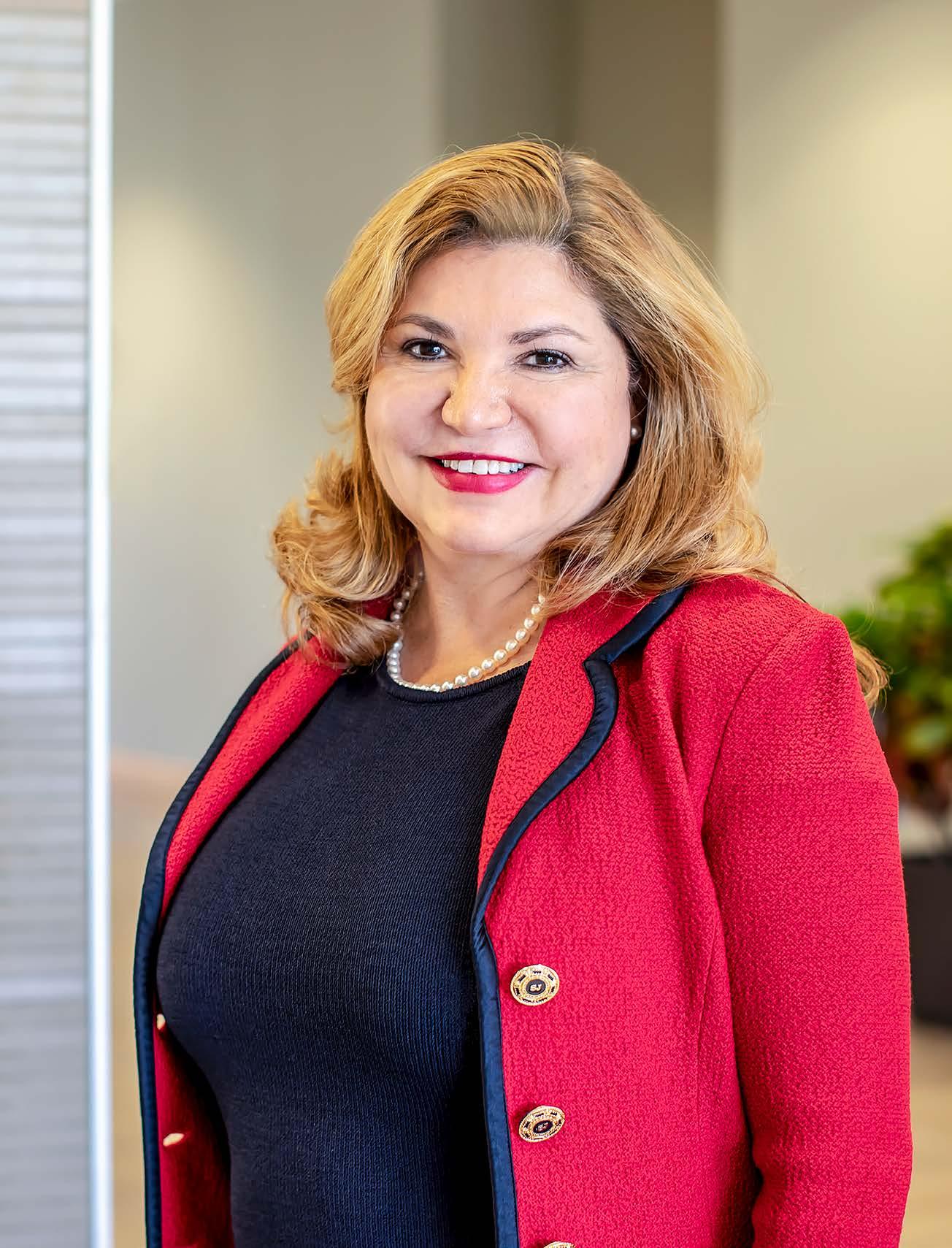
Dominguez is an active member of the Latino Donor Collective.
“LDC brands the Latino community in a positive manner, makes the argument for social mobility in the Latino community, and promotes the benefits of engaging Latinos in business,” Dominguez says. “The LDC advocates on behalf of vulnerable Latino businesses who might not otherwise have support systems.”
• Negotiate from a position of strength.
• Negotiate a win-win.
• Know who you’re negotiating with. Find out their likes, dislikes, family, and character— what’s important to them.
to clients and problem-solving solutions to the organizations I represent,” Dominguez says. “I believe the same of our workplace.”
She believes Vanir’s diverse workforce provides for diverse perspectives, and the more ideas available, the better the solution will be. “At Vanir, we elevate new and innovative ideas and embrace our diversity,” she says. “It’s a win-win-win.”
Leadership is not a concept that comes lightly to Dominguez. In fact, she was ready for it early on. “I have never questioned the fact that I was born to lead,” Dominguez says. “In high school and college, I gravitated towards the leadership roles and got them.”
That passion for leadership has landed Dominguez roles as the head of countless boards, some where she felt more prepared for than others. “I once served as chair of the California State Board of Geology and Geophysics,” Dominguez says. “I did not have knowledge or prior experience in the subject matter, but I was able to provide unique problem-solving solutions that led to my being unanimously appointed as chair.”
Dominguez says that her direct style tends to accrue buy-in quickly and may help explain why she tends to wind up as the chairperson of so many different organizations. “My leadership style is handson, strategic, and compassionate,” Dominguez says. “I listen, empathize, and problem solve.”
Dominguez has advice for those in leadership positions. “Have a vision, a plan, and embrace loyalty,” Dominguez says. “The right talent in the company that is loyal to your vision will provide the integrity needed to move your vision.”
Leading firmly does not mean leading blindly, Dominguez asserts. “I learn from what everyone contributes. I listen to suggestions and implement best practices,” Dominguez says. “Leadership is about learning and using this knowledge for growth.”
That growth includes a push to promote Latino philanthropy through a nonprofit called The Dominguez Dream, in honor of Vanir’s founder. The foundation is dedicated to promoting STEAM (science, technology, engineering, arts, and mathematics) education in predominantly Latino Title I schools. To date, the organization has benefited more than 350,000 students.
While her story may be unique, Dominguez is intent on making her story less of an outlier. She sees philanthropy as a crucial step in helping spur this transition. “We unite as one, nonpartisan voice for our community,” Dominguez says. “This is powerful, and it will bring positive change.”
MicroTech’s founder, Tony Jimenez, hopes to convert a love of math, science, and business into a billion-dollar enterprise
by Valerie Menard
FFor some children, the proverbial lemonade stand can amount to more than just a fun summertime activity; it can spark an entrepreneurial fire that carries forward to adulthood. Tony Jimenez—founder, president, and CEO of MicroTech, a technology innovator focused on telecommunications and network system integration—wanted to open a business from a very early age. But he didn’t figure that he would also profit from his natural love of math and science.
“I was an entrepreneur from a young age,” he says. “I sold lemonade, delivered newspapers, washed cars, and cut lawns. I was constantly looking for ways to make money.”
Born in the Portsmouth Naval Hospital in Virginia, Jimenez is the middle child of Ray and Cecile Jimenez, his father of Puerto Rican descent with a little Cuban on his mother’s side. His father’s twenty-year career in the Navy took the family to several states as well as to Spain. Growing up on a Navy base, however, didn’t expose him to many Latino entrepreneurs, so his early mentors were teachers and coaches.
His favorite subjects in school were math and science, but he opted to test out of them in college. Looking back, he wishes he had taken more courses in STEM. “I kind of did them a disservice,” he says. “But the primary reason that I didn’t pursue a math or science degree in college was that I wanted to study something I could use in any occupation. I also thought I wanted to be a counselor, so I studied that as well, and I have relied on the counseling skills I learned more than any others.”
Shortly after graduating from high school, he decided to enlist in the Army, serving for twenty-four years. After two enlisted tours on active duty, however, he received an Army active-duty ROTC scholarship and earned a bachelor’s degree in business management from St. Mary’s University in San Antonio, Texas. He also revisited the sciences when he pursued a master’s degree in acquisition management from the Florida Institute of Technology in Melbourne, Florida, and a master’s degree in computers and information systems from Webster University in St. Louis.
His greatest preparation for business came from his years in the military, where he held prominent

positions before retiring, including principal advisor on acquisition issues to the Secretary of the Army, program manager for business enterprise systems (PM BES), and program director for eArmyU. After retiring from the Army in 2003, he landed his first civilian job at Unisys, where he served as director of information technology enterprise solutions. But within a year, he was inspired to start MicroTech. One night in 2004, he and an attorney friend sat down in his kitchen to draw up a business plan. Jimenez then took the plan to investors who he knew would give him the space to build the business and provide the knowledge and seed money he needed to start MicroTech.
“They were passive partners, but I was able to leverage their experience” he says. “They had been
in business, and I realized that although they didn’t have all the answers, because no one does, they knew more than enough to be phenomenally helpful.” Being one of only a few Latino-owned businesses involved in IT at the time did present challenges like fighting off stereotypes, Jimenez says. But his years in the Army and Washington, DC, also created important friendships and formed key alliances that helped win vital government contracts, and it wasn’t long before the business took off. “I was the first employee, and then I blinked and there were one hundred, and then I blinked and there were six hundred,” Jimenez says.
But there also came a time when he saw the next generation of IT turning more heavily toward cloud, network, and cybersecurity, a different direction from where MicroTech was headed. So, he took a step back and chose to refocus his business plan and rightsize the company.
“I was headed where opportunity was taking me and not where I thought I needed to go to stay relevant,” he says. “I began selling off parts of the business that no longer complemented my change in business strategy to get the capital I needed to reinvigorate and refocus the business.”
During the rightsizing process, MicroTech employee numbers dropped to fifty. Although this was not his original intention, he says that he was able to keep the strategic pieces of the business he needed to build a foundation for the kind of sustainable growth he did not have the first time around, which included a little bit of IT, telecom, and cutting-edge network solutions like cloud integration, managed services, and cybersecurity. Today, he’s on track to grow MicroTech into a billion-dollar company in five years. It’s one of only ten contractors awarded a Federal Enterprise Infrastructure Solutions (EIS) contract focused on network and telecom modernization and integration, which amounts to about $50 billion in contracts spread out over fifteen years.
Inspired by the motto, “Luck is what happens when preparation meets opportunity,” Jimenez believes that opportunities arise every day and that preparation in anticipation of opportunity is a big part of being lucky. But if the investment in time and energy has not been made, it might be difficult to seize the moment.
“In the end no one is going to know or even care about your failures because in business all that matters is that you get it right once. After that, everyone can tell you how lucky you are. At the end of the day, you can be lucky,” he says. “But if you’re not willing to put in the necessary sweat equity, you won’t be as lucky as you could be.”
Like many successful entrepreneurs, MicroTech founder Tony Jimenez believes in giving back to his community. He has served on multiple influential boards, including the US Department of Commerce National Advisory Council, the US Hispanic Chamber of Commerce, George Mason University, Henry James College, the US-Mexico Chamber of Commerce, the Harvard Journal of Hispanic Policy, the American Film Institute, the Partnership for a New American Economy, and the Board of Directors at the National Capital Area Council of the Boy Scouts of America.
He’s also played an important part in helping them to become the great organizations they are today.
In 2010, he and a group of influential Latino leaders founded the Latino Donor Collaborative. With a mission of elevating the Latino community through information and advocacy, the group set out to debunk stereotypes, particularly on its website. “Our idea was to create awareness by collecting a group of successful people and focusing their attention, efforts, and money toward causes near and dear to the Latino community,” Jimenez says.
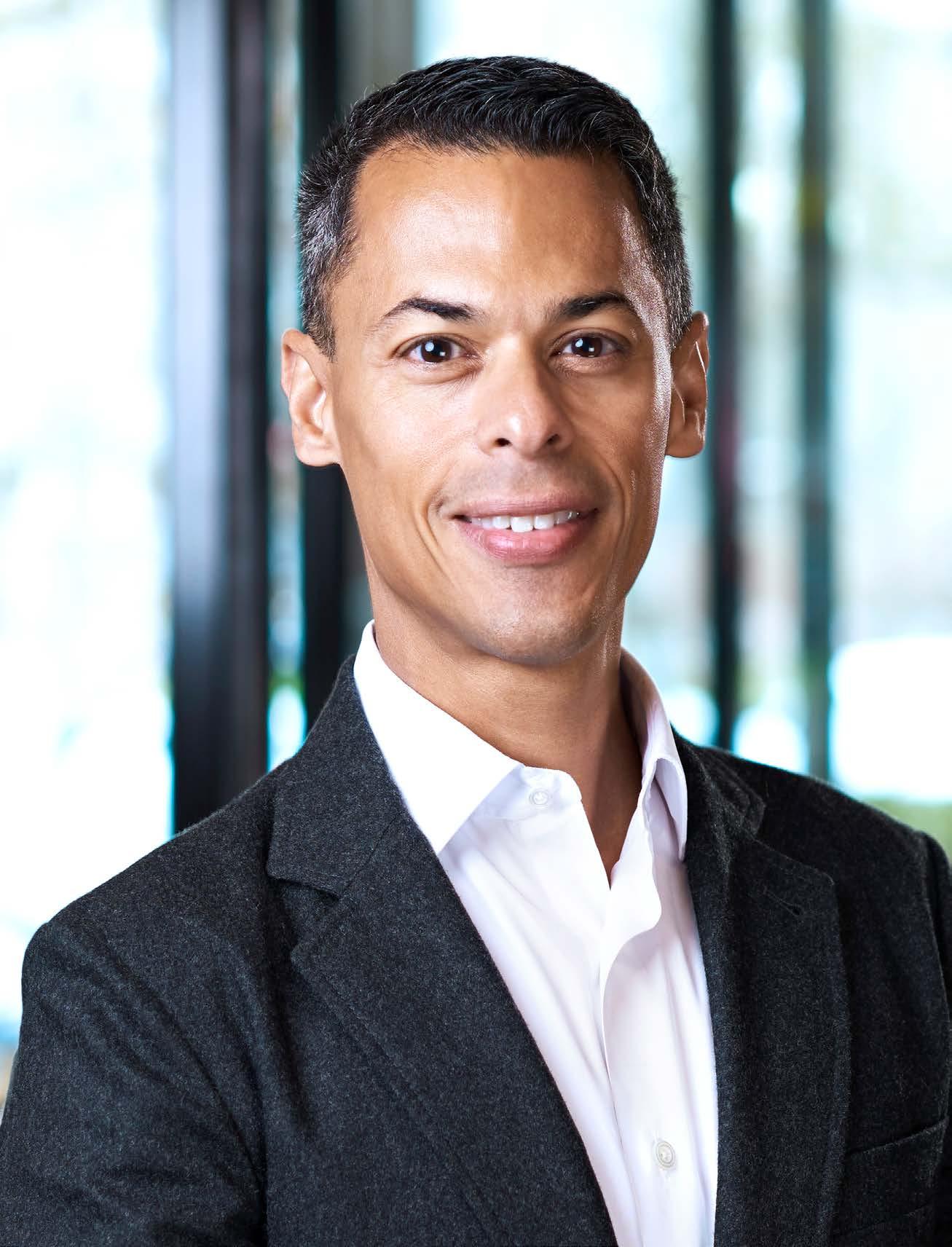
Ted Acosta made a risk when he pivoted from a successful career in law to overseeing risk management in the Americas for EY. Now, with a global perspective, he’s helping the company manage its own risks.
By Randall Colburn
It didn’t take long for Ted Acosta to know he’d become a lawyer. “I’m very logical, and I also love the spoken word and the written word and engaging in healthy debate,” he says. “I knew the law would be a good profession for me to pursue.”
What he didn’t realize until he began practicing was how much he also wanted to dig into the complexities of running a business. At the outset of his career, he served as a white-collar and regulatory attorney both in private practice and with the US federal government. Then, sixteen years ago, EY (Ernst & Young) gave him the opportunity to weave everything he’d already learned into the breadth of business opportunities that reside within its global reach.
In 2001, Acosta joined EY as a principal in charge of fraud investigation and dispute services (FIDS). Since then, Acosta’s climbed the ranks of the Londonbased multinational professional services firm, which is considered one of the “Big Four” accounting firms. Now, he serves as the Americas vice chair of risk management, where he’s responsible for overseeing compliance efforts and educational support for EY’s employees. He’s also chairs the EY Americas ethics board and sits on EY’s global risk management executive committee and the global practice group, in addition to other roles.
He’s currently helping to shepherd a number of initiatives, many of which are based around the concept of education. It’s hard, Acosta says, to ingratiate yourself to employees who often view risk management professionals as, he says, impediments who operate off a number of rigid checklists. That’s why Acosta has instituted modern, employee-friendly solutions to ensure that staff aren’t just complying with EY’s regulations but are actively working to ask questions and do better.
“While the staff at EY is the cream of the crop, we still understand that our various policies and procedures can be a lot,” Acosta says. “You might not know everything at every single moment. What we want to do is provide a solid foundation that makes it easy for people to raise their hand and ask a question.”
The hardest part might be, after all, making an employee comfortable enough to ask questions. That’s why Acosta’s helped roll out a mobile app that he says is specifically designed to place any information an employee might have about risk management at their fingertips. His team also provides what he calls a “white glove service” for employees, a desk where they can get answers right away regarding policies and procedures.
In his role with the Latino Donor Collaborative, Ted Acosta serves as a director, which he describes as having a conversation about demographics.
“The vast majority of Latinos are USborn,” he says, “and you cannot ignore the fact that Latinos are changing the face of American campuses and the labor force, as well as consumer preferences and spending habits.”
By producing data-driven studies, the LDC is unceasing in its efforts to help the country grasp the sizable economic contributions made by the Latino population. “There are a lot of organizations working for diversity and inclusion, which is extremely important and vital to any organization working in the United States, but also vital to our economy are organizations focused on ensuring the proper representation,” Acosta says. “That’s what the LDC provides.”
“We are training people across our entire Americas region on everything they need to know to identify risk and ask the proper questions,” he says.
One of the great difficulties of Acosta’s job, however, is in making himself an expert on the myriad types of risk that exist in EY’s business, which is spread across numerous sectors and continents. Of course, this is also a huge appeal of the job.
“If you haven’t been exposed that much to other countries or other ways of seeing things, it can be very difficult to play in a global marketplace,” he says.
The benefit of traveling as much as Acosta has—having served a number of Fortune 500 companies in more than fifty countries—is that, regardless of the intricacies of a particular policy, he’s learned how to recognize the ways in which a particular culture can impact the lens through which a colleague is approaching an issue. By doing so, Acosta can now adapt his own perspective from issue to issue, thus broadening his own approach to risk management.
On the other hand, he also sees many commonalities between himself and his colleagues in Africa, Europe, Asia, South America, and elsewhere. “Everywhere I went, I encountered colleagues and clients with the same goals and objectives,” he says. “When it comes down to it, we all share very similar aspirations and dreams.” As such, he’s come to view the world as “one great human village.”
Something similar can be said for his relationship with his colleagues at EY. When he arrived, he loved the opportunity to bring his own skills in law and law enforcement to an office comprised of people with backgrounds in finance, economics, and a number of other fields. The breadth of expertise within EY’s many offices reflects the breadth of its work, which has allowed Acosta to dabble in fields like robotics and cybersecurity—areas he likely would never have found himself in had he continued to work in his niche at a private practice.
The company’s cultivation of a diverse workforce is equally important.
“Ted is deeply committed to creating an inclusive workplace environment, where all our people feel a sense of belonging and are respected and appreciated for their differences,” says Karyn Twaronite, EY’s global and Americas diversity and inclusiveness officer.
It’s not only the company’s diversity programs that he values, but it’s also the genuine sense of belonging that he feels from the office culture, not just in America, but also abroad.
“I walk into my EY office in New York and feel a warm welcome,” he says, “but I can also walk into the EY office in Shanghai, in Moscow, in Buenos Aires, and in San Francisco and feel the same. It sounds very pie-in-thesky, but the culture here transcends geography.”

Let’s use our voices to create new ways to build a better working world. To learn more, visit ey.com/differencesmatter
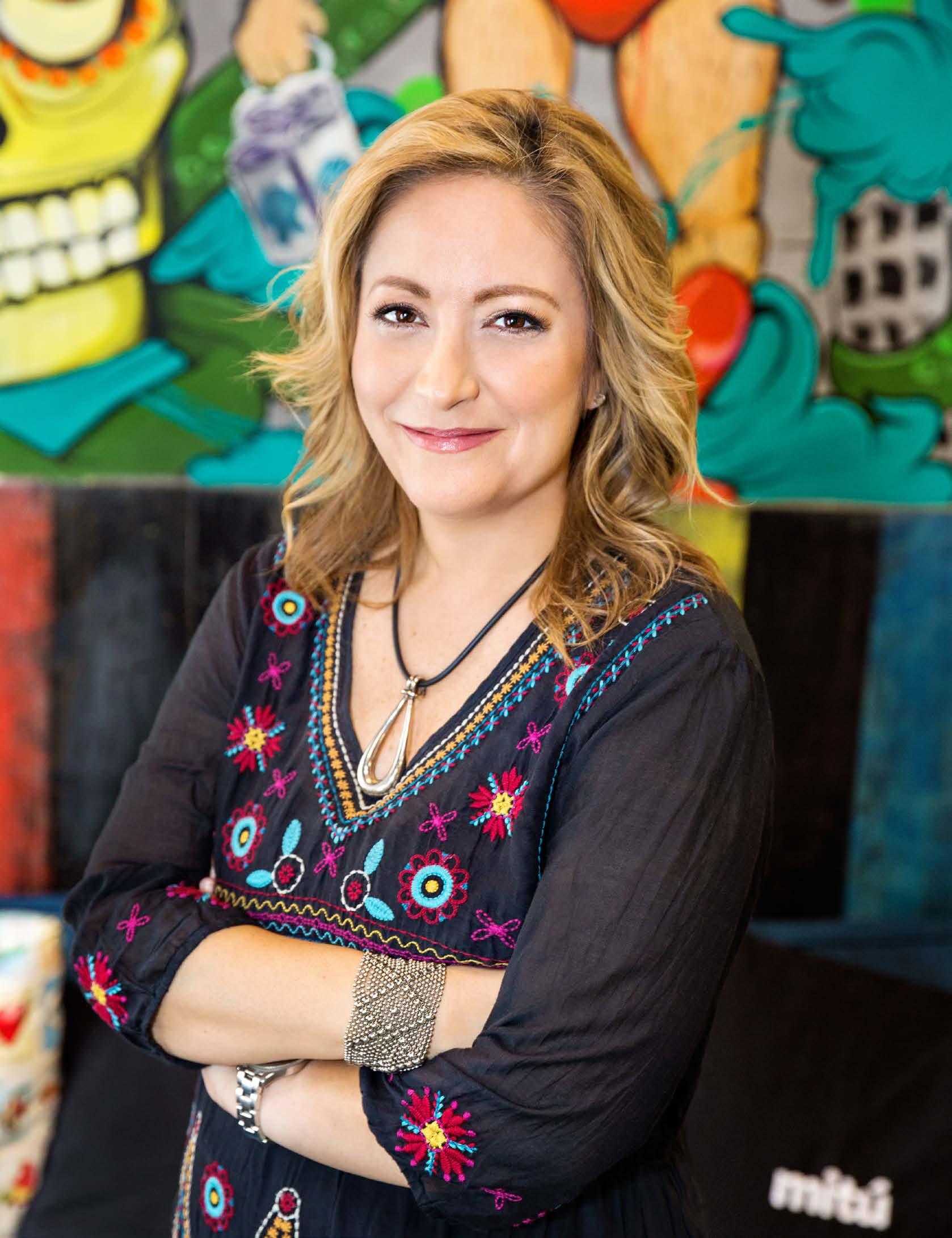
Beatriz Acevedo finds unique ways to share the Latino narrative
By Valerie Menard
CChild prodigies might not share the same talent, but they do have one thing in common: they know what they want to do when they grow up. At eight years old, Beatriz Acevedo—who cofounded digital media company MiTú and Fundación Acevedo—was hired as a radio disk jockey for a local station in her hometown of Tijuana, Mexico. Apparently the young Acevedo had something to communicate, and she’s still talking to this day.
Born in Tijuana, Acevedo is the eldest of two children born to Conrado, an attorney, and Beatriz, a psychologist. She graduated from the University of San Diego with a degree in marketing and communications and set about building a media empire.
Having recently resigned as president of MiTú, the Emmy-winning Acevedo took a moment to share her thoughts and plans with Hispanic Executive
You’ve been working in media since you were eight years old. How has the industry changed?
A lot has changed in that industry with the digital revolution. Music streaming services with personalization were not even a wild dream when I was a young girl. Now with services like Spotify, Pandora, and Apple Music, all of that has changed. This generation is used to having anything when they want it and how they want it. But I think that the best thing that digital has brought for our underserved communities is equal access and opportunity in having our voices heard.
Before digital, you had to wait around for an opportunity, and that opportunity might never come. You were literally at the mercy of someone— who did not look like us or have our background— to decide if you were worthy enough of a shot, and that, to me, is crazy.
Who did you consider a strong leader as a child or young person?
My dad was my idol. He came from nothing and became one of the most iconic figures in public service and philanthropy. When they say, ‘All you need is one person that believes in you to succeed in life,’ that was my dad, and I looked up to him every day of my life for forty-seven years.
What traits do you believe are essential for strong leadership?
To be a good leader, you must have empathy, you must be the best listener, and you must care fiercely about culture. To be successful personally, the most important traits are passion and perseverance, even more important than talent. I am a poster child for this as I was not born with one particular talent, but I hustled harder than anyone every single day since I was a kid. That is what has made me who I am today.
You’ve dedicated your life to creating opportunities for Latino youth in an effort to empower their voices and to diversify and influence culturally relevant depictions of Latinos in media. What have you accomplished so far?
I think it all starts at home, and I can proudly say that my thirteen-year-old twins, Isabela and Diego, are true representations of a bicultural and bilingual Gen Z. They are proud Latinos who understand very well what it means to be born into privilege and what responsibilities they need to carry in our community and in the world.
At work, I am very passionate about career development for female Latina leaders, so any opportunity I have to bring them into to the

boardroom or into my most high-level meetings with other CEOs, founders, or investors, I do it.
Finally, I’m incredibly proud of a program I created while I was at MiTú that is an accelerator mentorship program to train and open doors to the next generation of Latino storytellers. We constantly hear that Hollywood can’t find the talented Latinos, and I can assure you that they exist if you look.
Why did you become involved with the Latino Donors Collaborative?
I was invited to speak at one of their conferences a couple years ago and met Ana Valdez, Sol Trujillo, and Herb Scannell for the first time. I loved what the group was all about and what it stood for. It was so close to my own mission for equality and authentic representation of who we are—not as charity but as good business.
Is there a particular LDC initiative that you would like to pursue?
I wrote an article about Latinos being the blind spot of America and how the mainstream economy is in our backyard. I used all the robust data the LDC has to prove how wrong the perception of who Latinos are in this country is and what an extraordinary economic power they are when you look at their GDP. I would
love to expand on this idea and produce a full-length documentary about it.
You recently resigned as president of MiTú—a company that you founded. What do you see as your legacy?
My professional legacy is inspiring others as a passionate and proud Latina leader that encouraged them to use their voice and energy to fight the good fight for representation, for equality, and for authenticity in media. Personally, I hope I leave a legacy of being a good human. That is the best I can aspire for and strive to be.
As an entrepreneur, what has been your greatest challenge and reward?
My biggest challenge has been not trusting myself more and speaking up louder when I felt things were not right.
My biggest reward was finding my voice and purpose in life and opening my eyes to all the work we need to do as a community to create real change that transcends generations to come.
What are your future plans?
I know broadly that I want to be a louder voice for my community, that I want to continue my work with my accelerator, and that I want to contribute to build a pipeline for Latino leaders in a bigger way. I feel incredibly blessed to already have options and offers, but this next decade in my career will be pretty defining when it comes to my personal and professional legacy.
So, I want to give it the time it deserves to decide how can I best serve and make a bigger impact in my community.
At New American Funding, Patty Arvielo opens the door to homeownership for families across the country
By Valerie Menard
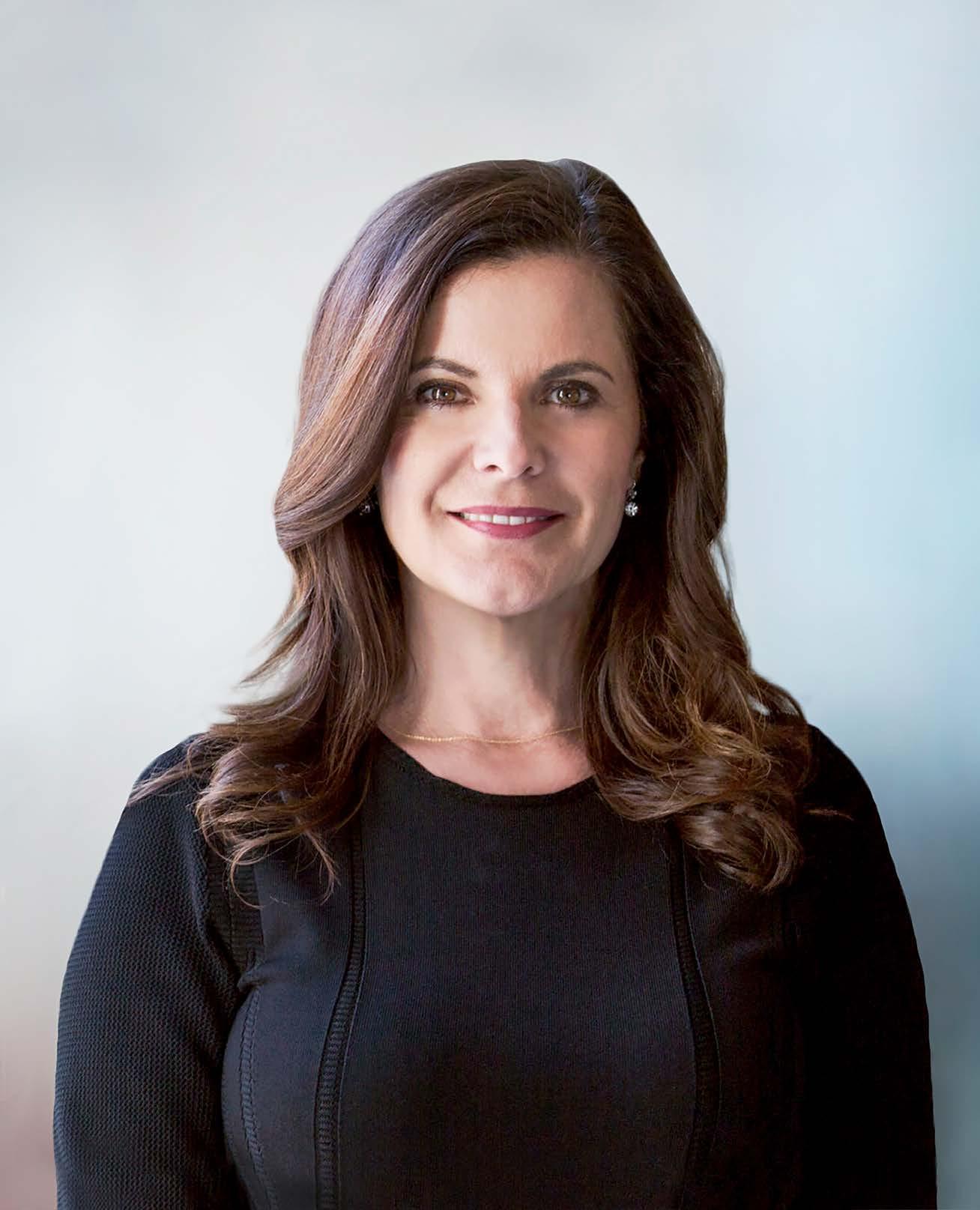
PATTY ARVIELO
NEW AMERICAN FUNDING PRESIDENT
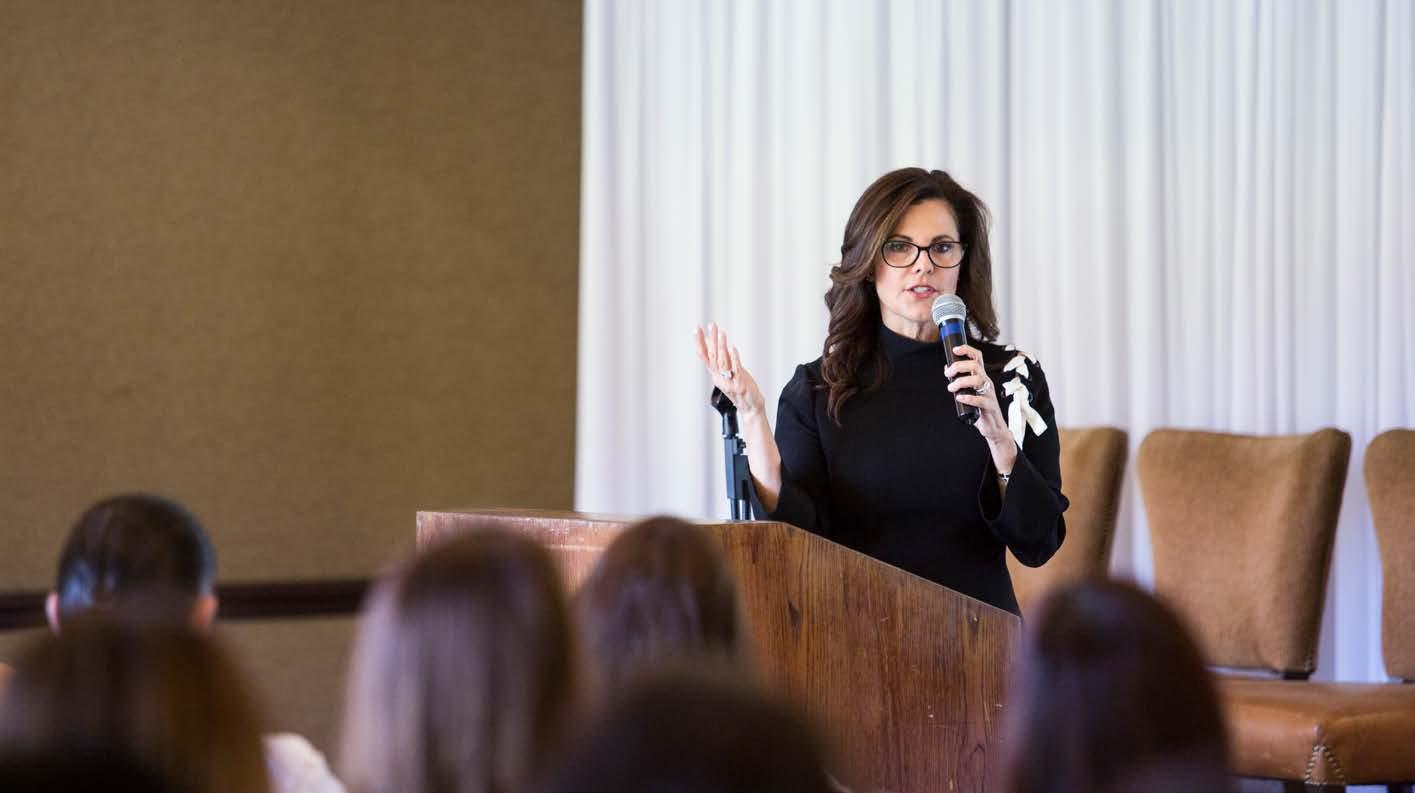
IIt’s been said, “Father knows best.” But mothers also have amazing intuition, and abuelitas can be prescient. Despite the economic challenges her family faced, Patty Arvielo, president and cofounder of New American Funding, knew she was destined for leadership, inspired her grandmother Margarita and encouraged by her husband, Rick.
“I was the first grandchild and was seen as a leader, especially by my nana,” says Arvielo. “She could see that I had leadership qualities. She once told me, ‘You’re going to buy me a house!’”
Little did she know how prophetic those words would be and that one day Arvielo would cofound a mortgage company focused on lending to traditionally underserved communities.
“We have 165 branches nationwide, funding approximately $1 billion in home loans monthly,” she says. “We’re the largest in Latino lending by a large percentage. Our demographic keeps growing and will continue to grow.”
The daughter of an American father from Iowa and a Mexican mother from Mazatlán, Mexico, Arvielo admits that she rarely felt the bicultural conflict some Latinos experience.
“My father’s family never took an interest in us, so I was raised to identify with my Mexican side,” she says. “There’s a difference between being born in a Latin country versus being raised Latino, like I was. Our culture runs deep. It’s huge, and that’s why we’re a force to be reckoned with.”
The oldest of three children born to Jim and Carmen Golay, Arvielo spent her formative years with her parents and younger brother and sister in South Gate, California. She remembers early experiences with discrimination, particularly when the family tried to rent an apartment and the landlord refused because he considered her parents a mixed-race couple. Her mother eventually won him over, and he relented.
“We became his favorite tenants because we were responsible and kept the place clean,” Arvielo says. Her father was a metal scrapper, and her mother worked as a maid and eventually opened a cleaning business. The family would move to La Mirada, California, when her parents bought their first house.
“My mom and a lady from Chile started the business, and even though my mom would sometimes clean my friends’ houses, I felt proud because she owned her own company,” Arvielo says.
At age twelve, she started working to help support the family. At age sixteen, she found a better-paying job that would set her on a professional path, though it was not the one she had intended.
“I thought I would be a dental hygienist because all the women in the dentist’s office were hygienists, so that’s what I was looking to do; I saw a working woman and thought I could do that.”
She found work producing credit reports for TransUnion. From this experience, she moved on to Countrywide Home Mortgage, where she trained to become an entry-level loan set-up officer. Within eighteen months, she was promoted to branch manager and later to assistant vice president, where she served for eight years. She refers to this experience as her “college equivalency.”
After several years, she met her husband, Rick, and they launched New American Funding together.
Raised to give back to her community, Arvielo found that she could do that by making homeownership a reality for many Latinos who might otherwise not make the attempt. While some say Latinos don’t avail themselves to banking services, Arvielo sees three barriers for them: a lack of Latinos in banking who model for others, access to capital, and knowledge.
“We lack professionals that mirror our community,” she says. “It’s so important to build companies that are diverse and inclusive. That’s a secret sauce at New American Funding. Anyone can build a diverse workforce with inclusive leaders at the top. I can build a large, diverse sales force because I’m Latina. I understand what they need.”
Throughout her career in mortgage lending, Patty Arvielo, president, New American Funding, has found support and inspiration from Latino nonprofit organizations, particularly the National Association of Hispanic Real Estate Professionals (NAHREP). She eventually served on its board. Her work with NAHREP led her to another organization, the Latino Donor Collaborative (LDC), a nonprofit established by Latino leaders to promote an accurate narrative about the contributions of US Latinos.
“NAHREP was a synergistic fit; it empowered me,” Arvielo says.
“With the LDC, I met Latino leaders outside my profession who were as—or more—successful than I was. It intimidated me and pushed me to the forefront because we were likeminded individuals.”
She’s passionate about the group’s mission and the importance of showing the value Latinos bring to the United States. She also launched Thrive and Lead, a three-month mentorship program, where she mentors other Latinas.
“This is what my future looks like: advocating for Latinos in this country, mentoring Latinas, and preserving Mexican American history,” she says.

In the business arena, the Salazars complement each other—creating legacies through their familyowned company, Central Street Capital. Angelique Salazar-Moyer tells us how working with her family has made her the successful businesswoman she is today.
By Olivia N. Castañeda
IIn August 2004, Angelique Salazar-Moyer started from the bottom as the receptionist answering calls from 8 a.m. to 6 p.m. Now, she’s here as the vice president of operations for Central Street Capital, doing what she does best: operations and customer service. The thirty-three-year-old wife and mother of two works for her family-owned business and adds to the mix her entrepreneurial spirit. In fact, alongside her husband, Kyle Moyer, she owns and operates Bogey’s Beer and Wine, a high-end liquor store, the award-winning U Lucky Dog Daycare & Boarding Facility, and the 2018 Diner’s Choice award-winning Crafty Fox Tap House and Pizzeria.
Based in Denver, Central Street Capital is a privately owned investment-management firm that focuses on more than fifty entities, including real estate, healthcare, student housing, multifamily apartments, and the natural food industry. The company’s executive team is composed of the family tree: Rob Salazar, SalazarMoyer’s father, is the founder and president and is known as the idea man for his brilliance. Lola A. Salazar, her mother, is president of the Salazar Family Foundation. Isiah Salazar, her older brother, is the vice president of development and is known as the developer. And Salazar-Moyer is known as the operator.
“Each person has their own niche. You don’t need fourteen chiefs. You need one chief for each division, and we’ve really excelled at that,” says Salazar-Moyer, revealing the family’s successful strategy in working together day-to-day. “We’re smart enough to know what we’re good at and what we’re not good at. That’s really important when you’re working with family.”
Should any conflict arise, communication is key, whether in person or via email. The importance of the matter in any relationship is to get the words out, Salazar-Moyer advises. But the Salazar family has always been a tight family unit. Conflicts or work issues aren’t dragged home at the end of the day. The family spends quality time every Sunday having dinner together with Salazar-Moyer’s family and her brother and his wife and two children.
When Salazar-Moyer was in the fifth grade and her brother one year ahead, their mother left her school teaching job to dedicate herself to raising her children while their father built their current
“It is truly an honor to go to work everyday, and it doesn’t ever feel like work.”
empire. It boggles Salazar-Moyer’s mind, she says, realizing how much her father worked during her youth because she never felt his absence. Her father dedicated quality time to the family, making sure they felt loved, special, and important by including his children in business discussions—by asking them their opinions on acquisition bids, for example. “My mom’s job was making my brother and I the best humans we could be,” she says. “My dad would make us feel equal, and I think they did a very good job at that.”
Salazar-Moyer began working in the family’s business while attending college at the University of Colorado, Boulder. The biggest benefit of working for her family-owned company were the opportunities that arose while she was so young. She received her bachelor’s and learned all about business directly from her father.
Rob Salazar is a successful business owner, a graduate from Adams State University in Alamosa,
Colorado, which he attended because it was the only school that offered him a football scholarship. He started his career as a certified public accountant and formed his own CPA and consulting firm at age twenty-six. He also managed and owned nursing homes prior to the founding of his current company today. “I am literally the spitting image of my dad, and I love that,” Salazar-Moyer says. “I love that I sat in his office and learned, learned, learned.”
Salazar-Moyer shares her father’s wisdom. “No matter what you have or how successful you are, you are just a few decisions from having nothing,” she says. “Business decisions and personal decisions can go totally the wrong way. But if you are thinking, thinking, thinking, then you’ll be ok.”
She applied her business acumen to the first thousand-bed student housing apartment project Central Street Capital developed, The Regency: Student Housing Community, which was the first student housing development to open in Denver specifically for the Auraria Campus in Denver. She was the project’s owner representative from 2005 until 2013, during which time she had her first born. “It was exactly what I wanted to do,” she says. “It was fast-paced, and it grew me into the person that I am today.” Then in 2006, with her brother, she formed and oversaw the food service company for The Regency, which she says was a stepping stone to what she’s doing today.
The ultimate goal for the Salazar children is to be successful and happy, to fulfill their lives and their children’s lives, and to continue building the foundation of their parent’s legacy, a legacy with the mission of providing support to Denver’s educational institutions. The Salazar Family Foundation supports The Denver Foundation, Escuela de Guadalupe, Mi Casa Resource Center, and other organizations to further the success of Denver-area students. The foundation recently donated $10 million to the University of Colorado at Denver.
“It is truly an honor to go to work everyday, and it doesn’t ever feel like work,” Salazar-Moyer says. “I’m literally coming to see my family, do what I love, and see what they’ve built and be a part of that.”
The Latino Donor Collaborative had its first inaugural meeting in Washington, DC, in 2010, and Angelique SalazarMoyer was there representing her father, Rob Salazar, who couldn’t make it. She recalls sitting at a small table with the founding members of the organization. Since 2011, she has been a board member. The founders of LDC not only wanted Rob and Lola A. Salazar to be part of the organization but their daughter as well. During her years as a member, Salazar-Moyer has attended the national retreats and cohosted the retreat in Denver, and her family has contributed more than $100,000 to the organization.
In a season of highly divisive rhetoric, Roel Campos is contributing to Latino pride and helping to reunite Americans
In a recent interview, Roel Campos was not happy. The latest news cycle contained another round of political rhetoric describing Latino immigrants as criminals “infesting” the country.
Campos pointed out that there are about 47 million American Latino citizens today. The vast majority work hard and are law abiding. Importantly, Latinos spend about $2 trillion a year and greatly boost the economy. “This rhetoric demonizes all Latinos and confuses the public,” he says. “It explains why bullying and hate crimes against Latinos are on the rise.”
So, Campos is committed to helping educate the public about the reality of the Latino community.
“I believe that if the American public understands who we are and the contributions we have made to the nation, we will eventually become a more united and more prosperous country,” he says. This passion has led him to be a part of two organizations whose
By Jeff Silver
missions include changing the perceptions and stereotypes of American Latinos: the Latino Donor Collaborative and Smithsonian Latino Center.
Campos was born and raised in a Mexican American working class family in the Rio Grande Valley of South Texas. Campos spoke only Spanish and did not know a word of English when he started first grade. His father worked several jobs at all times to make ends meet. “My father taught me that hard work was essential and noble,” he says. When he was growing up in the 1960s, there were no local role models in business or the professions, and no mentors.
“My parents were not educated,” he says, “and a Latino kid like me had to pursue his dreams mostly on his own—with intense focus and hard work.”
Campos attended the US Air Force Academy, earned an MBA at the University of California at Los Angeles, and served as an officer for five years. After

his military service, he graduated from Harvard Law School and later became a federal prosecutor in Los Angeles. At one point, he left law practice and joined a group of partners who operated a broadcast company that they later sold. Thereafter, Campos was recruited and appointed for two consecutive terms as the first Latino commissioner on the Securities and Exchange Commission under President George W. Bush. Campos received high marks for his work at the SEC and was viewed as bipartisan and creative in fashioning policy that both protected investors and enabled the financial industry to provide better services.
Campos is currently a partner at a major Wall Street law firm Hughes, Hubbard & Reed, where he is chair of the securities enforcement practice. Campos is also one of a handful of Latino partners in the United States to head a practice group at a major law firm. Campos is one of the best known lawyers in the country in his practice area of securities enforcement and regulation. He is proud to be with his law firm, which has a storied and distinguished past. Its founder Charles Evan Hughes almost defeated Woodrow Wilson for the presidency and later served as the Chief Justice of the Supreme Court. “It is amazing to have as my partners some of the best lawyers in the country,” Campos says.
Campos believes that offering a constructive response is the best course for the negative political climate. “As a group, we support securing the borders, and we can have a constructive political dialogue without villainizing Latinos,” he says. That’s why he serves as one of the directors of the LDC.
Campos is also the chair of the board of advisers for the Smithsonian Latino Center. The board of advisers supports the Latino Center, which works collaboratively with the Smithsonian’s museums and research centers to help promote the hiring of Latino curators and to help develop the Latino perspective in arts, history, science, and national culture. As chair of the board of advisers, Campos is also excited to be leading fundraising efforts with fellow directors to help the Latino Center establish a venue in the future at the Smithsonian to tell the story of the American Latino.
Campos’s extensive and broad-ranging experience makes him a valuable asset to both LDC and the Smithsonian Latino Center. His legal, business, and governmental backgrounds give him unique insights
“I see this as my opportunity to help make progress in telling the complex story about who Latinos really are.”
into the intersection of governmental regulations and business and their impact on Latinos. He also knows how to deliver messages to corporate America that the bottom line will be improved by marketing to Latinos. Through experience and overcoming barriers, the bottom line for Campos is that America has become a culturally rich and prosperous society because it has been enriched by the contributions of people of all backgrounds.
However, he believes that his efforts are just the beginning. “There are many others who can accomplish great things in the same leadership roles that I have,” Campos says. “But I see this as my opportunity to help make progress in telling the complex story about who Latinos really are and to highlight the portions of our history that aren’t included in textbooks. I want to help make America feel united again.”
WWorldview Cruzando fronteras: Strategies driving business across borders

By Russ Klettke
by Gillian Fry
FedEx invented an industry, introducing overnight shipping service, first in the United States and followed by Europe, Asia, and Latin America. Juan N. Cento has guided the division over eighteen years of significant growth in Latin America.
the overnight delivery of packages, via FedEx Express, is assumed to be a convenience. But in the fifty-odd countries of Latin America and the Caribbean region, getting products to customers in one or two days is a huge, essential, and relatively new part of how small- to medium-sized enterprises (SMEs) reach larger and distant markets.
It’s how those small businesses grow, and Juan N. Cento, president of FedEx Express Latin America, is the perfect person to explain how it all works. “We’re seeing a utilization revolution in Latin America,” he says. “SME companies can now compete around the world.”
The example he cites is a Colombian company that exports fresh flowers. The flower company’s aspiration was to be a global business, which is challenging given how fresh-cut flowers have a notoriously short shelf life. Cento’s team was able to show the company that it didn’t need its own shipping capability to reach distant customers. “Our experts looked at how to provide value to them in ways they didn’t know were possible,” he says. “We have refrigerated warehousing. It’s also how other perishables like seafood and medical supplies are shipped.” The company also employs SenseAware, proprietary tracking devices that monitor where packages are and the temperature inside the shipment as needed.
Another company Cento points to is a manufacturer of hammocks in Yucatan, Mexico. The company didn’t know how to expand to Caribbean countries until FedEx showed it how to deal with import-export duties, taxes, documents, and payments. “Our platform helps them do this,” Cento says. “We minimize their costs and risks.”
It’s that kind of attention to customers and problemsolving that Cento enjoys most about his work. He proudly points out that the region has enjoyed robust economic growth. Smart phones and investments in infrastructure have grown e-commerce and other types of business by 177 percent since 2014. FedEx Express can rightly claim a role in that growth, given the large footprint of the company.
Cento has been the Latin America and Caribbean (LAC) Division president of FedEx since 2000, but he has been with the company for more than thirty years. He began his career in transportation and logistics in 1984 with Flying Tigers, a delivery company that successfully connected Mexico, the Caribbean countries, and Brazil. Flying Tigers was purchased by FedEx in 1989. Today, the entire LAC division under Cento employs twenty-six thousand people.
“That’s twenty-six thousand families that call FedEx home,” he says. Cento credits his team—direct reports as well as everyone working for the company—for being innovative and flexible.


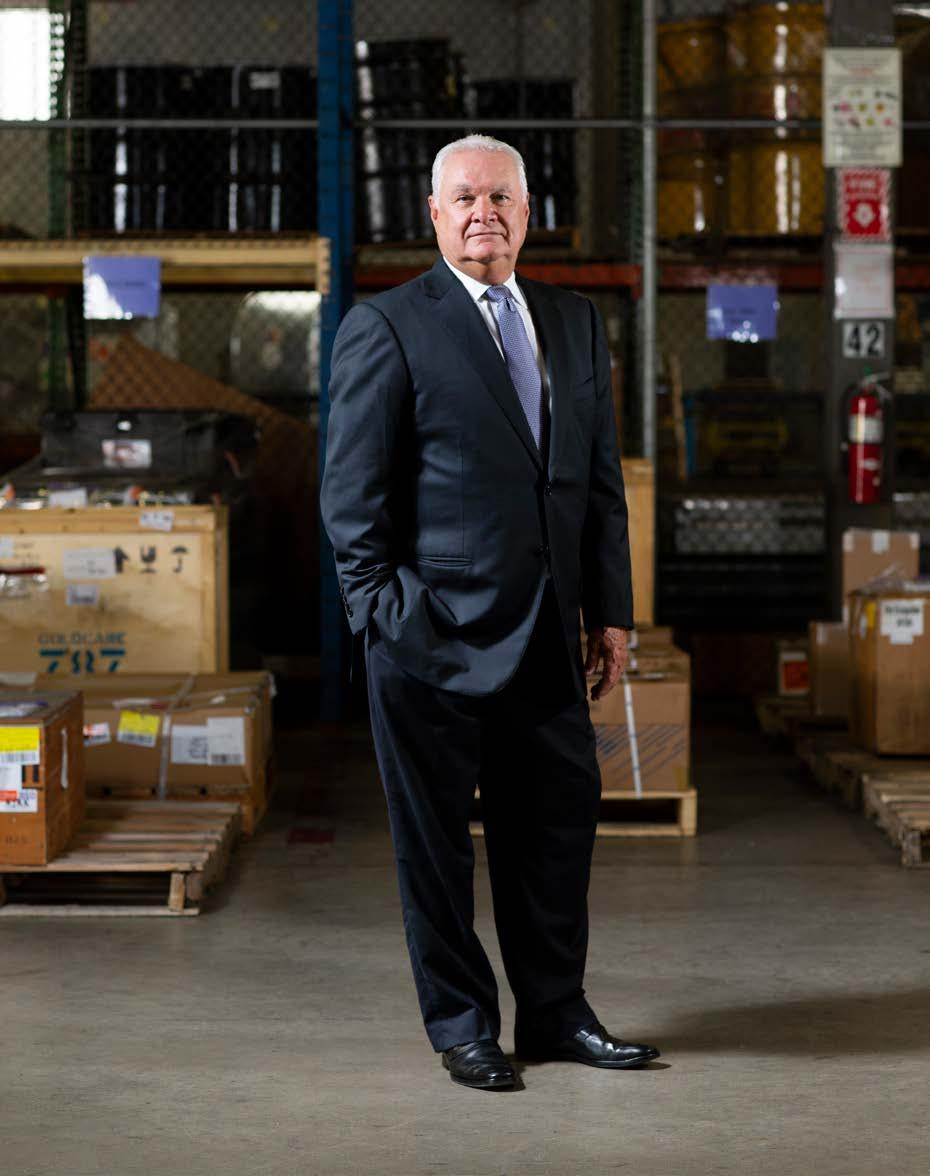
“They know how to take the business forward,” he says.
Each of those characteristics is critical to the business. The dynamics in many Latin American and Caribbean countries distinguish it from other regions. Political volatility plays a role in the regional economy and in how business is conducted. “As a global company, we constantly see challenging situations and other adverse conditions,” Cento says. “TPP and NAFTA could change
next week.” He is not exaggerating when he says this.
Cento says he and his team closely monitor political and regulatory issues out of necessity in all of the countries of the region, with an eye on how the political landscape affects customers. In his more than thirty years with the company, that has included multiple scenarios that involve cross-border trade and a range of issues, from protecting customers’ intellectual property to the
customs-clearing processes. Cento, however, suggests that with every challenge comes a few opportunities as well.
To address security concerns, for example, the company has programs that protect the packages being shipped as well as the company’s delivery personnel.
“The company has always been focused on safety,” Cento says. “We have global training programs in vehicle inspections and driver wellness; we sometimes handle hazardous materials. FedEx believes in having quality tools for everything.”
In addition to training, the company and Cento place a priority on hiring for the long term because the company and the markets it serves are both exceptionally dynamic. The FedEx of twenty years ago isn’t the company it is today, given the digital information revolution, and what happens by the year 2038 will be quite different as well.
“We have to have people with the skills to take us forward,” explains Cento, who himself has always appreciated the way in which FedEx helped forge a stronger future for Latin America. Cento believes that thinking ahead about the dynamics of technology and business has had a lot to do with getting him to where he is today, and he is looking to the next generation of leadership to embody those skills as well.
“There’s a lot of talent already in our twenty-six thousand employees,” he says. “But they have to be willing to always acquire new skills, be able to manage new dynamics, and learn how to use new tools as they become available.” If an employee or new hire has the audacity to say they want Cento’s job one day, he says he loves that. “But just having the qualifications for today isn’t good enough,” he says. “You have to focus on the future.”
That future might be fueled by the significant growth in countries such as Brazil, Mexico, Costa Rica, etc. But the principles Cento learned from his father and FedEx founder Fred Smith transcend technologies and economies. “It’s not about short-term gains,” he says. “You need to be who you are; you have to believe in what you’re doing.”
By Valerie Menard
At times, our path in life might seem predestined, but everyone reserves the right to go off course. Cesar Salas believes he was predisposed to be an engineer and work with numbers: his father was an engineer, he became one, his brother became one, and his two sisters became architects. But he was also a people person. So, he ultimately found his niche in human resources after an HR veteran, who saw his potential, encouraged him to pursue a career in the field. Committed to his current course for the past thirty-seven years, he currently serves as head of HR, administration, compliance, and quality at Hamburg Süd, a German global maritime transportation company.
“As a child, I wanted to be a physician and a priest. When I became an HR
manager at Abbott Laboratories, it was a perfect match,” Salas says. “Working in the life sciences industry was as close as I was ever going to be to being a physician. As an HR manager, however, I feel like a priest in the sense that I became someone who people would go to for counseling and guidance.”
A native of Lima, Peru, Salas is the oldest of four children born to Cesar and Vicky Salas.
Salas earned a bachelor’s degree in industrial engineering from Universidad de Lima , and like his father, he found employment at IBM as an engineer. It was during this time that HR manager Enrique Angulo, who Salas considers his greatest mentor, encouraged him to pursue HR.
“I started at IBM as a computer programmer,” he says. “One day, my manager
asked me, ‘Where would you like to move for your next assignment?’ He gave me four options: sales, finance, customer service, and human resources. Although I had no clue what was being done in HR, it just so happened that there was an opening in human resources, and the HR manager [Angulo] wanted to interview me for the job. Talking to him for an hour and having him explain what they do in HR was a life-changing event. At the end of the interview, he asked if I had any questions. I said, ‘Yes, when do I start?’”
Based in Lima while working at IBM, one of the first challenges he faced in HR was spurred by volatile economics. Escalating inflation in Peru required continuous salary reassessments, and the manual process of filling out a form and sending it up the chain of command was
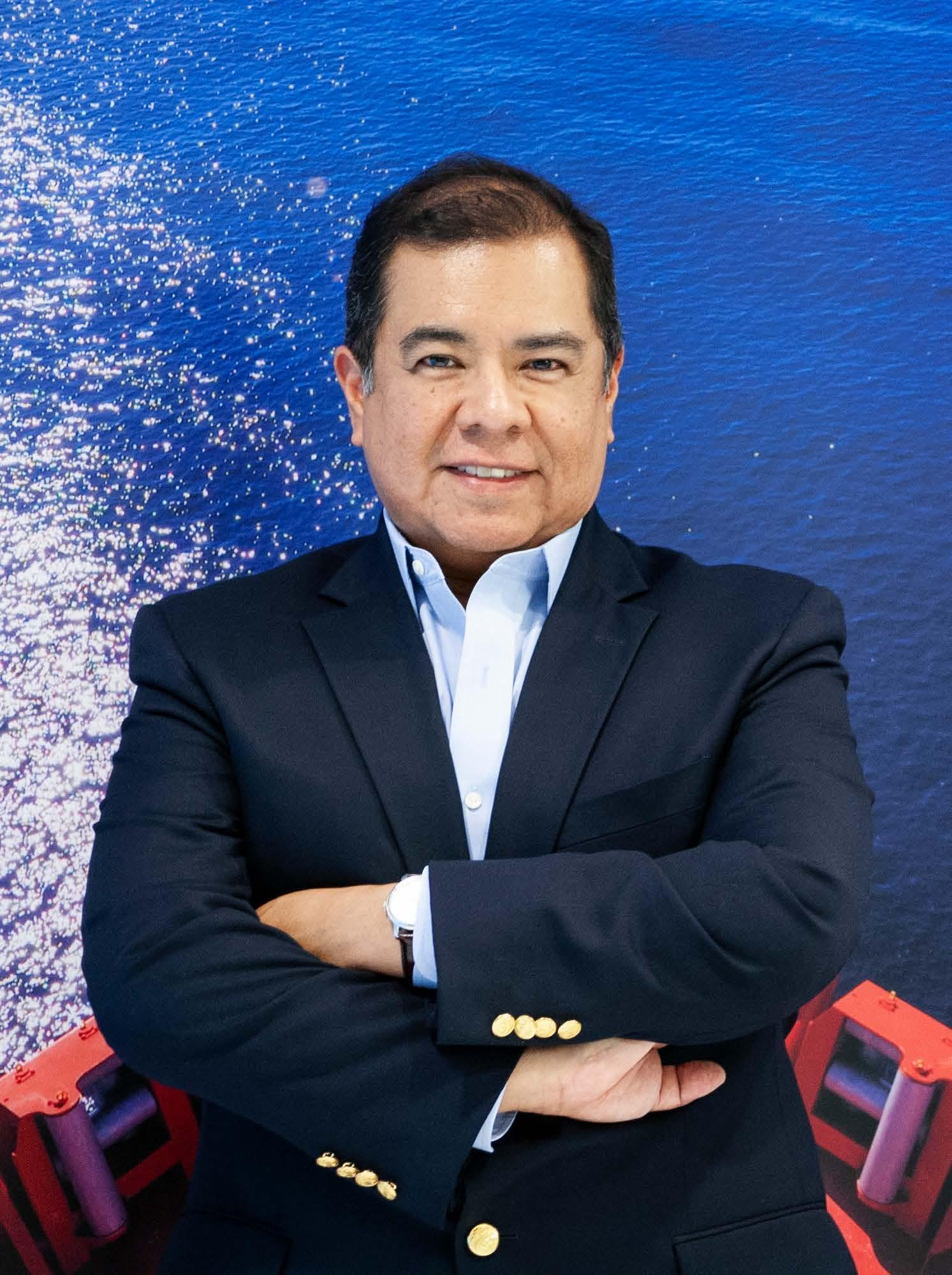
too slow. Encouraged by Angulo, Salas tapped into his IT skills and developed a program from scratch where a manager could make a salary recommendation, send it to the second-line manager, and then get final approval from the HR manager, who would input it into the system.
“Our IT department was unable to build the system due to large backlogs, so my boss thought of me,” Salas says. “From then on, I started building systems. I worked at IBM for fifteen years, at a time when there were no limits to what you could learn as long as you were motivated.”
Salas has always been focused on learning and continuing to hone his skills. So while working at IBM, he began working toward an MBA from the Universidad ESAN in Lima. And today, he’s currently working on a doctorate in business at the Maastricht School of Management in the Netherlands. He is also a senior certified professional at the Society of Human Resources Management.
Aside from discovering where he had knowledge gaps, Salas says that working for an American company in Latin America also enhanced his global thinking. It revealed a dichotomy: Americans want immediate results while the culture in Latin America requires a more personal and relationship-based approach when conducting business, Salas says.
“Working in different global companies in Latin America, I found that many of them didn’t invest enough in developing talent locally,” Salas says. “I felt that it was important to shift the paradigm and build the local talent first as part of a global subsidiary.”
Salas’s HR leadership became truly global when he worked on opening a new
office in Australia for Respironics (now part of Phillips). “Respironics needed an international HR head for the offices outside the United States,” he says. “I was able to leverage on my experience in Latin America, and I realized that the different geographies under my responsibility [Europe, Asia, and Latin America] had different labor legislations but similar people-management issues. Basically, the United States is pro-employer, whereas the rest of the world is pro-employee. When I realized this, I knew I had become a global executive.”
As he continues to build his HR skill set, future challenges include changing technology, which has not eluded HR. Automation will continue to take over traditional jobs while future workers will need the skills to manage it, Salas says. According to Salas, one HR essential will not change: communication.
“It’s the one thing that can make or break a company,” he says. “Ninety-nine percent of the problems I deal with involve communication between employees. You may be a leader with great business acumen, but if you cannot communicate properly, the chances of being an effective leader are very small.”
Working at Hamburg Süd in Miami, Salas finds himself discovering a new industry all over again, and that’s how he likes it.
“I was willing to explore the challenge of moving to a different industry where I have been able to continue leveraging my acquired skills and experience,” Salas says. “I am always open to new challenges, and I am willing to continue my career no matter where it takes me in the years to come.”
Dear Mr. Salas, our warmest congratulations on great accomplishments in your distinguished career! It has been an honor working with you and the team of Hamburg Sud for the past 5 years!

Proves to be the trusted Leadership & Management Development Partner to companies – industry leaders on the market of the US, Europe, Asia, Middle East, Central & South America and beyond.
Benefits Consistently Delivered:
• Customized program design
• Matchmaking with your company’s Leadership Competence Model
• ROI significantly exceeding the initial investment –100% guarantee
At Leader Talent we combine innovative models and techniques of behavioral science with effective leadership skills - a unique blend that uplifts workplaces of all sizes.

One of our latest developmentsindividually focused & scientifically proven approach using psychodynamic model – Birth Order Typical Habits or simply BOTH Model.
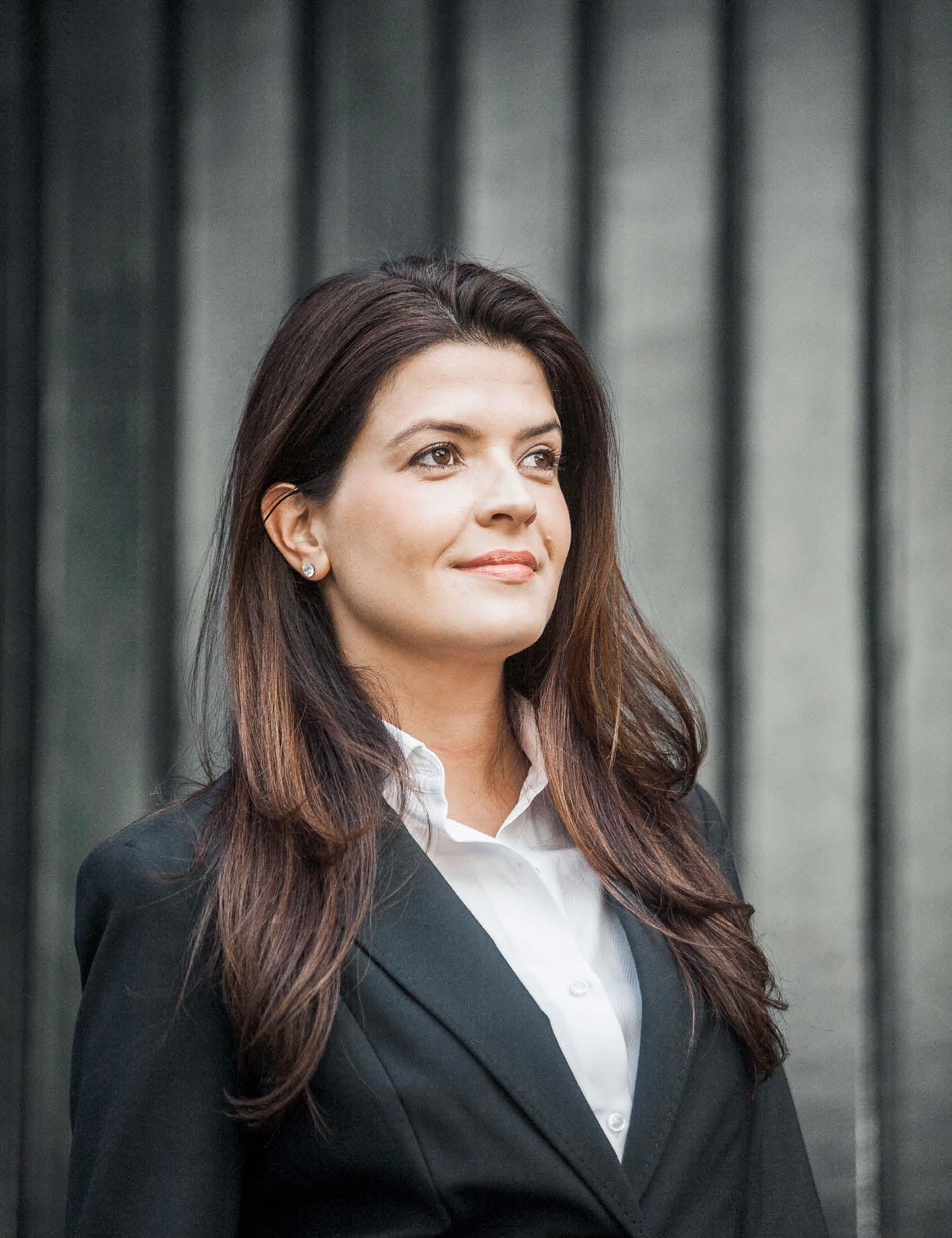
By Jeff Silver
Christiane De Carvalho is the force behind Acxiom’s mission to drive successful digital marketing campaigns around the world
has learned a tremendous amount over the course of her career. She has also leveraged that knowledge to continue developing as a global business professional and to create a series of successful endeavors, each one building on the accomplishments of the last.
After graduating from one of Brazil’s most prestigious universities, she worked on a poverty campaign for the United Nations, founded the advertising agency Cria Imagem, and worked for start-up Wholly City, a neighborhood search engine and online community, before it was acquired. These experiences helped her discover a passion for global projects, the value of carefully sourcing talent, and the importance of building an organic and comprehensive network.
This progression brought her to the Nielsen Company, where De Carvalho worked her way up from account manager to director of client services and advertising solutions. Her innate abilities and conscious decision to be very vocal about her desire to grow and improve were responsible for her developing relationships with several key mentors and being admitted into the company’s management leadership program, where she was the only participant not already in a managerial position.
“I was very fortunate at Nielsen to have great Hispanic leaders and mentors, as well as training that reinforced the importance of adapting my approach to global business,” De Carvalho says. “For example, in Brazil, we are generally very direct, but that can seem aggressive. I learned how to lead by example, to empower others, and how to create a win-win for everyone involved.”
Eventually, she brokered a deal between Nielsen and Acxiom, a database marketing company that provides the foundations for targeted advertising campaigns, where De Carvalho is now senior director of global data and partnerships. She was initially hired to bring Acxiom’s off-line data into the digital space, but she is now responsible for expanding services to provide personally identifiable information (PII) globally. “Our mission is to bring precision and accuracy to the digital marketing arena around the world,” De Carvalho says. “We’re building on the trust we have already established with clients in the United
States by listening to their needs and building our global road map based on their priorities.”
That strategy has led Acxiom to be the first company to provide ethically sourced, precise, addressable data online in Brazil, Mexico, the Netherlands, Italy, and Indonesia, in addition to offering digital data in fifty-seven other countries.
Acxiom’s ability to onboard privacy-compliant consumer information to digital platforms via anonymous IDs allows advertisers to differentiate between someone who owns a luxury car and someone who has only visited a brand’s website. By combining that information with additional insights—like the person’s lifestyle interests and demographic information—advertisers can reach potential customers much more accurately.
De Carvalho’s role as a liaison and educator with partner companies makes her a critical part of the sales, build, and delivery teams. By successfully executing those responsibilities, she builds relationships across a wide range of industries and corporate personalities, from iconic financial services firms to today’s most prominent technology giants and the largest publishers and social platforms in the world.
“I often have to translate concepts between very traditional companies and more progressive technology organizations that have very different approaches to how they do business,” she says. “I’m able to do that by demonstrating how each of them brings a different value proposition to a proposed solution and how everyone involved fits into the ecosystem that we’re creating together.”
In markets that are not as technologically mature as the United States, De Carvalho spends much of her time educating local groups on ethically sourced data and the requirements of privacy compliance. As she describes it, just because data exists and is available doesn’t mean it can be used.
“We often have to go to a number of data providers to find one with information that is permissible to use,” she explains. “We take a very methodical approach to ensure that we comply with the specific requirements in each country, which makes multinational companies very comfortable working with us.”
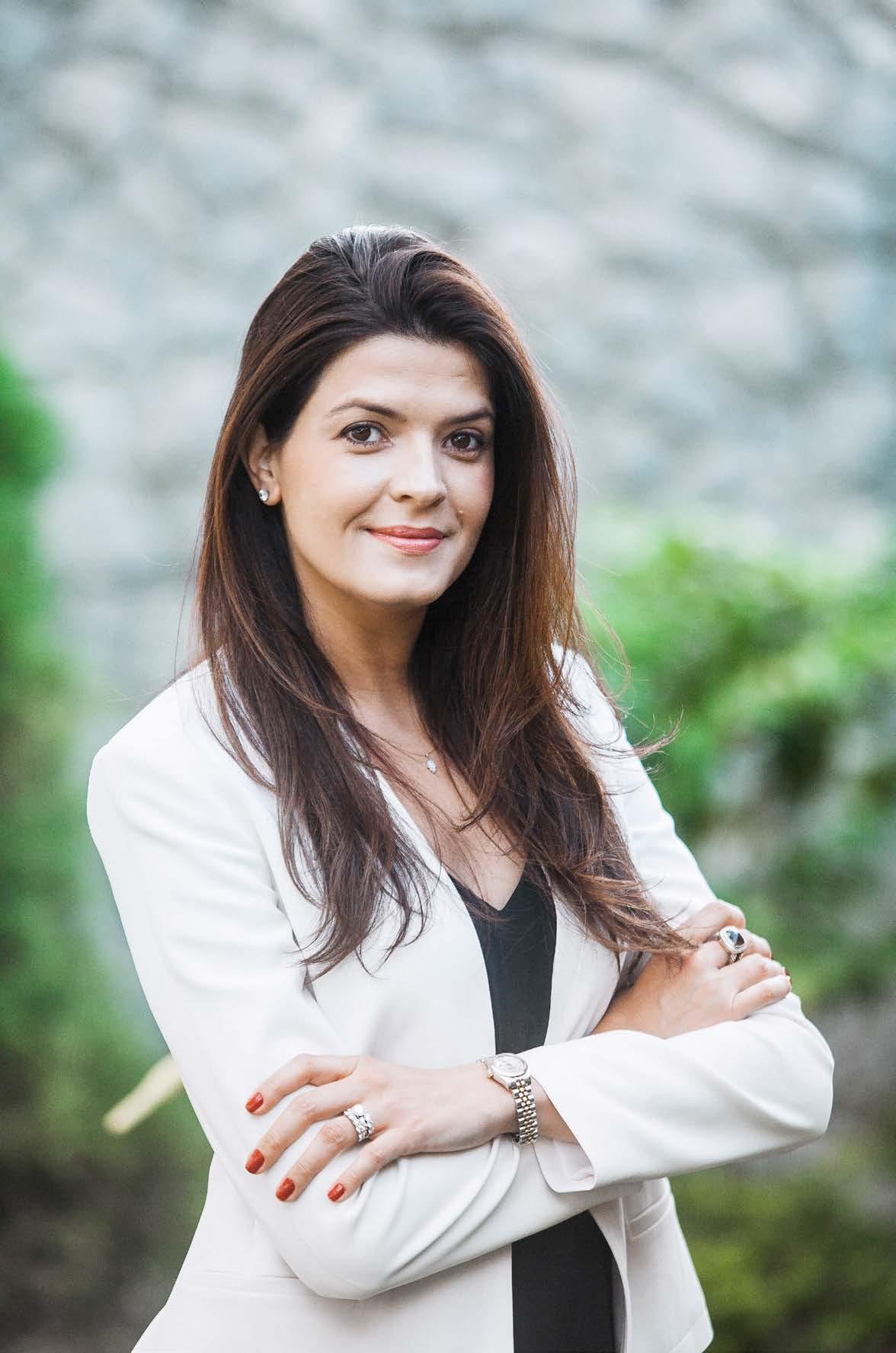
We’ve been a marketing industry leader for almost 50 years, helping brands make more relevant offers to consumers. From our products, to our collaborative work style, to our work-life balance – we’re committed to changing the world together in an environment that makes all of our associates feel valued. Diversity is more than the color of our skin or our gender – it’s the combination of unique qualities that make each and every one of us special. Diversity spurs innovation, and we love it! We want Acxiom to be a place where you feel like you belong.

In fact, De Carvalho says that Acxiom was the first company in the world to create the position of chief privacy officer. The company, she says, was also the first provider to be able to deliver addressable data in Canada, which has the most rigorous compliance requirements for PII in the world.
One of De Carvalho’s most significant projects is developing a partnership in Brazil with one of the world’s largest global
“We’re building on the trust we have already established with clients in the United States by listening to their needs and building our global road map based on their priorities.”
publishers. It positions Acxiom data on the publisher programmatic platform, where it enables brands to be more accurate in its digital targeting. The project will also include closed-loop analytics with Acxiom’s addressable data to provide positive ROI for Brazil’s largest advertisers.
Although making use of PII seems like a relatively new concept for digital advertising, Acxiom (originally founded as Demographics Inc.) has been in business for fifty years. That gives De Carvalho tremendous opportunities to continue increasing her own expertise by tapping into the company’s institutional knowledge and the personal experiences of her colleagues.
“There’s so much you can learn by listening to people who’ve been working in this arena for a long time,” she says. “That makes it even more exciting to be spreading the word about the precision and the opportunities that Acxiom provides around the world.”
Arjona, Executive Vice President, Nielsen
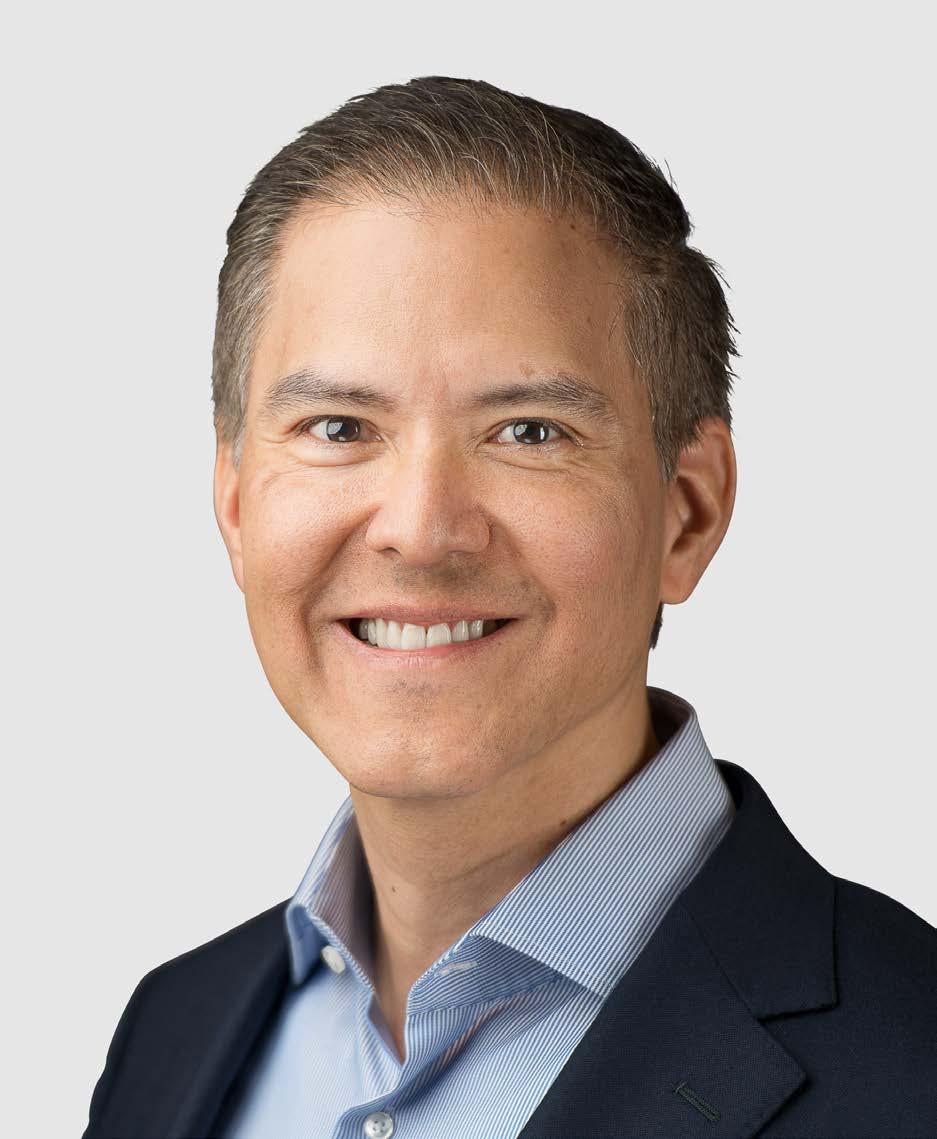
Nielsen’s Luis Arjona shares the lessons he’s learned from postings around the world and why they are more important than ever
By Jeff Silver
As an executive vice president at Nielsen with extensive market and commercial knowledge both in Latin America and North America, Luis Arjona brings more than twenty years of experience growing high-performing businesses. Prior to Nielsen, he led eBay Brazil, having led its growth from the ground up. Arjona also brings consulting experience from Bain & Company Brazil, McKinsey, and Booz Allen & Hamilton. In both the United States and Brazil, Arjona has led several vertical businesses across a broad variety of industries, focusing on consumer products, retailing, e-commerce, financial services, and private equity.
Fluent in English, Portuguese, and Spanish, Arjona considers himself a citizen of the world. His professional journey began at twenty-three when he left his hometown in the Yucatan peninsula in Mexico. After earning an MBA from Stanford University, he has steadily built an international career in management consulting that has taken him all over the world.
The values and principles that he leads by today are reflective of a life well-traveled. In business, his core values revolve around living mindfully, staying humble, being nimble and agile, and being very disciplined. “To some degree, in every place I’ve been, I’ve felt a bit like a foreigner, and I am humbled by this,” Arjona says. “This perspective has allowed me to be an outside observer— taking in observations around various behaviors, work styles, opinions, and needs. Every new place has allowed me to learn about new cultures and approaches to life. Through my travels, I’ve been able to embrace a global culture and work collaboratively through differences.”
Currently, he puts that belief system into action in Nielsen’s Buy business. The
“By creating an effective network, we exponentially increase the power of what we can do.”
business provides consumer-packagedgoods manufacturers and retailers with the most comprehensive view of the consumer through information and insights. Companies look to Nielsen, he says, to help navigate the key trends and marketplace dynamics that impact their business. Nielsen’s measurement and analytics are embedded in the operating disciplines of companies all around the world, helping them to make smarter, quicker business decisions that drive results.
Throughout his career, Arjona admits that having a humble spirit and hungry attitude toward finding solutions to business challenges has served him well.
“Being humble is about living to serve others and knowing that I do not have all the answers,” he says. “Being hungry is about striving for excellence. These two attributes are important and certainly
connected. For me, being hungry provides the energy to move forward, while being humble enables a healthy attitude to achieve success by working with others and for others.”
He believes that a great deal of humility and respect for local customs and cultures has helped him adapt to the many places he has lived and worked. He remembers being humbled by his experience in São Paulo, Brazil, where he saw an extraordinarily multicultural society that was limited in material wealth and in quality of services compared to the United States. In contrast, he also remembers being humbled in Dallas, where he encountered a hunting culture that was very new to him. Although he never participated, he was able to respect and appreciate others’ rich passion for this sport.
“At Nielsen, we foster an environment where differences are appreciated and embraced and where we value diversity
of thought, experiences, skills, and backgrounds,” he says. “We challenge everyone to innovate, take risks, learn, and grow, which enables us to further foster the traits of being humble and hungry within a community of diversity and inclusion.”
Be Nimble and Agile
According to Arjona, being nimble is the best way to serve his clients.
“Clients look to me and my team to be experts on the industry they operate in. They need us to provide advice that is relevant, data to fuel their decisions, and analytics to stay on top of the ever-changing landscape,” he says. “With this responsibility, we have to react expeditiously and be nimble. That is the reality we face every day. The rate at which technology is changing is unprecedented. I am lucky to work at a company where we have a front seat to these changes, where we are leading the charge in big data and advancing our efforts in AI, machine learning, and image recognition.”
In fact, Arjona believes that in order to succeed, the next generation of leaders must be agile.
“Leading through today’s business environment requires the ability to sense and respond to changes in the business environment with actions that are focused, fast, and flexible,” Arjona says. “Agile individuals are motivated by expanding their knowledge, questioning the status quo, and actively migrating toward challenges.”
Of course, Arjona says the virtues of agility can and should be applied on a company level as well. For companies, data enable agility. It allows them to make the right decisions quickly and to execute expeditiously. The right data available at the right time is a competitive advantage.
“In our Buy segment, we are transforming our core products and our
data-delivery platform to bring more speed and efficiency to our clients,” he says. “One great example of this is Nielsen’s Connected System. This open, cloud-based solution integrates Nielsen’s powerful measurement data and analytics capabilities into a single platform, addressing our clients’ key needs of speed and efficiency. We’re increasing the utility of our data, helping clients to understand not only what happened, but also why it happened and what action to take next. Adding to this, our Connected Partner Program enables third-party analytics companies to run apps on our open-data platform, amplifying the value of the underlying measurement data that is the core of our business. Clients can now get answers to a wider range of questions in a highly efficient and useful manner. These innovative, collaborative models are an important part of our business today, and this should only grow in the future.”
Continuous learning is an important part of staying nimble. For Arjona, it began when he transitioned from being an engineer to becoming a management consultant. “I’ve adopted new skill sets as I move from one project to another throughout my entire career,” he says. “Continuous learning is a normal part of every day for me.”
Arjona is a strong believer in collaboration. He says that’s also an integral part of Nielsen’s culture and an important factor in coordinating the delivery of services to clients in more than one hundred countries. “In today’s complex business environment, no one person or team has all the answers or can accomplish everything alone,” he says. “By creating an effective network, we exponentially increase the power of what we can do.”
He also says that clearly defining roles and objectives and providing appropriate processes and tools are key. To illustrate, he highlights Nielsen’s consolidation and creation of three global super hubs. With this move, it’s possible for a team in the United States to initiate a solution and hand it off to an Asia-based team for further development overnight, which they can then pass on to a European team to finalize the solution for client delivery within twenty-four hours.
Arjona doesn’t consider himself to be an adventurous person, but he doesn’t think twice about going outside his comfort zone to help clients address challenges in intense, high-pressure situations. One of his greatest successes before coming to Nielsen was creating a retail banking operation from scratch in El Salvador without personally having deep banking industry experience in that region. However, when he moved to his next assignment, the project resulted in more than fifty branches across the country that accounted for 25 percent of the bank’s business.
“I define the risks, provide my teams with a clear mission, and empower them with the right tools to succeed,” he says. Since Arjona leads by example and believes his passion for helping clients is contagious, his teams have also adopted this mentality to help them overcome challenges.
He points out that accepting risk and adapting to change make up the new status quo. “Businesses around the world are amid the fourth industrial revolution, a digital revolution that impacts every aspect of our lives—at work, at play, and at home,” he says. “With this, the need to stay curious, humble, hungry, agile, collaborative, and open to taking risks is more important than ever.”
As technology infrastructure becomes increasingly complex, Thaddeus Arroyo looks
By Joseph Kay
Thaddeus Arroyo began his college career when home computers were an exciting possibility and the internet was an abstract, specialized military technology. But as a young man, he had the foresight to see that a great transformation was coming—and he knew that the right education could position him for its arrival.
“I majored in mathematics with a secondary focus on computer science,” he says. “I could see the possibilities at that time, even though tech was so far from where we are today.” Arroyo went on to earn an MBA before beginning a technology career that’s now in its third decade.
In 2007, Arroyo was chief information officer at Cingular Wireless when AT&T acquired full control of the company. He was then asked to become the chief information officer for all of AT&T. He then served as the president of technology development before he was offered his first CEO role as CEO of AT&T Mexico. Crucially, it was his first position away from tech development and wholly in business leadership.
He knew that his main objectives in the new role would be integrating the acquisitions of the third and fourthlargest wireless providers in Mexico. He had to judge carefully his own interest, capabilities, and comfort level in order
to decide to accept it and move forward. But, he says he likes to work at the edge of his comfort zone and continue to position himself for personal and professional growth.
Within two years, he completed the integration and rebranding of both acquisitions.
Not only was it his first CEO position, but he had also never worked internationally. The complementary challenges of new strategic responsibilities in a new work culture were daunting yet enticing. He accepted the challenge and became CEO in January 2015.
Those acquisitions and the strategic choices after and around them transformed AT&T Mexico into the nation’s fastestgrowing wireless provider today.
The state of wireless connectivity was distinctly unlike the United States; much of the coverage was running at 2G speeds, and there was far less coverage overall. The difficulties were obvious, but he and the rest of AT&T leadership recognized that this was an opportunity to create and recreate the wireless industry across the entire country.
One opportunity for disruption was in the customer service area. While a customer-first approach feels intuitive in a service-contract model in the United States, Arroyo felt that this could be a
unique point of differentiation in Mexico. It was an opening for AT&T Mexico to create growth, and it started on the ground with the next generation of its rebranded retail locations.
“We had to come in and say, ‘This is the culture we’re building here, and it starts with a better network in more places and delivered with a better service experience,” he explains. “We need our associates beginning every response with, ‘I can help you with that.’”
That’s been part of a broader effort to build a welcoming, flexible, forwardthinking culture at AT&T Mexico. The acquired firms, the third- and fourthlargest in Mexico’s wireless industry, worked under a palpable atmosphere of competing in a market largely served by a single, dominant player. There was a number-three-and-four mind-set in place. “You could sense it,” recalls Arroyo, saying that pervasive, internalized limitations were keeping those firms where they stood. AT&T leadership had to work with diligence and intention to break old habits and produce new ones.
“We kept coming back to this idea of sin limites,” he says. The phrase, which means without limits, became the refrain of that cultural transformation.
Those efforts led directly to a healthier working environment, as well. Arroyo

notes also that the management leadership was only 10 percent women overall at the close of the first acquisition. Now, that proportion is almost 30 percent and growing with AT&T’s reputation as a workplace. This year Forbes named the company one of the Best Employers for Women, and Fortune and Great Place to Work named it one of the 100 Best Companies to Work For.
From AT&T Mexico, he moved to his current role as CEO of AT&T Business in January 2017. Just as before, Arroyo recognized his position as an opportunity to implement ambitious, innovationdriven, and far-reaching change to the ways that people live and work; this time the challenge was global.
“We’re living at a tipping point,” says Arroyo. “The early days of the internet changed how we communicate. Today, wireless services, high-speed fiber, cloud services, and IoT devices are revolutionizing the way business does business.” He says that’s why it’s so exciting to lead AT&T Business; it’s a time when the company can help customers take advantage of the expanding digital ecosystem to grow its revenues, transform its operations, and create entirely new experiences for its customers.
“Software is enabling a new economy, where every product is a software service waiting to happen,” says Arroyo. “In many ways, the product is the software or the platform. Successful, disruptive businesses now operate at the speed of thought.”
AT&T has been embedding softwaredefined network capabilities in its network for several years, and Arroyo says this is now translating into solutions for small and large businesses alike.
“We’re moving to a place where the software is the network,” he explains. “Think of a firewall or a router for example: something you used to buy as a physical device is now a software solution that you can license. It lives in our network cloud, and you don’t have to maintain it. In fact, AT&T’s network cloud, our FlexWare service, is now available in more than two hundred countries and territories. In the same way the smartphone replaced multiple devices—like your camera, alarm
“We believe no connection is more important than one that saves lives.”
explains. “This is an unprecedented publicprivate investment in infrastructure that makes America a leader and public safety a national priority. From the beginning, we recognized that FirstNet holds great potential for public safety innovation— especially when coupled with mobile innovation.”
He says that these innovations are built on the AT&T network; the company has had this infrastructure in place, but now it has implemented prioritization technology to protect critical, life-saving communications for public safety.
Those innovations enable projects like FirstNet, but that’s just the beginning of what Arroyo describes as the AT&T Business mission, which is to connect governments, businesses, first responders, and even cities.
Building on its legacy as an innovation trailblazer, AT&T is again helping lead the way in creating the next generation of network capabilities.
“We are extending digital capabilities to our customers, empowering them to bring together all of their connected endpoints from every corner of their business and allowing them to tap into that intelligence in near real time,” says Arroyo.
clock, and more—FlexWare, the virtual edge of our network, replaces towers of hardware. It gives customers the freedom to add or modify their network functions nearly as easily as downloading an app to a smartphone.”
Arroyo sees the AT&T network as the connective tissue that helps businesses tap into the power of everything connected around them. This even extends to public safety. FirstNet is a US federal entity created under the Middle Class Tax Relief and Job Creation Act of 2012 and a public-private partnership with AT&T. It’s a wireless communication network exclusively for America’s first responders: fire safety, emergency medical, police, and so on.
“We believe no connection is more important than one that saves lives,” he
Arroyo continues to consolidate AT&T Business’s position as a premier global technology provider. AT&T Business serves more than three million businesses in nearly two hundred countries and territories around the world, including nearly all the Fortune 1000 companies.
Moving forward, he continues to look for new competitive advantages. “I strive to move beyond my comfort zone, growing by expanding the edge of my knowledge and capabilities,” says Arroyo.
This is an approach he adopted early on from his mother, just as he did with her favorite phrase, sin limites , which has become a core tenant of his leadership style.
“It’s really about never limiting opportunities by self-imposed perceptions of barriers that can ultimately be overcome,” he says. “The phrase has proven to be a powerful gift from my mother. To this day, it guides many of the actions in my life.”
helps businesses generate near real-time insights by connecting IoT & cloud & software-defined networking & security & what’s next.

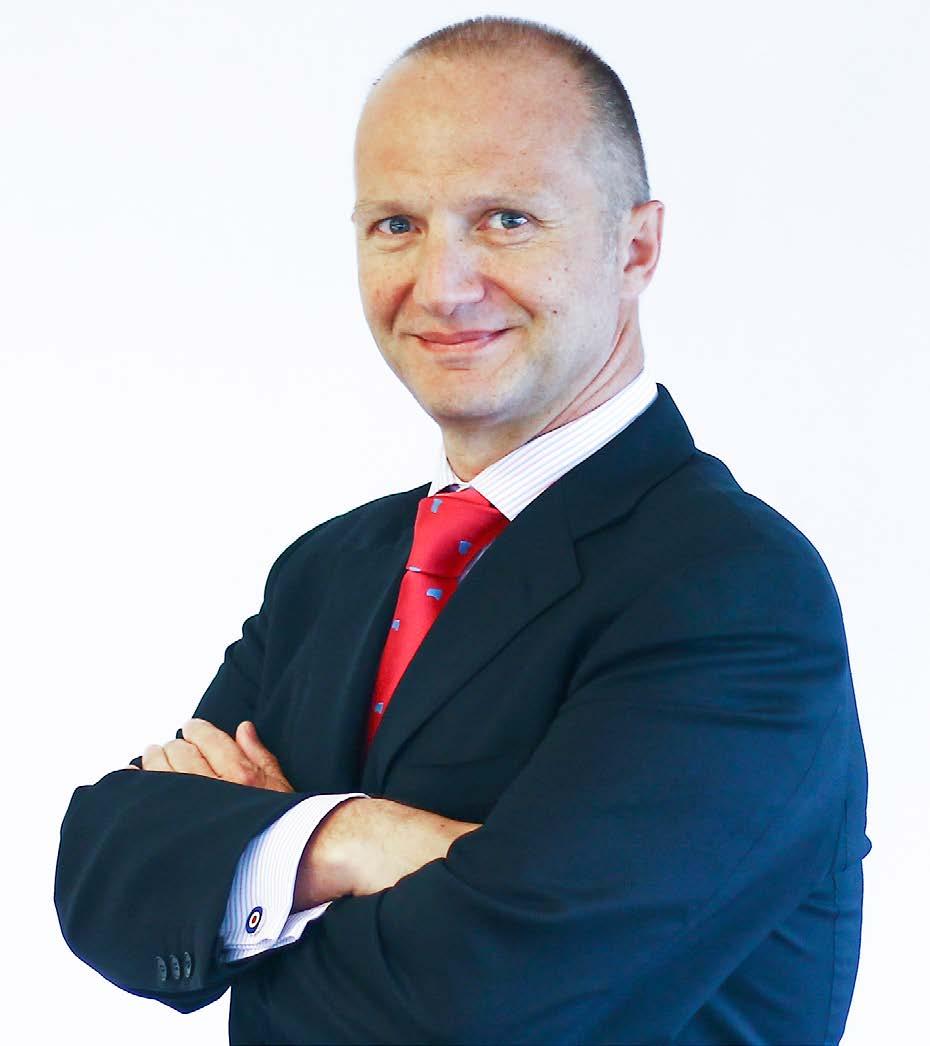
Juan Francisco Yáñez Rodriguez’s life has brought him all over the world. Now, he is CEO of the Americas for everis.
By Teresa Dovalpage
Juan Francisco Yáñez Rodriguez has spent the last twenty-one years working for everis. Now, as the company’s regional CEO of the Americas, he wouldn’t dream of doing anything else.
“What makes everis extraordinary, as my friend and mentor Benito Vazquez would put it, is that it has gente buena and buena gente,” he says. “It sounds naive, but it’s in fact a profound statement. The skilled, hardworking, knowledgeable, and essentially good people that work at everis are our best asset.”
Born and raised in Madrid, Spain, Yáñez received a degree in electrical electronics and automatic regulation from the Universidad Politécnica . He worked in Tabacalera SA (former Fábrica de Tabacos de España) and then at Coritel as an IT system analyst. He joined everis (DMR Consulting at the time) in 1997 as a banking and telecom manager. “I started at the bottom of the pyramid,” he says. “This allowed me to have a first-hand experience with the company’s development.”
In 2004, he moved to Chile, where he would spend the next five years—a period that marked his personal and professional life. “My wife, Silvia, and I moved to Santiago when we had just gotten married,” he says. “That was practically our honeymoon. Our son Fernando was born there. It was in Chile where I was promoted to managing director and later became a partner of the company.”
After returning to Spain, Yáñez became the managing director of everis Madrid and, eventually, the company’s chief operating officer.
“In that capacity, I established overall operational budgets for fourteen countries and worked closely with the Latin American market,” he says. “All this lead me to my current position: seven countries and around nine thousand professionals that I manage from our Miami office.”
Yáñez is now responsible for all the everis operations in the United States, Central America, and South America.
“I’ve been able to do all that because of my family’s encouragement,” he says. “My wife is my best supporter, and our son Fernando has always been at my side.”
Yáñez recalls how everis began in 1996 with just five people in a small building with a tiny cafeteria. Today, the company has close to twenty thousand employees.
“These are professionals that we have hired one by one,” Yáñez says. “We haven’t bought any companies. All our employees have been chosen personally based on their merits, after seeing their CVs and conducting personal interviews. That’s how we ensure that our core values of trust, transparency, and consistency are maintained and lived by all its members.”
“The expectations of the consumer have changed with the increased digitalization of our lives.”
Everis is a multinational consulting firm that offers business and strategic solutions, development and maintenance of technological applications, and outsourcing services.
Fritz Hoderlein CEO
The Date the Company was Founded in Madrid, Spain
Yáñez credits the company’s success (everis had a turnover of €1.03 billion in the last financial year) to its commitment to such principles. “Consistency is to do what you say, and transparency is to say what you do,” he says. “Trust means knowing that those who are working with you will do their best. It’s like when you are hiking: you trust that whoever is in front of you will secure the ropes so you won’t fall. The success of the team is your own success.”
One of the biggest challenges that consulting firms like everis face nowadays is keeping up with the new technologies and adapting to the digital age.
“The expectations of the consumer have changed with the increased digitalization of our lives,” Yáñez says. “We are living in one of the most interesting and most complex moments in the history of our company and of the world in general. The digital revolution is our main challenge, and we are facing it by using new tools and technologies and by building new business models.”
The company is prepared and has been positioning itself as one of the most innovative consultants, using the breakthrough technologies.
Its capacity for combining artificial intelligence and technological innovation with business expertise could bring exponential growth to all sectors. Yáñez says everis can help achieve the best results by democratizing, digitalizing, and transforming business process to promote faster growth and to make a huge impact on the community.
Strengthening ties with other industries in a global scale is also part of everis’ vision. In May 2018, for the third consecutive year, the company sponsored the Digital Business World Congress that took place in Madrid.
The main goal of the company is to deliver outstanding results, Yáñez says, and hiring the highest performing professionals in their field and keeping them produces these results. A combination of positive leadership and a sense of purpose is the best strategy to nurture and keep employees.
“Going back to Benito’s words, the idea of being a company with buena gente y gente buena means to excel both ethically and emotionally,” he says. “That’s why we encourage people to use responsible freedom (do what you love) and direct their creative energy (love what you do). Here at everis, we know we want to be the number one consulting service in the world. We are all in this together.”
Plotting the path to Hispanic leadership
IHOP President Darren Rebelez is working hand in hand with franchise owners to ensure the iconic breakfast brand thrives for generations to come
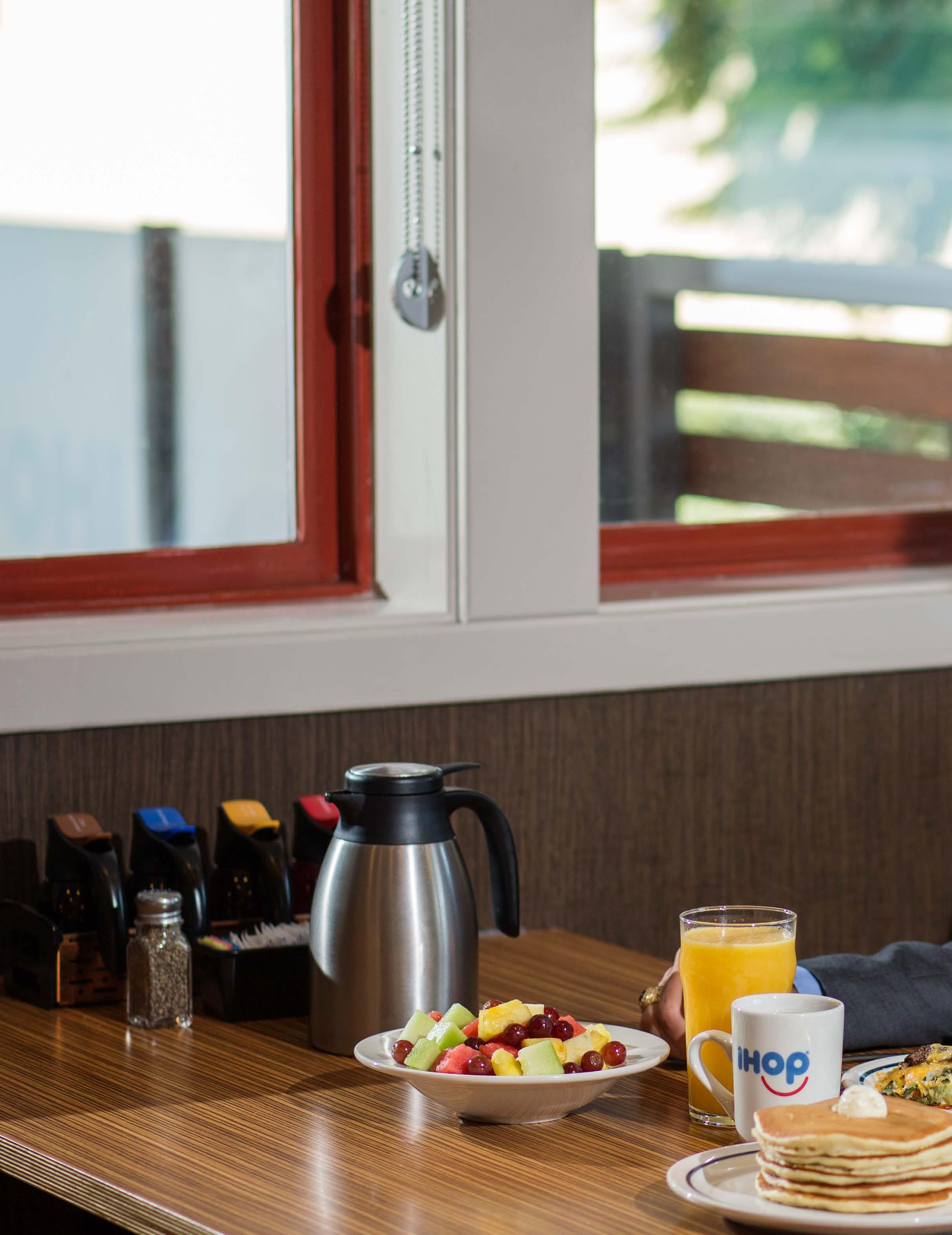
By Lori Fredrickson
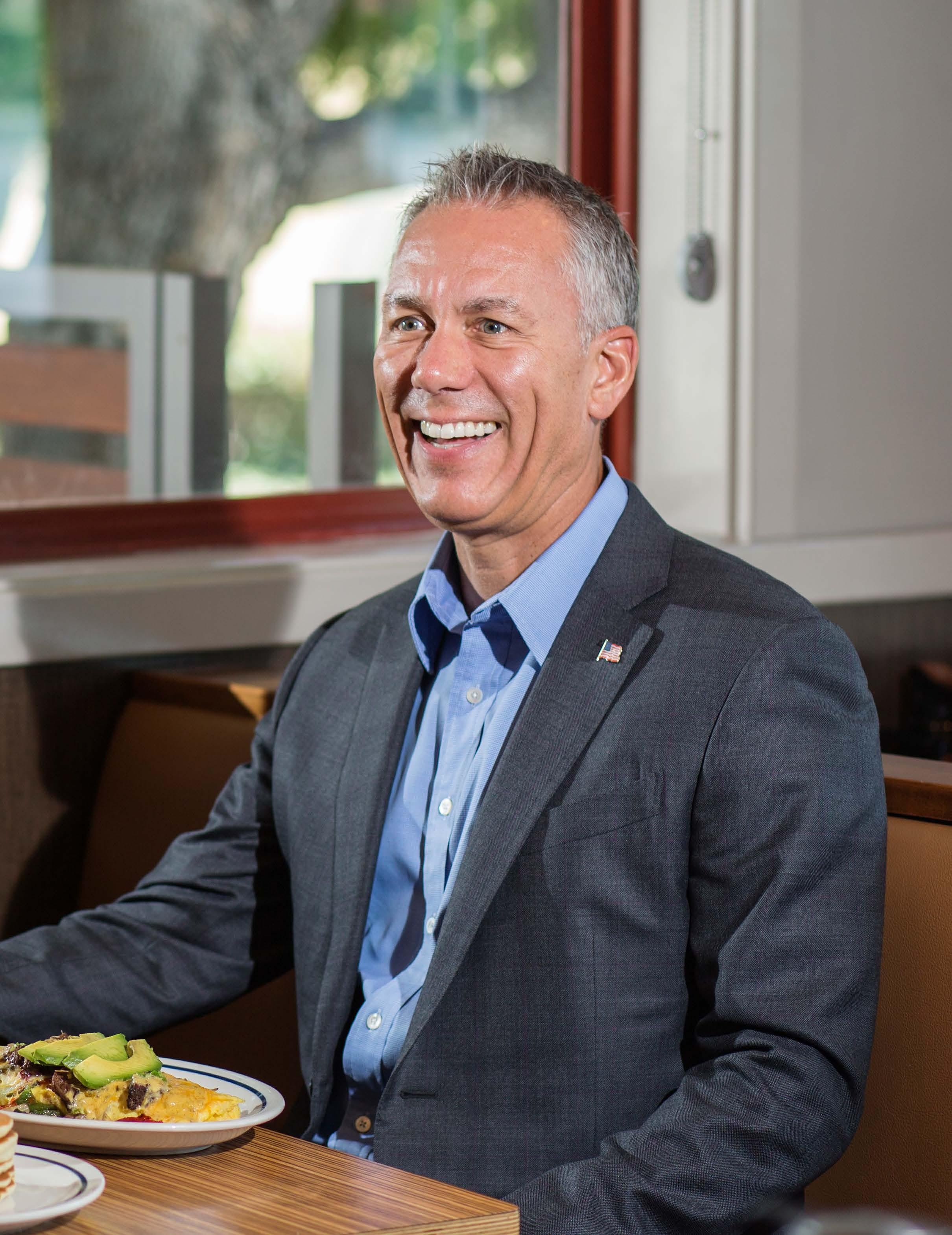

for his first high school job thirty-five years ago—as a dishwasher in a restaurant at the San Diego Zoo—he had little reason to suspect that the experience would lead him to one day become the president of IHOP. Today, he is charting a new course for the leading all-day breakfast destination and family-dining brand that has close to 1,800 restaurants across the United States and around the world.
Now, decades later, what he learned then still informs many of his decisions today as well as his approach to leadership. “Ending up where I did, I learned the value of the frontline employees in the restaurants—particularly the dishwasher, which is the least-appreciated job until you don’t have one,” Rebelez says. “I’ve come to appreciate what everybody does to make this brand work.”
In his role at IHOP—a fully franchised brand with more than three hundred individual owners and operators—Rebelez often shares his story so that others, regardless of position, know that anyone with an entrepreneurial spirit can build a business.
“Ability is what you’re capable of doing. Motivation determines what you do. Attitude determines how well you do it,” says Jay Crown, vice president of US sales at Unilever. “Darren learned the value of the frontline employees in the restaurants, and he appreciates what everybody does to make the IHOP brand work. His loyalty to his franchisees and managers, working with them side by side to ensure success, has made IHOP a success today. It is a privilege to be a partner to a brand that is an American icon and to be a part of a growing and evolving brand.”
For IHOP, having a diverse group of franchisees is a competitive advantage. Many of its franchisees started out working at IHOP as a cook, dishwasher, server, or manager before purchasing their own restaurant or following in the footsteps of a family member who is an owner. Although a handful of IHOP franchisees operate more than fifty restaurants, the majority own less than five restaurants.
“We focus on finding the best operators, and we know that when people have worked at an IHOP, no matter what their job, they have a passion for the business and understand the essence of the brand,” Rebelez says. “That makes for great franchisees, and it’s a benefit for us because we get to keep the identity of the brand intact.”
That bootstrapping, entrepreneurial spirit is something Rebelez knows well. When Rebelez was growing up in San Diego, his grandfather opened a barber shop after having immigrated to the United States from Mexico. Perched on the ninth floor of a bank building, Rebelez watched his grandfather build a successful business from the ground up, applying grit and determination while also prioritizing customer service to create loyalty and build word-of-mouth referrals.
Rebelez was also the first in his family to go to college, studying at West Point and graduating as an officer before serving four years in the Army, including a deployment for the Gulf War. Returning to civilian life, he found himself back the restaurant world, landing a job as a restaurant manager at a KFC in San Antonio, Texas. From there, he rose up the corporate ranks with successive promotions, landing the role of executive vice president and chief operating officer at 7-Eleven. When the opportunity to lead IHOP presented itself a little more than three years ago, he jumped at the chance. “It’s an iconic American brand, and it’s all centered around taking care of families and family dining, which is important to me,” Rebelez says. “IHOP is a place that welcomes everybody, people from all walks of life, of all ages. We’re very much a ‘come as you are’ kind of place, even if you want to show up in your pajamas.”
Some of his early challenges were working to modernize a brand that’s been around for six decades without abandoning what people love most about IHOP. The changes, all of which have been grounded in what the IHOP guest wants, include everything from updating the IHOP logo to turn the frown into a smile to undertaking an extensive remodel program that, in just
three years, will contemporize more than one thousand IHOP restaurants across the United States.
“Darren’s passion for the iconic IHOP brand fuels our drive to realize his vision for the future of IHOP and its customer experience,” says Donna Cobb, executive director of enterprise marketing at Comcast Business.
On the culinary side, the organization has undergone a strategic menu evolution, focusing on adding quality ingredients and distinctive dishes that lean into all-day breakfast. This evolution also led to lunch and dinner options, which resulted in the introduction of seven Ultimate Steakburgers in 2018. And although innovation will always be a driving force at IHOP, the one thing that will never change is its world-famous buttermilk pancakes—a guest favorite.
As Rebelez and his team worked to strengthen the brand, they relied on research and guest insights to inform every recommendation and decision. “We made a rule among ourselves and our franchisees: the brand gets one vote on any decision,
“Our smaller operators are often in touch with what’s going on in their restaurants, with their frequent guests, and in their communities, which offers critical insights for how we go forward.”
and the franchisee gets one vote, but the guest gets three votes,” Rebelez says. Those guest insights are then paired with what franchisees hear and see in their restaurants every day.
“Franchisees give us valuable input on everything we do and provide us with practical solutions to challenges facing the brand,” Rebelez says. “Our smaller operators are often in touch with what’s going on in their restaurants, with their frequent guests, and in their communities, which offers critical insights for how we go forward.” Combining that information with strategic contributions from larger franchisees, he says, helps IHOP create a more holistic approach to its business and to smartly scale initiatives across the entire system. While there
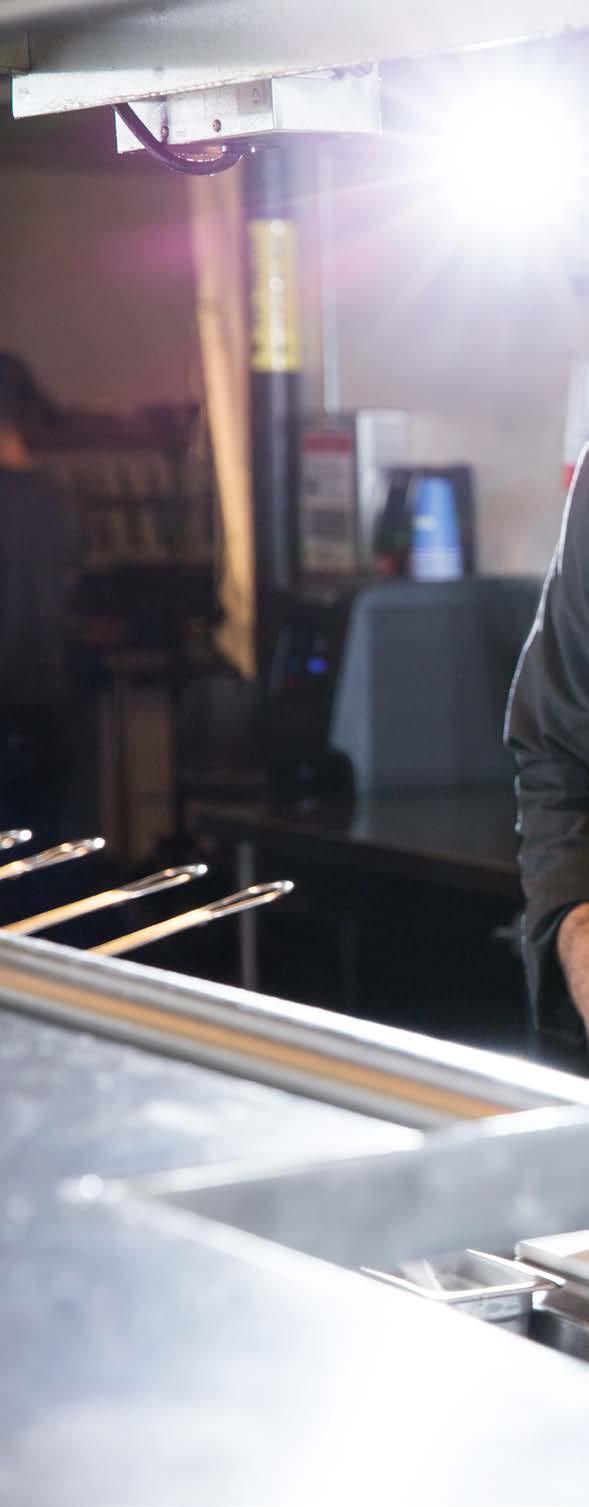

“At IHOP, we lead through influence, and that influence is built by establishing trust with the people you’re trying to lead, particularly in the franchise business.”
are countless examples of the brand engaging franchisees to test new ideas, one of the most successful was the launch of IHOP ‘N GO, the brand’s to-go platform.
“Some of our franchisees were eager to ramp up carryout and delivery because they knew that our guests wanted the convenience of enjoying IHOP food at home,” Rebelez says. “But, before we could roll out to-go or delivery in a big way, we had to learn what worked, what didn’t, and what was missing for our business and our restaurants.” Ultimately, the learnings gathered from franchisees who were testing to-go helped shape a robust program that now includes proprietary packaging designed around IHOP pancakes, online ordering, a mobile app, and national contracts with leading delivery companies like DoorDash, GrubHub, and more.
All these efforts add to one shared goal for IHOP and its franchisees: growth for years to come. To succeed, it takes partnership. In addition to seeking out diverse opinions from its operators, the IHOP team works closely with its Franchise Leadership Council, a group of about fifteen franchisees who are elected by their peers, to make sure decisions are in everyone’s best interest.
“At IHOP, we lead through influence, and that influence is built by establishing trust with the people you’re trying to lead, particularly in the franchise business,” Rebelez says. “Because I’ve worked in every level of a restaurant, I’m empathetic to what franchisees are going through, what restaurant managers are going through, and what everyone up to and including the dishwasher is going through. I think this allows me to engage with the people who are a part of the IHOP family more authentically.”
For Rebelez, having the opportunity to lead people and to lead them at a brand he values and respects is what motivates him. “It’s a real privilege to lead a brand that is truly an American icon and part of so many peoples’ lives,” Rebelez says. “I’m excited to be part of growing and evolving this brand for its next sixty years and leaving something for the next generation.”
At Unilever Food Solutions , we are proud to promote Fair Kitchens and help create a movement of chefs supporting chefs, to change kitchen culture for the better. We make ingredients that inspire chefs all over the world to create dishes they love that keep guests coming back. We’ve been in food since the 1880s and are home to some of the world’s favorite brands including Hellmann’s, Best Foods, Lipton and Knorr.
Direct Pack, Inc. congratulates Darren M. Rebelez, President of IHOP at DineEquity, Inc. on this well-deserved recognition. We’re celebrating IHOP’s new, innovative to-go packaging, resulting from great collaboration and partnership between our companies.
DataSource helps you get more value from the printed materials used to do business every day. This could mean finding savings hidden across departments, enhancing quality and accelerating the speed-to-market, or managing the entire function from start to finish allowing your focus to shift back to the core business.



We speak out when we have something to say, we make sure others do the same.


Always on task, rarely home. Moving together, standing alone. We create, we taste, we fuel the flame. Our passion for food shouldn’t come at a cost. LET’S STAND TOGETHER.
CT AS ONE XCITE PASSION AKE TIME AY ‘GOOD JOB’
We train, mentor and inspire the next generation. We fuel their flame.

No matter our ethnicity, gender or religion, we share the same goal. We respect each other, hold back from abuse and ask “R U OK?” if we think someone’s not.
We make time for breaks – for fresh air and daylight. We rest, relax and recharge where we can.

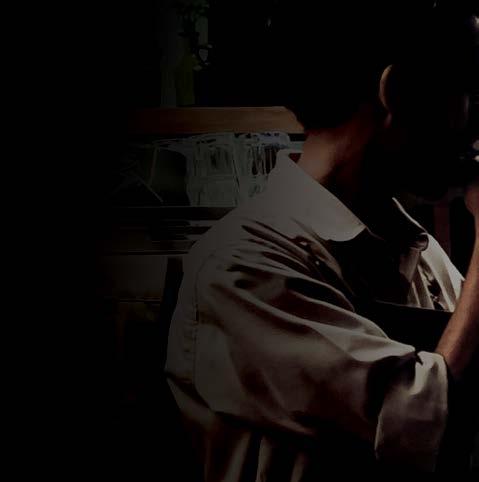
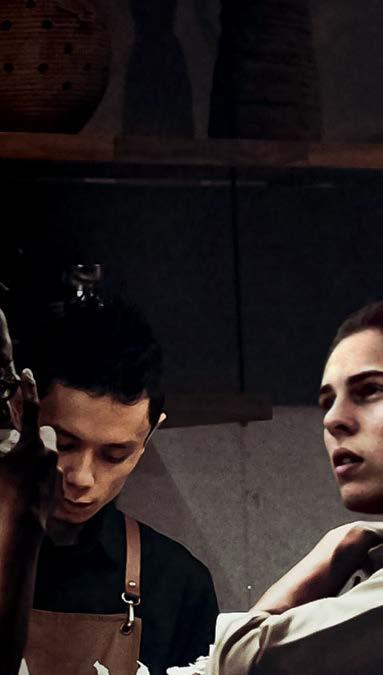

When one of us does a good job, we say it because a pat on the back can make their day.


LET’S WORK AS TEAMS. LET’S CHANGE THE INDUSTRY.
Unilever Food Solutions is proud to support the #FairKitchens movement. Learn how you can help change kitchen culture for the better: FAIRKITCHENS.COM ufs.com
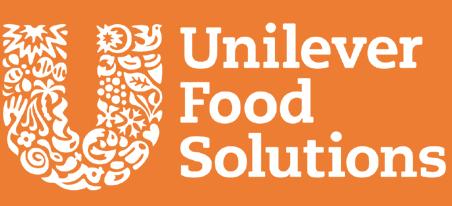








By Jeff Silver
When Christine Bastian reflects on her career journey, she recognizes that one of her most important and most satisfying roles is being an advocate for employees. At an early age, she learned the value of helping others have a voice and impact, and she has carried that experience and passion throughout her career.
“What I have learned is that what drives me every day is that opportunity to help people have a voice and realize their potential,” Bastian says. “When I can share my own experiences to inspire those who need encouragement, that is what matters.”
Her own career path has led her to speak out, take risks, and go outside her comfort zone, which ultimately brought her to HR. Starting her career in the farming industry at a small
family-owned operation, Bastian today is senior vice president of human resources for engineering at Cisco. She spoke with Hispanic Executive about her role, how she is helping transform HR, and what she has learned to channel her experience to drive performance.
Can you share more about your start in HR and how your experiences contributed to your career path? As a teenager, I worked at a family farming operation on the central coast of California. I started in payroll, and they recognized that they needed help in training and health and safety practices. They did not have an HR function, and they saw an opportunity and asked if I would step up to serve in that role. This was my first exposure to HR, and I quickly recognized my passion and
opportunity to help others grow and reach their goals.
I later relocated to the Bay Area, joining the HR team at Agilent Technologies in 2000. Moving from a family farming business to an IT-focused company required me to think and work differently. One way I tackled this was by adopting the mind-set that by taking on new roles and projects, I would continue to develop my own skills. It was not about the title but the chance to learn. I would volunteer to shadow people I knew were driving impact. This provided me with real-time learning that I could apply to my own situations.
In 2006, I joined Cisco, and I have had the opportunity to work in advance services, finance, and emerging business organizations before taking on my current role in engineering.

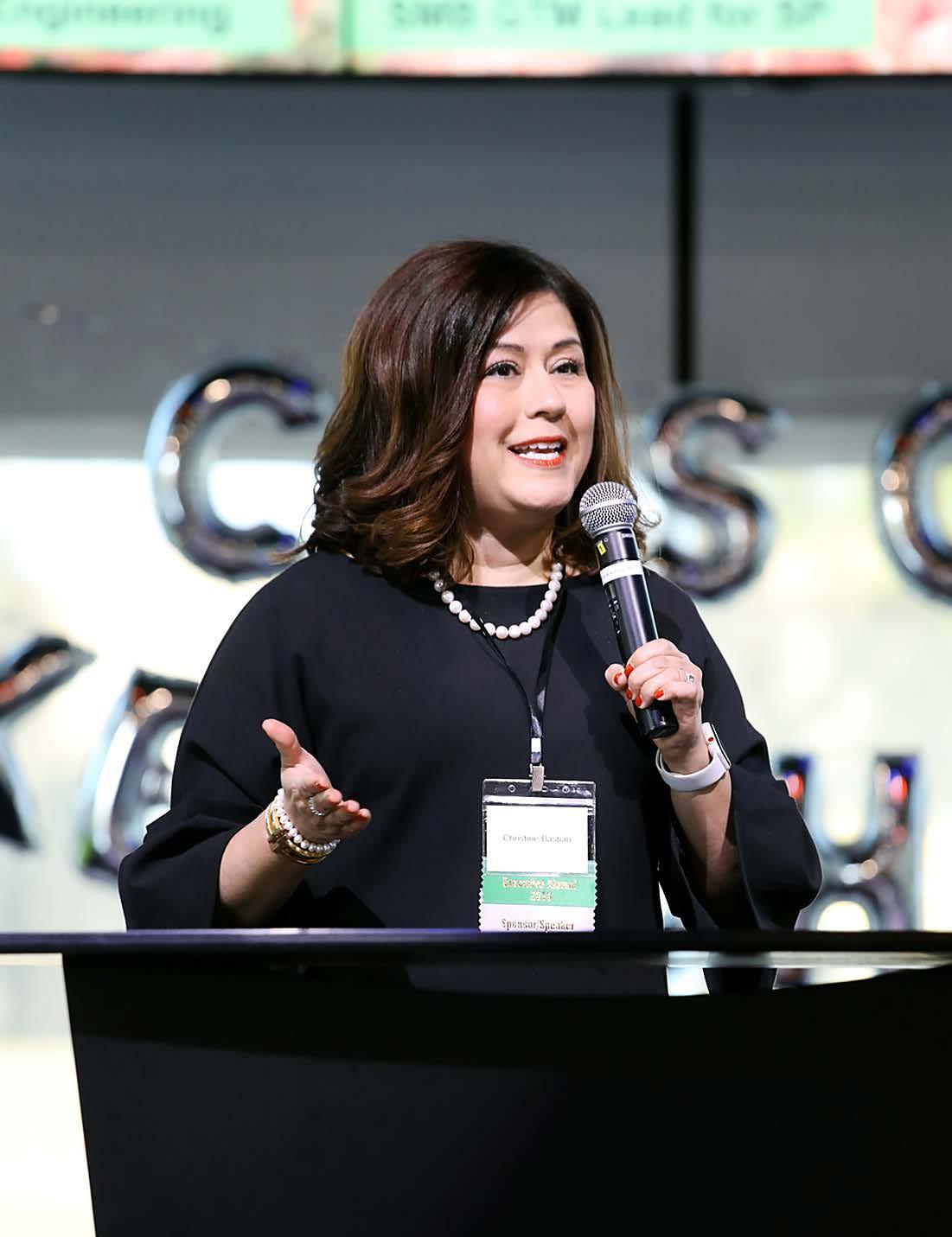
What is HR’s role in this new digital world?
At Cisco, we encourage a culture of learning by doing, and we ask our employees to take risks, experiment, and be OK with learning from our mistakes. We do this in engineering, and we do this in HR. HR must continue to evolve, and under the leadership of our executive vice president and chief people officer, Fran Katsoudas, we are “breaking” HR. Some of the biggest HR innovations in the past ten years have been delivered in the past eighteen months. We are changing how we look at employee performance. We are focused on our leaders and how they can better engage with their teams to drive team performance, and we are changing the landscape around how we drive diversity.
Can you elaborate more on what you are doing to drive a more inclusive organization?
It starts with how you define diversity, and for Cisco, it is a full spectrum of diversity, inclusive of gender, generation, race, ethnicity, orientation, ability, nationality, religion, veteran status, background, culture, experience, strengths, and perspectives. Historically, when companies look at diversity, it has been about the numbers, but no one company is doing this well. While it is important to understand your company makeup, we look to our leaders to shape and co-own how we achieve inclusion and diversity. We want to attract people of all backgrounds—with
all perspectives and all abilities. We continue to focus on those areas where we have gaps, yet we see diversity as a business imperative for all of us to achieve. We all own it. We’re driving accountability by showing our leaders where we are. But we’re also asking, “What are we going to do about it?” Our leaders buy in and own pragmatic accountability as we drive numerous experiments in the organization. Experimentation allows the organization to have the freedom to try different things, and while some will work and some won’t, we believe the results are more powerful. This approach really changes the entire dynamic from forcefully driving something so important to driving something that we believe in and makes Cisco better.
One example of how we are experimenting to achieve diversity is through blind hiring. When I first pitched the idea to the leadership team—suggesting that we look at engineers based only on skills, not their résumé—the response was, “That’s not possible; it’s too risky.” However, we have seen impactful results. There is something incredible about uncovering hidden talent that would not have been seen in a more traditional hiring format. We have a lot more to do, but we are the most diverse Cisco since 2000.
What’s the secret sauce for creating world-class teams?
It starts with our employees and our leaders. Until about four years ago, we did not talk about our aspiration when it came to our
“Historically, when companies look at diversity, it has been about the numbers, but no one company is doing this well.”
people. Then we introduced Our People Deal, which shared what we expect of our employees and what they can expect of Cisco. Our People Deal centers on three pillars: Connect Everything, Innovate Everywhere, and Benefit Everyone. Essentially, Our People Deal describes Cisco at its best. We also know that our biggest breakthroughs come from our teams, so we are putting an extra focus on engaging our employees by connecting them to their leaders in new ways. We have a tool, which we call Team Space, which connects employees and leaders weekly. Every week we ask our employees to check in, to share what they loved and loathed that week, what their priorities are, and what they need from their leaders. We really have seen how you can impact performance when your teams are more connected to your company’s
purpose and to their leaders and can see the value of their work.
How is the company embracing the transformation HR is driving? What is making the changes we must drive easier for our teams is that we are cocreating with the business. While HR is driving a lot of innovation, it is in collaboration with our business partners and in support of our business needs. When you are in such a competitive market for talent, how you partner will make the difference. This also means that my role as a leader has changed, as I will always need to wear the hat of the business as well as HR. We will continue to experiment, regroup, and either implement or try again. This is the new environment in which we work, and it is really exciting.

When you look at the next generation of talent needed, what skills are you looking for?
On the technology side, the market and our customers guide us. Our customers are asking for the next innovation, and we need to have the talent to continue to innovate. We will always look to help develop and acquire the talent to lead in the industry. On the soft skills side, we are investing in how we enable our leaders to lead differently and enable our teams to win. When I meet candidates, I always ask if they are willing to learn, explore, and try new things. We are all reinventing how we work, and continuous learning is key. We also are committed to supporting programs outside of Cisco to enable those who may not otherwise have the opportunity to develop their skills. In Europe, for example, we partner with third parties to teach people how to code, establishing the building blocks for how to become an engineer.
From left, Christine Bastian and Monique LeFors Edmondson—Cisco’s director of IT, Integrated Digital Experience—are leaders with Cisco’s Connected Women San Jose, which sponsors the Executive Shadow Program. Bastian is the executive advisor, and LeFors Edmondson is the chapter lead.
What advice do you most often provide to those you mentor?
Follow your passions, and always feel the right to speak up and out. I learned this very early on. My mother was raised in Mexico, and she spoke very limited English. When I was eight years old, we were in a situation where she was not being treated well, and in that moment, I learned that I could be her advocate. That stayed with me. I have had the opportunity to do so many things during my career because someone saw my potential. I want to do the same for others, and so I always try to give back what I was so fortunate to experience. Everyone has experiences that they can share and learn from, and I always advise people to chase development opportunities, not titles. Use your voice, and encourage others to do the same. Find those people who will be your advocate, and those people who you want to emulate. Use your strengths, and always be open to learning something new.

By Jenny Draper
From the lobby of Carnival Corporation’s headquarters building in Miami, Florida, Carlos Orta describes the recent installation of a thirty-five-thousand-square-foot Fleet Operations Center (FOC), which houses a seventy-four-foot video wall—allowing Carnival to monitor real-time conditions of the company’s 103 ships—and foreshadows many more innovative installations and services to come.
Indeed, Carnival is reinventing guest experiences at sea with amenities equivalent to that of land-based resorts, including IMAX Theaters, high-end retail stores, water parks, and the “Ocean Medallion,” a wearable device that provides guests with real-time customized experiences based on their preferences.
“Ultimately, everything we do at Carnival—whether you’re on the ship or in
corporate affairs—is about exceeding our guests’ expectations,” Orta says.
The multibillion-dollar company made headlines in 2016 as the first cruise line to return to Cuba in nearly forty years. “We achieved more than fifty billion media impressions as a result of our inaugural sailing to Cuba,” says Orta, who also serves as the Spanish spokesperson for Carnival Corporation.
Orta, who first envisioned a career as an architect, got a chance internship with a state senator that first propelled his professional life as a relationship-builder in public service. He got his start in South Florida politics, working for two Florida state representatives and later as executive director of the Miami-Dade County Legislative Delegation, where he led the largest bipartisan legislative delegation in the
State of Florida. “To be good at your job in public service, you have to be a great listener,” Orta says. “You know the phrase; ‘God gave you two ears and one mouth. Use them accordingly.’ You have to understand where everyone is coming from, what they need to resolve, and how they want to get there. You may not agree, but you need to understand their point of view.”
Orta is at the helm of Carnival Corporation’s diversity and inclusion initiatives. “Our competitive advantage comes from the diversity of our leadership team and employees,” says Orta, who is Cuban American and the company’s vice president of corporate affairs.
And that’s a major responsibility given Carnival Corporation is the world’s largest leisure travel company. Its workforce is as diverse as the nearly twelve million guests
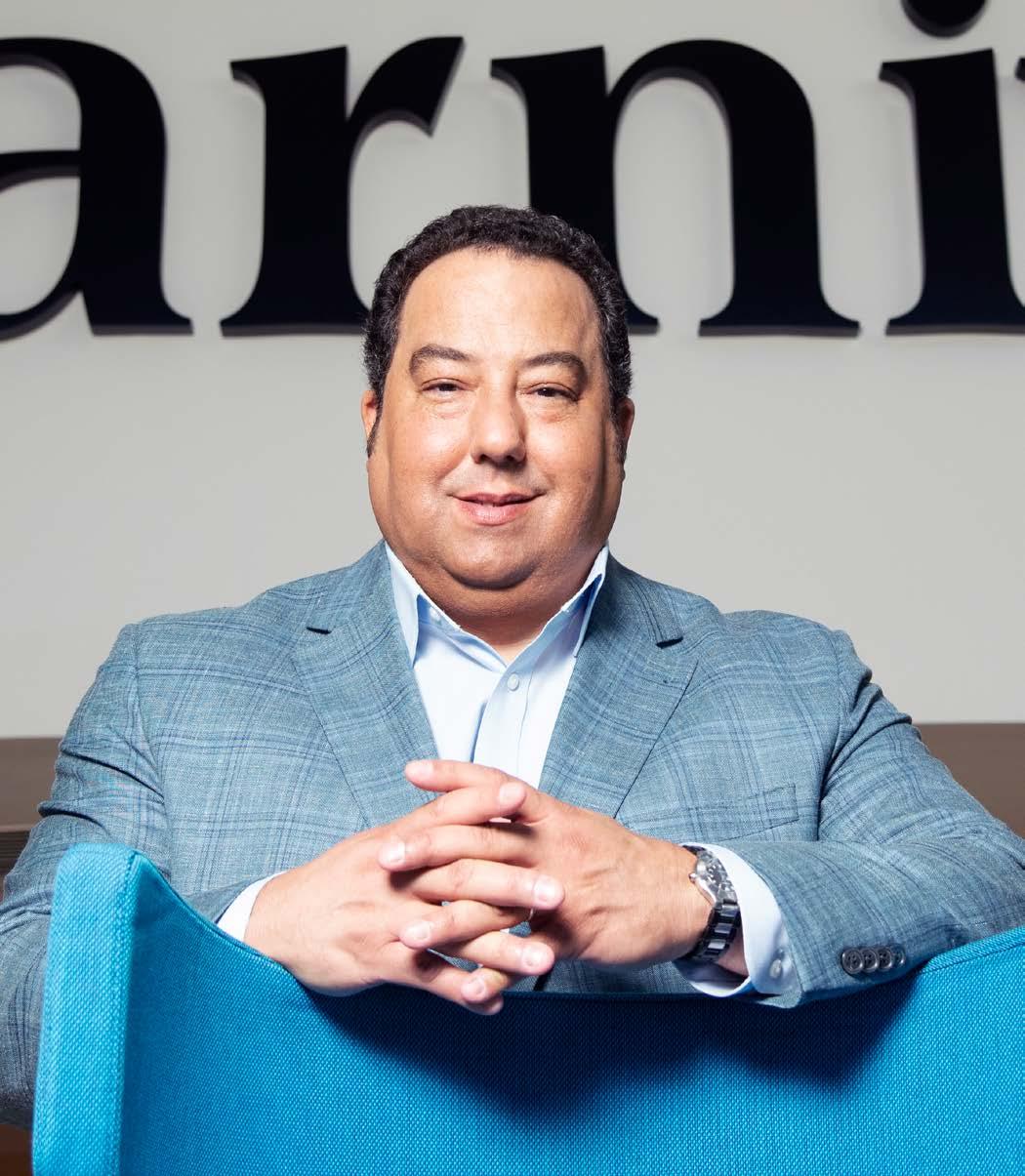
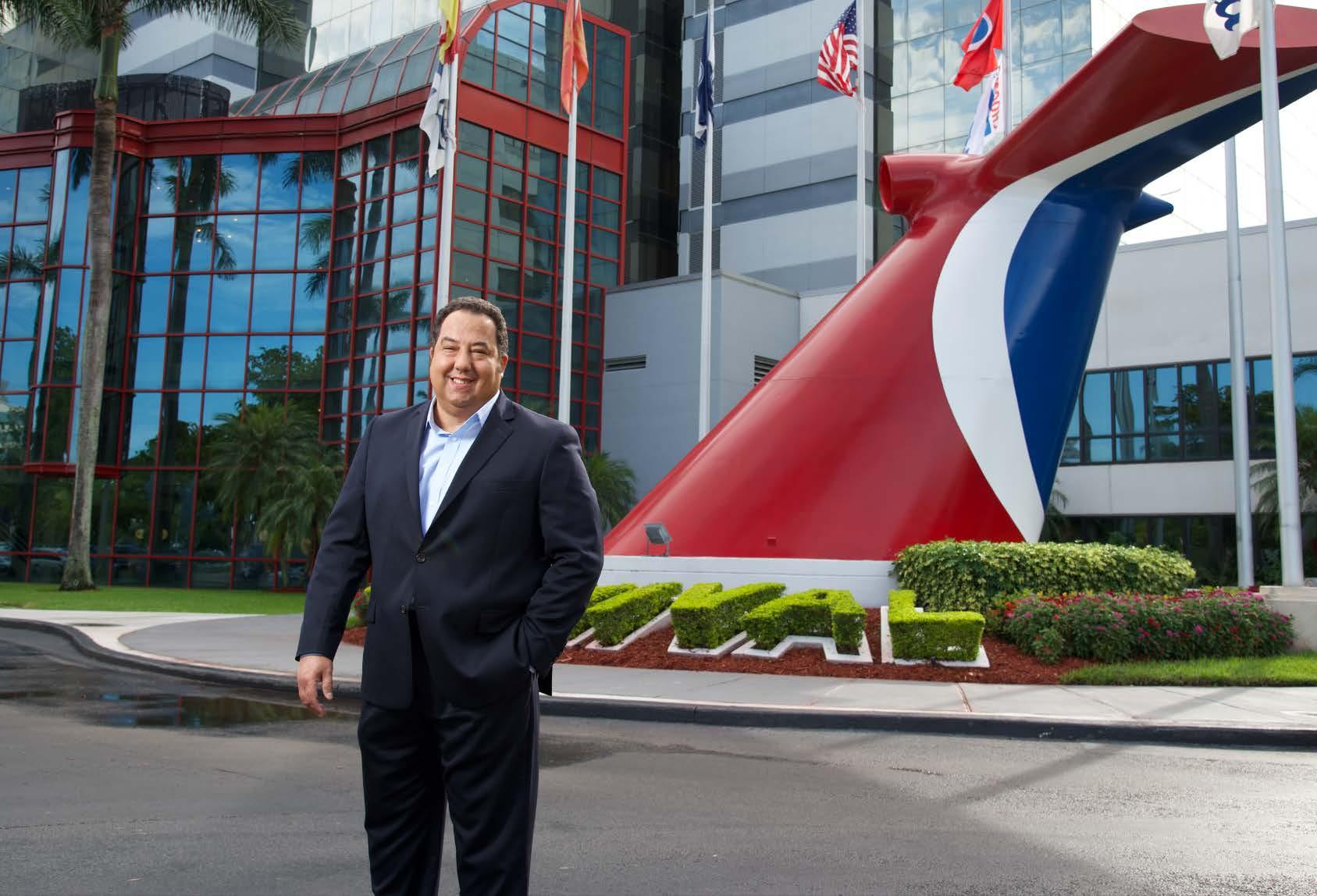
who sail aboard Carnival’s cruise ships annually, seeking unforgettable vacation experiences. The diversity of thought of new hires across Carnival Corporation and its ten brands have also helped provide unique onboard and shoreside experiences for guests at more than seven hundred ports of call around the world.
Orta’s ability and experience in leading government and community relations, public affairs, and diversity and inclusion at the local, state, and international levels have been instrumental in his success as vice president of corporate affairs. His career trajectory during the past three decades as a D&I champion at global Fortune 500 Companies—such as Anheuser-Busch, Ford
Motor Company, and Waste Management Inc.—has led him here.
Thanks to the insights of tens of thousands of employees from more than sixty countries, Carnival is well positioned to serve guests from a myriad of ethnic and cultural groups. “D&I is the key to innovation and a business imperative for us,” Orta says. “We’ve developed relationships with diverse minority groups, including African-American, Asian-American, Hispanic, and LGBTQ communities, among others, which didn’t exist before, and I’m very proud of that.”
Under Orta’s leadership, Carnival developed a D&I multicultural advertising campaign titled Diverse Destinations, Diverse Leadership, which has yielded
multiple awards and accolades and featured almost two-dozen Carnival Corporation colleagues—from the manager level to the C-Suite. He is at the center of these developments, applying decades of experience to usher in a new era of diverse thinking that’s making waves across the industry.
Orta’s knack for civic affairs and public policy helped him climb the corporate ladder at Ford Motor Company, where he grew from assistant regional manager to contributions program manager, governing a $10 million budget, and managing almost two hundred philanthropic programs across the United States. Shortly thereafter, he was promoted to regional manager of eleven southwestern states, where he lobbied for key local issues in the world of manufacturing and business while chairing Ford’s local philanthropic community relations committee.
Orta has also left an indelible legacy of advancing D&I in the nonprofit sector. From 2006 to 2014, he served as president and CEO of the Hispanic Association on Corporate Responsibility (HACR) in Washington, DC. Through his visionary leadership, HACR blossomed into one of the most influential nonprofit advocacy organizations in the United States. At HACR, Orta created several new programs and initiatives and an awardwinning documentary series called Insider Game . Under his leadership, the organization more than doubled annual revenue, from $1.1 million to $2.5 million, and nearly doubled corporate memberships. And all this happened with a laser focus on the organization’s
mission to grow Hispanic inclusion in corporate America.
Orta shares his expertise and passion for giving back by volunteering and serving on dozens of nonprofit boards, including the Board of Directors of Leadership Florida, the Business Advisory Council of the Human Rights Campaign Foundation, and the Latino Donor Collaborative, among others.
In May 2018, Orta became chairman of the Greater Miami Chamber of Commerce (GMCC), coming full circle since completing the chamber’s Leadership Miami program and then chairing the program five years later. He is one of few Hispanic executives in the country leading nonHispanic organizations, and he cites that opportunity as a turning point in his professional development. “I learned how to manage different points of view,” he says. “In all my travels, I’ve seen firsthand all the good work chambers do for their communities, and now it’s my opportunity to give back.”
As a member of Carnival Corporation’s Inaugural Global Diversity Council, Orta is a staunch advocate for Carnival to continue leading D&I solutions in the cruise industry that encourage an inclusive global workplace and competitive business advantage. His strategic guidance on D&I has set Carnival on a course to continue leveraging a talented workforce and drive bottom-line growth to the forefront of its operations and to the consumer. “When you bring people together from different backgrounds and experiences, you’re going to get a better result,” he says. “That is our goal at Carnival.”
Carlos Orta has always believed in giving back, and one of his greatest contributions at Carnival has been building bridges between the company and local, regional, and national community organizations, opening the door to philanthropic opportunities that highlight the value of diversity. His diversity and inclusion efforts empowered Carnival leadership to seek more inclusive practices.
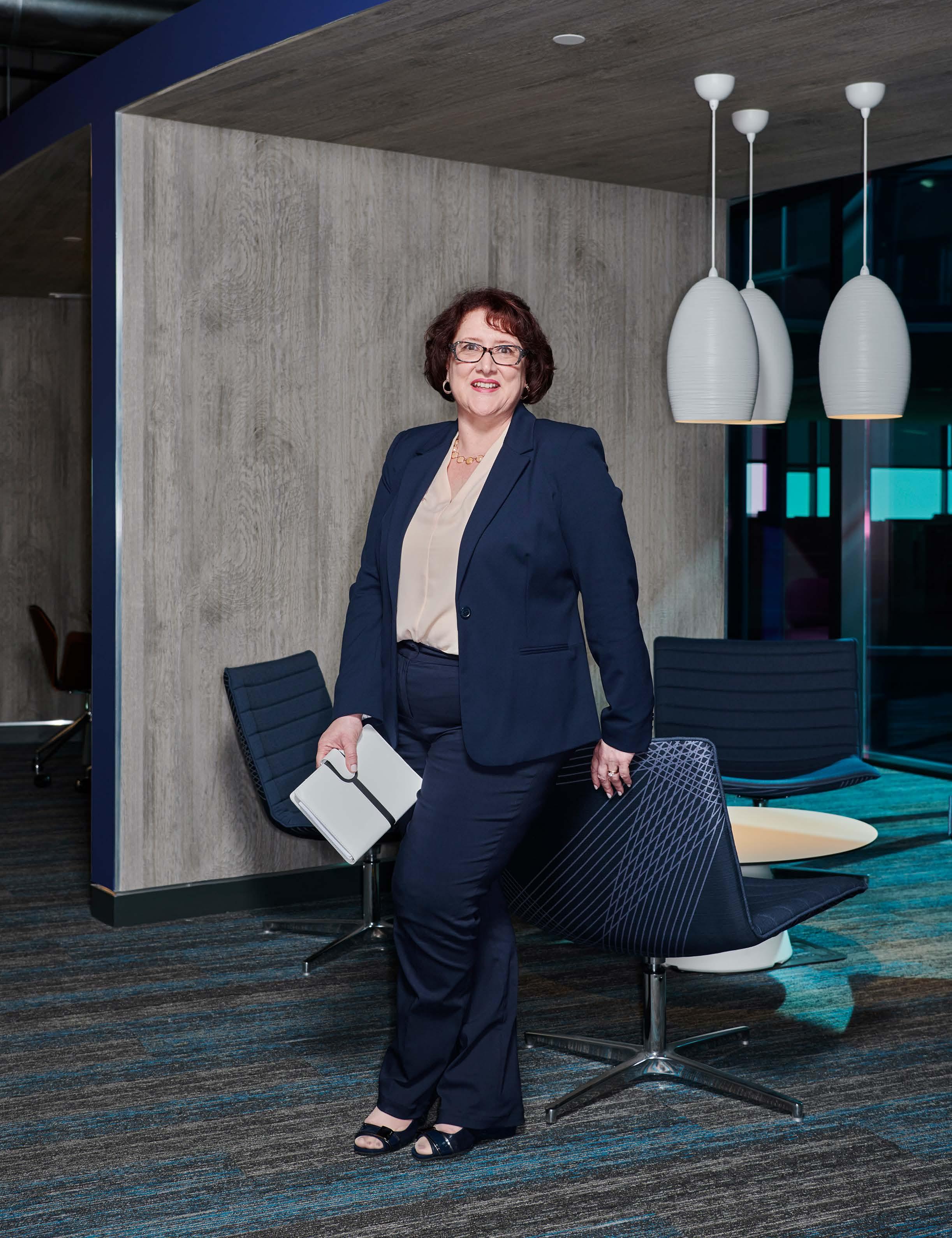
By Olivia N. Castañeda
by Jonathan Zizzo
Jacqueline M. Thomas is the group vice president and chief compliance officer of Toyota Motor North America (TMNA). As she reflects on the success of her career, her mission is to share her personal story and inspire others.
Thomas began working for Toyota in 1999. From the moment she entered the doors of the company, she felt right at home. Toyota’s core values aligned with hers, making her feel as though she had always been a part of the company. She has climbed the corporate ladder, first as a financial projects manager and later as internal audit director. She’s also held the positions of chief audit executive and vice president of corporate responsibility.
In 2015, she was appointed chief compliance officer for the newly formed Toyota Motor North America Inc. (TMNA). In 2017, Thomas was promoted to her current role as group vice president and chief compliance officer, reporting directly to CEO Jim Lentz and the only woman doing so at the C-suite level. Responsible for providing strategic direction and leadership over multiple departments—which include internal audit, compliance and ethics, regulatory compliance, customs and trade compliance, and assurance—Thomas ensures TMNA’s commitment to integrity and principled performance through her division’s compliance and audit efforts.
Toyota has two foundational cultural priorities: respect for people and kaizen Kaizen is a Japanese business-philosophy term that means the continuous advancement of working practices and personal efficiency. “There’s no best. There’s only better,” Thomas says. “Keep changing and improving.” The other pillar of respect for people refers to the power of team dynamics at its best through collaborating and accomplishing greater successes. “Those two values are primary motivations for me, which made it easy to fit in from the moment that I arrived,” she says.
Thomas’s core values come from her upbringing and the lessons that she learned from her family. Born in Miami, she is a first-generation American and the first of her generation to receive a college degree—a bachelor’s in economics from the University of California, Los Angeles. “A commitment to education was one of the important values that my family brought with them when they left their native country,” Thomas says. “They lost a lot. Despite this, the one thing I always heard them say was that education and acquired knowledge are possessions that can’t be taken away from you.”
The Menendez family emigrated from Cuba in the early 1960s and only took what they could fit in a duffel bag. When the Castro regime came into power, the Menendezes witnessed their friends and family members being imprisoned and executed. As Cuba fell further under Communist control, Thomas’s uncle fought in the Bay of Pigs as a last stand to save the country they once knew and was imprisoned for two years after the failed military intervention. It became clear that, to survive, the Menendez family would have to leave everything they knew to find basic rights like freedom of choice and free speech.
The power of finding your voice and speaking your mind became and still are today the family’s legacy—something they were willing to sacrifice everything to obtain. “I learned early on to never be a victim of your circumstances,” Thomas says. “You have options in life and can overcome difficulties through hard work and resiliency.” The value of the lesson shows how to overcome a challenge—with hope and the belief that with each new day comes a new beginning.
Upon arriving to the United States, her father, who had been an officer and professor in the Cuban navy, began working as a welder for a sugar cane factory. Later, as a second mate sailor on a cruise line, he traveled from Miami to the Bahamas. Then, later in the 1960s, when Thomas was two years old, her family relocated to California in search of a more diverse lifestyle and employment opportunities.
Her mother worked her way up to a management position in accounting for a telephone company. Her father held two jobs as a telephone engineer by day and as a retail sales associate, later a travel agent, by night. Their efforts allowed them to purchase a house and fund Thomas and her younger brother’s education. In between work shifts, her father would have dinner with his family. It was then that Thomas began to understand the sacrifices her parents made to give their children a better life.
“They left everything behind to provide me with freedom,” Thomas says. “For me, I wanted to honor their sacrifice and their legacy by pushing myself harder, initially in school and later once I entered the workforce. I had a strong sense of responsibility to succeed.”

In her role as group vice president and chief compliance officer, Jacqueline Thomas is the most senior Latina at Toyota Motor North America Inc. Here, she shares a few pointers and tactics that define her leadership style.
• Have passion for what you do. If not, you won’t enjoy your job.
• Refuse to settle for the status quo. You may amaze yourself with the results.
• Aim high. Behave as an executive of the company. What decisions would you make if you had that authority? How would you act?
• Character and integrity matter more than status and title.
• Don’t be afraid to be the first one to try something new.
• Don’t be a victim. Life is full of choices. Never believe that you don’t have one.
• Have the courage to speak your mind. Never leave something important unsaid.
• Believe that you are the best at what you do and that other people want to hear what you have to say.
• Remember to dream and that there’s always hope. Dreams can become a reality, and hopes materialized can seem like miracles.
• People come first. If you have a choice between performing a task or developing a relationship, go for the opportunity to forge a relationship.
• Always begin with the end in mind. Know your audience and what might be on their mind.
• Be first to volunteer for a task and to complete the assignment.
• Don’t overextend yourself. Know your limits, and learn the importance of pacing.
• Learn to appreciate the uniqueness of others. Honoring the differences makes us stronger. We’re all part of a larger family.
Thomas’s strategy to persevere and achieve success from elementary school to college was through assimilation and creating a dual identity. Although she was very proud of her family, she would downplay her Cuban background to better fit in, which left her feeling incomplete—appearing more Americanized during the school week and then being authentically herself on the weekends. When she started her career in the oil and gas industry for Atlantic Richfield Company in 1985, she began to fully embrace her whole self as her job required a lot of traveling, which provided her with diverse experiences. “My heritage and language skills were useful when traveling globally,” Thomas says. “These experiences provided me with the opportunity to fully embrace my authentic self.”
Since then, she has taken her family-oriented attributes and applied them to the job. As a strong advocate and champion for others, she has the reputation of being a valued mentor. She now brings her full self to work every day, inspiring her team to higher levels of performance and encouraging team members to bring their best selves to work.
The strategy to bring out the best in others, Thomas explains, is investing time in getting to know the others on a personal level by spending more time listening rather than talking. Understanding each person’s passion and talents provides guidance for challenging them to go further than they expected and to exceed their personal expectations. Thomas has also applied these same lessons when communicating difficult messages. The timing and pace of delivering a message or conveying information is also critical to how impactful something will be to the person on the receiving end. “Always think about your delivery from your audience’s perspective. Regardless of any obstacles, never give up,” Thomas advises. “You can learn from positive and negative experiences alike.”
Her team spirit comes from the bond she forged with her extended family. She recalls a time when an uncle with limited resources needed a car and the whole family pitched in. Another relative needed to relocate, and the family worked as a team to help. Strength in numbers and shared experiences shaped Thomas’s earliest development.
Recently, Toyota merged the sales and marketing group with the manufacturing organization to form a new company, TMNA, headquartered in Plano, Texas. Because of the large number of people that Thomas is now leading, she is on a mission to share more of herself so that the new team members can feel confident and comfortable in knowing exactly who their following.
“In my life, one-to-one connections and making a difference for people to enable them to be successful are the legacy that I would like to leave,” Thomas says. “Through my life lessons, I hope to inspire others to find the courage that they need to be their authentic self.”

Toyota is proud to support Latinas in business and showcase our very own Jacqueline Thomas, Group Vice President, Chief Compliance Officer to promote Hispanic Executive’s mission of bridging the gap between corporate America and Hispanic America.















By Karen LeBlanc
Silvia Johnson was firmly established in her career as human resources executive in the technology industry when an offhand comment by another executive crystallized her professional mission of fostering workplace diversity. “I had an executive tell me that they were surprised I didn’t have more spark in me because I was a Latina,” she says. “I was like, ‘Are you kidding me? Not all Latinas scream at each other.’”
Ironically, Johnson’s personal encounter with racial stereotypes came on the cusp of her promotion from a senior director position to a vice president position at Symantec. “It has changed the way I think about certain things, and it ties back to the importance of asking people how they feel and how they are experiencing the work environment,” she says.
As an immigrant who was born in El Salvador and moved to the United States at age two with her three older siblings and her parents, Johnson brings an authentic perspective to everything in her life. In particular, she is inspired by her parents to succeed in her career of cultivating diversity in the workplace.
“Growing up, my parents constantly reminded us that they brought us here to flourish and thrive and have the best life possible,” she says.
Through data-driven analysis, employee engagement, freedom within a framework, and inclusive recruitment practices, she has built a brand as an HR professional and a professional speaker.
At Symantec Corporation, a Fortune 500 global cybersecurity company with more than one hundred offices in fortythree countries, Johnson was responsible
for strategically managing the company’s makeup. She enhanced diversity among Symantec’s twelve thousand employees with quantitative and qualitative initiatives, including a series of surveys and executive roadshows, where she traveled internationally meeting with Symantec managers and employees from different areas. “It’s about having a pulse internally within the company,” she says.
She emphasizes the importance of measuring all aspects of diversity, equity, and inclusion in the workplace at both a macro and micro level. “You can’t go to the CEO with a gut instinct about deficiencies,” she says. “You need data. Sometimes the problem is not with the big company processes but rather what’s happening at the micro level.”
At Symantec, Silvia found, through data and honest conversations, several
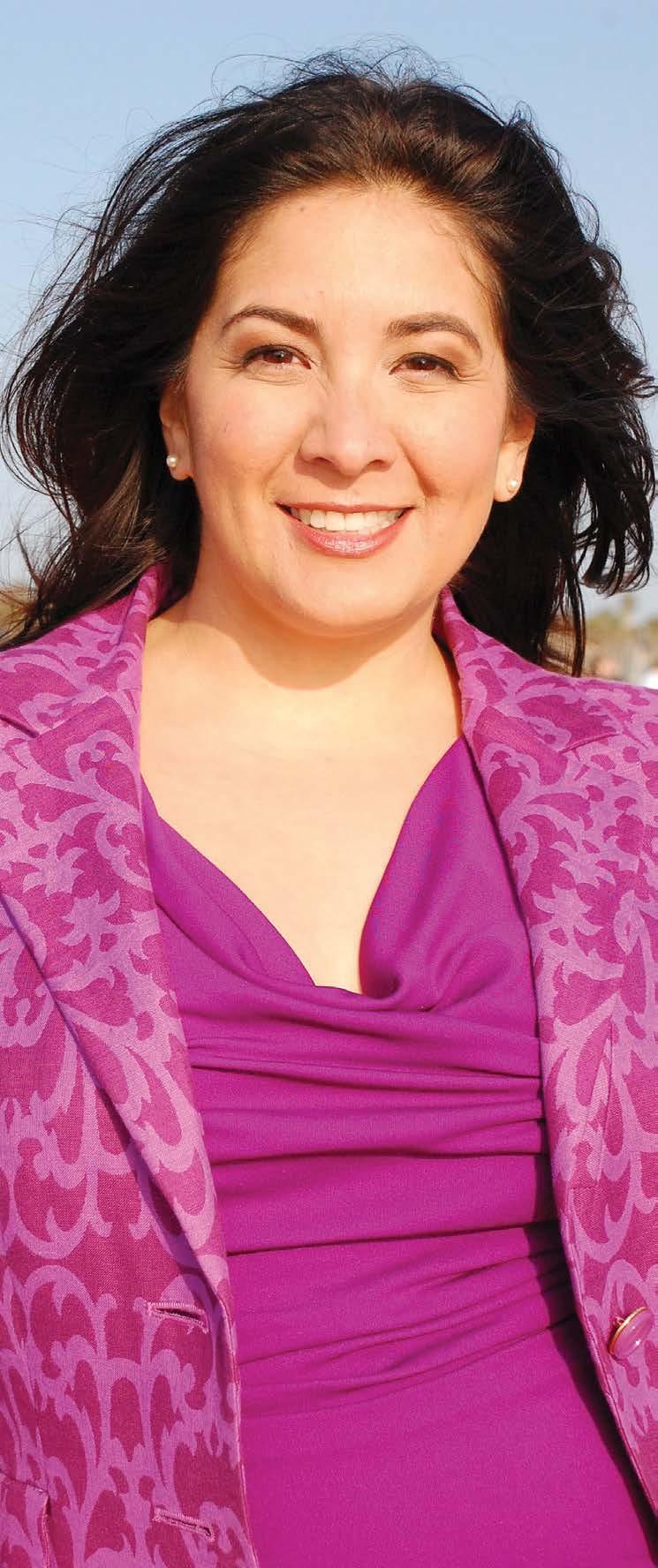
BetterUp is proud to be your partner in providing personalized development support to Symantec leaders at all levels.
betterup.co
microlevel issues that were hindering the recruitment and retention of a diverse talent pool. For example, she worked on something as simple as improving the company’s website content to better represent its inclusive corporate culture. “We have to acknowledge that people have different personalities and value sets,” she says. “I believe human resources executives should talk to employees, ask the tough questions, and present those findings to your executive leadership.”
Johnson has also built her career on developing workplace policies that, she says, gave employees freedom within a framework. “Employees are not just there to churn and burn,” she says. “They have multidimensional lives, so the challenge is to create environments where they can flourish. As a human resources executive, I have to think about what the company wants to achieve and how it’s going to operate and hold employees accountable to those guidelines and structures.”
On the recruitment side, Johnson has re-envisioned the criteria and resources in the search for a diverse talent pool. “Relying solely on the company’s employeereferral program limits diversity because you end up with like-minded people,” she says. “Also, putting artificial criteria in place, such as requiring high grade point averages or degrees from top-tier schools for candidates, becomes a funnel problem limiting diversity. I’m a great example because I graduated with a 2.7 GPA from the University of California, Davis, yet I would venture to say that I’m more successful than some of those other candidates with higher grades because I’m scrappy and wanted to work hard.”
At the outset of her career, after she graduated with a degree in psychology, Johnson worked at Macy’s, where she was responsible for the recruitment and coordination of seasonal employees. “I had a love for psychology, but I realized—after an internship with a psychotherapist— this was not the kind of work that I wanted to do,” she says. “I talked to mentors and
teachers, and somehow this thread of human resources came up because it’s about helping people in a corporate setting.”
Johnson has advanced in her field by embracing the “80/20 rule,” an economic principle known as the Pareto Principle that posits 20 percent of the input creates 80 percent of the result. “I’m always prioritizing and focusing on that 20 percent,” she says. “That’s why we saw big results at Symantec in the diversity space because we were laser-focused on the 20 percent that made the biggest difference.”
In June 2018, however, Johnson left Symantec for a lifestyle change and to move to Lake Tahoe.
As she weighs new career opportunities, Johnson is working toward a master of fine arts in creative writing at Sierra Nevada College; she plans to write a book for human resource executives on how to best influence for positive change in the employee experience. In addition, she has aspirations to write young adult fiction from an immigrant’s vantage point. And as an expert on diversity in the workplace, she is also busy on the speaker’s circuit in addition to mentoring, doing podcasts, and continuing to push the diversity agenda forward.
At the end of the day, Johnson knows she isn’t the only one enjoying a thriving career inspired by the work ethic her immigrant parents instilled in the family. Her three older siblings also have successful careers in the science and technology fields. Her late father, a teacher in El Salvador, worked janitorial jobs, and her mother, once a homemaker, cleaned houses, worked in the kitchen at United Airlines, and also worked janitorial jobs to provide for their children in the United States.
“We are highly successful by any standards, let alone that of immigrants,” she says. “Immigrants do contribute to the society and can be role models to other immigrants. They bring diversity of thought, experience, culture, values, and upbringing that enhances a company performance in this global economy.”
By Karen LeBlanc

In December 2001, Marisol Fisher, a recent architecture school graduate, had just arrived in the suburbs of Chicago to embark on a three-month work exchange program to practice English and experience American culture when serendipity stepped in. “As I was making copies of my résumé in a printing shop, somebody from an architectural firm took my résumé, left a business card, and suggested that I call that number,” she says. “I called, got the interview, and three days later, the owner of Arete 3 drove all the way to a McDonald’s drive-thru window to tell me I was hired. At the time, I had no idea delivering that one coffee was going to change my life forever.” After three months on the job, Arete 3 sponsored Fisher for a work VISA, and she remained with the firm until 2006 when she joined Hyatt Hotels Corporation.
Today, as director of design and planning for the design services department of Hyatt Hotels Corporation, Fisher manages the design of multiple, concurrent new construction and renovation projects for Hyatt’s luxury, upper-scale, lifestyle branded properties in the Americas region. “I provide design direction to ensure the design team understand the DNA of each brand, throughout all phases of design until hotel opening,” she says.
As a Latina architect working in a male-dominated industry, she shatters stereotypes and builds consensus in her job by remaining authentic, building genuine relationships, and connecting with people.
“When I connect with people on my design team, preconceived stereotypes about me, my skin color, and my background disappear,” she says. “Others appreciate my expertise and the added value that I bring to the table. Hyatt has really embraced my background, and they allow me to remain authentic to myself. Having lived and studied in Colombia allows me to bring a unique perspective and skill set to serve the projects that I lead within the Americas region.”
As a Colombian living and working in the United States, Fisher has fought for respect by engaging with people and
Growing up in a household of design and construction professionals, Fisher knew architecture was her career calling early on. Her mother is an architect, and her father is a civil engineer. As a child, Fisher incessantly drew pictures of houses, so much so, in fact, that a teacher took note, expressing dismay.
“Architecture, design, and construction were always a part of my life and a daily topic at the dinner table,” she says. “I was born to be an architect, and I love the balance of being creative and artistic yet working with the structure and precision that architecture requires.”
ignoring the noise surrounding gender and racial biases. “I often have to dispel preconceived stereotypes and comments of my Colombian culture, education, and gender,” she says. “My degree comes from one of the most prestigious universities in Colombia, yet I have to defend my credentials by working hard and remaining humble because I didn’t study at an American or European accredited university.” Fisher graduated from Universidad de Los Andes in 2001, and upon joining Hyatt Hotels Corporation in 2006, she advanced from her roles in Hyatt International Technical Services to her current position.
With more than ten projects on her plate at any given time, Fisher facilitates collaboration, communication, and conflict resolution among owners, developers, Hyatt’s operations team, the company’s design team, and other specialty consultants throughout the design process. “Hotels are complex projects that come with many design challenges, budgetary concerns, and conflicting expectations among all of the stakeholders,” she says. “I have been successful in my career by connecting with people, listening, and building genuine relationships. This has allowed me to understand all perspectives brought to the design table so that I cannot only embrace their unique point of view but also lead the design team to bring the design vision to life.”
Fisher works from Hyatt’s headquarters in Chicago but travels 50 percent of her work life. “When I travel, I visit the construction site, attend design coordination meetings, report on the construction progress, visit properties for property-improvement plans, review mock-up rooms, and attend dinners with colleagues and team members.”
The hectic travel schedule is exciting but presents its own challenges as Fisher looks at her career for the first time as a working mother; she celebrated the birth of her first child this past year. “As a new mom, I will have to learn how to continue to travel while having a baby at home,” she says. “It was much easier with just my husband and dog, but I
have the support of my family to continue with my career, which I love.”
Fisher has seen tremendous evolution in hospitality design and architecture in her twelve years working with Hyatt. “One of the biggest changes I’ve seen happened in conjunction with the recession in 2008, when people had to break with the conventional ways of designing hotels,” she says. “We had to redefine the meaning of luxury. Luxury was no longer about expensive materials but rather personal service, delivering authentic and unique experiences, exploring ways to maximize efficiency in the design, and asking our guests what they wanted rather than us dictating to them the experience we wanted them to have. There are so many things shaping the way we do hotels now. You have to be nimble.”
Today, Fisher focuses the design teams on providing unique guest expe riences through the lenses of each brand. “Each brand already has very defined and well-researched guest experiences that take into account the current traveler ex pectations and lifestyle,” she says. “From a product perspective, I encourage design ers to always challenge convention and take risks.”
After seventeen years in the field, Fish er advises anyone interested in following her career track to constantly feed the cre ative mind by remaining curious. “Keep your mind open to learning and your eyes open for inspiration, and try to break the rules of conventional design,” she says. “If you end up managing design, embrace people and their unique point of view.”





Through authenticity, empathy, un derstanding, and active listening Fish er fosters creativity and consensus that allows all members of her design team to succeed in a common goal. These are behaviors that are at the heart of Hyatt’s purpose—which is to care for people so they can be their best. “Hyatt’s purpose not only taught me how to develop skills that allow me to successfully manage the design teams,” she says, “but it also confirmed to me the importance remaining authentic to myself and being proud of my race and background.”

https://www.facebook.com/ZurcherArquitectos/ https://www.instagram.com/zurcherarquitectos/?hl=es-la
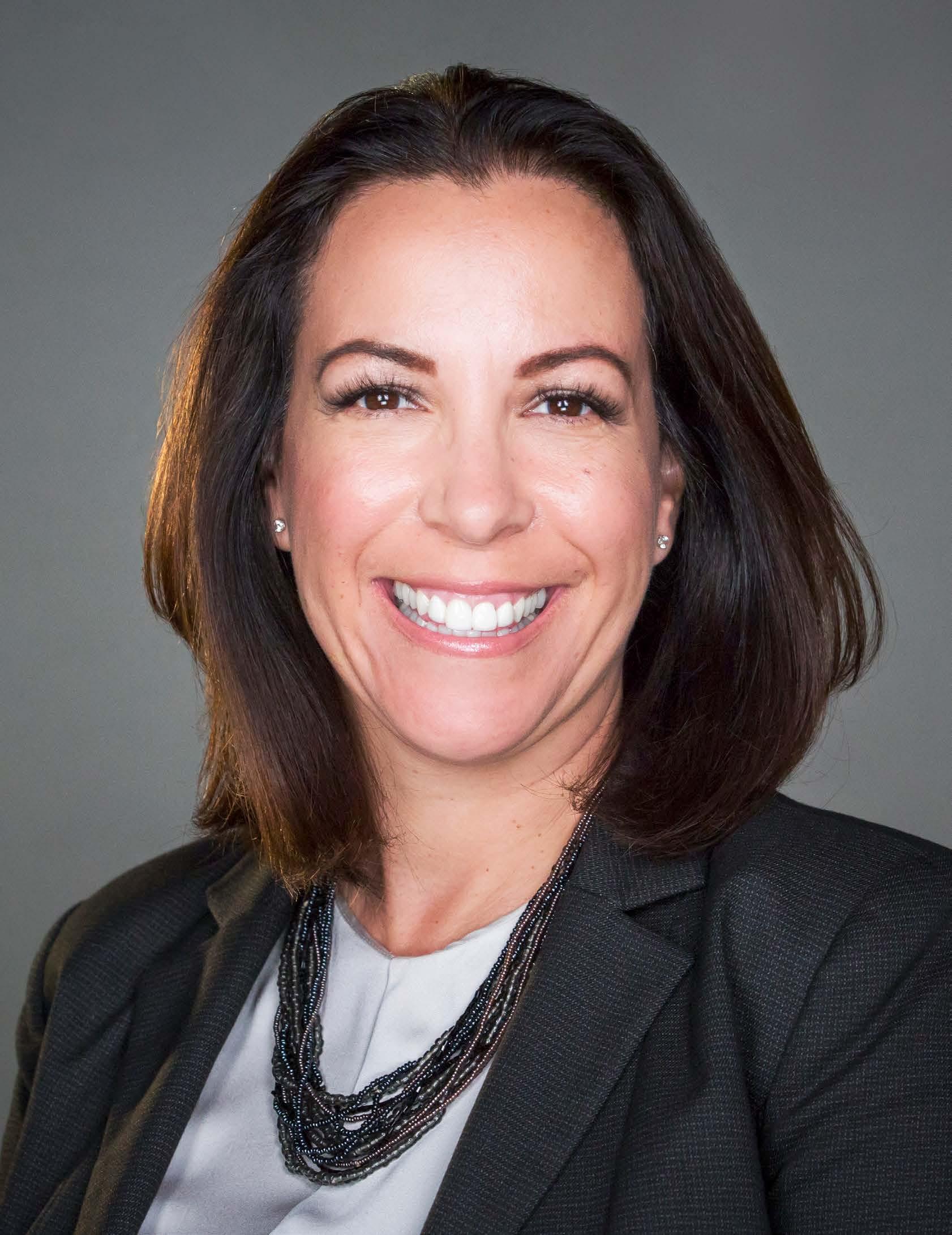
Salinas Executive Director of IP Litigation
By Jeff Silver
Jennifer Salinas brings twenty years of intellectual property expertise to her new in-house role at Lenovo
has had many milestones she wanted to achieve in her legal career—among them, developing a certain amount of business and becoming a go-to first chair IP litigation partner. Over the course of a twenty-year career in private practice, she reached all the goals on her list. However, she always had the sense that she would end up transitioning to an in-house counsel position.
Now, as executive director of IP litigation for Lenovo, a leader in intelligent transformation, she has accomplished that, too. “I’m a problem-solver and have always enjoyed being part of the decision-making process that can identify and address issues before they get out of hand—which is usually where outside counsel steps in,” Salinas says. “I think I always knew that my skill set is actually better suited to in-house, so coming to Lenovo makes me feel like I’m where I’m supposed to be.”
A self-proclaimed tech geek, she is also very excited about being in an environment where she can see innovation at work and getting advance peeks at new products and services before they come to market. Additionally, working collaboratively with numerous global partners and having the chance to be part of a team on a larger playing field than ever before invigorates her.
“Jennifer is fantastic attorney and a wonderful person,” says Eric Findlay, founding partner of Findlay Craft PC. “She’s incredibly hardworking, dedicated, and never quits. More than that, I’m honored to call her a friend and am excited for her as she begins this new chapter in her professional career.”
Salinas began working with Lenovo ten years before coming in-house and has witnessed its transformation and growth, including the company’s acquisitions of Motorola and IBM’s server business. Those experiences familiarized her with the company’s legal department and its overall objectives, but she is now in the process of getting to know a much wider array of internal
processes, protocols, and products, as well as the individuals in many different business units.
In addition to her own reading and researching, she says she is learning more about the company by doing a great deal of listening. “I’m very team focused and have made a specific effort to find time to meet one-on-one with as many people as possible,” Salinas points out. “Beside making sure they know they’ve been heard, it makes them feel like they’re part of something and creates a better, happier, and more productive environment.”
That kind of relationship-building extends beyond the legal team to her internal clients, as well. In addition to helping her fully understand their needs and priorities, her conversations provide an opportunity for her to show that she is a trusted advisor and resource, not a nay-saying lawyer who should be avoided. “I want potential clients to get to know me and what I have to offer, part of which is being very client-focused and working effectively to address their concerns,” she says. “They have to get to know me to invite me to the table, though, so building these relationships is a real priority.”
To help illustrate her pragmatism, Salinas tells the story of a former global client that was concerned about compliance issues related to product-labeling in the United States. One of her colleagues became very focused on potential liability and discussed the possibility of product recalls that could have cost tens of millions of dollars. Salinas, however, discovered that the fine for a product-labeling infraction—if one actually existed—was no more than $30,000. For her, this demonstrates the importance of always maintaining a proper perspective, fully investigating the root causes of any issue, and assessing what solutions are truly in the best interest of the business.
In addition to her responsibilities at Lenovo, Salinas has also recently become president of the Hispanic National Bar
National Experience. Local Expertise. TYLER / DALLAS / MARSHALL
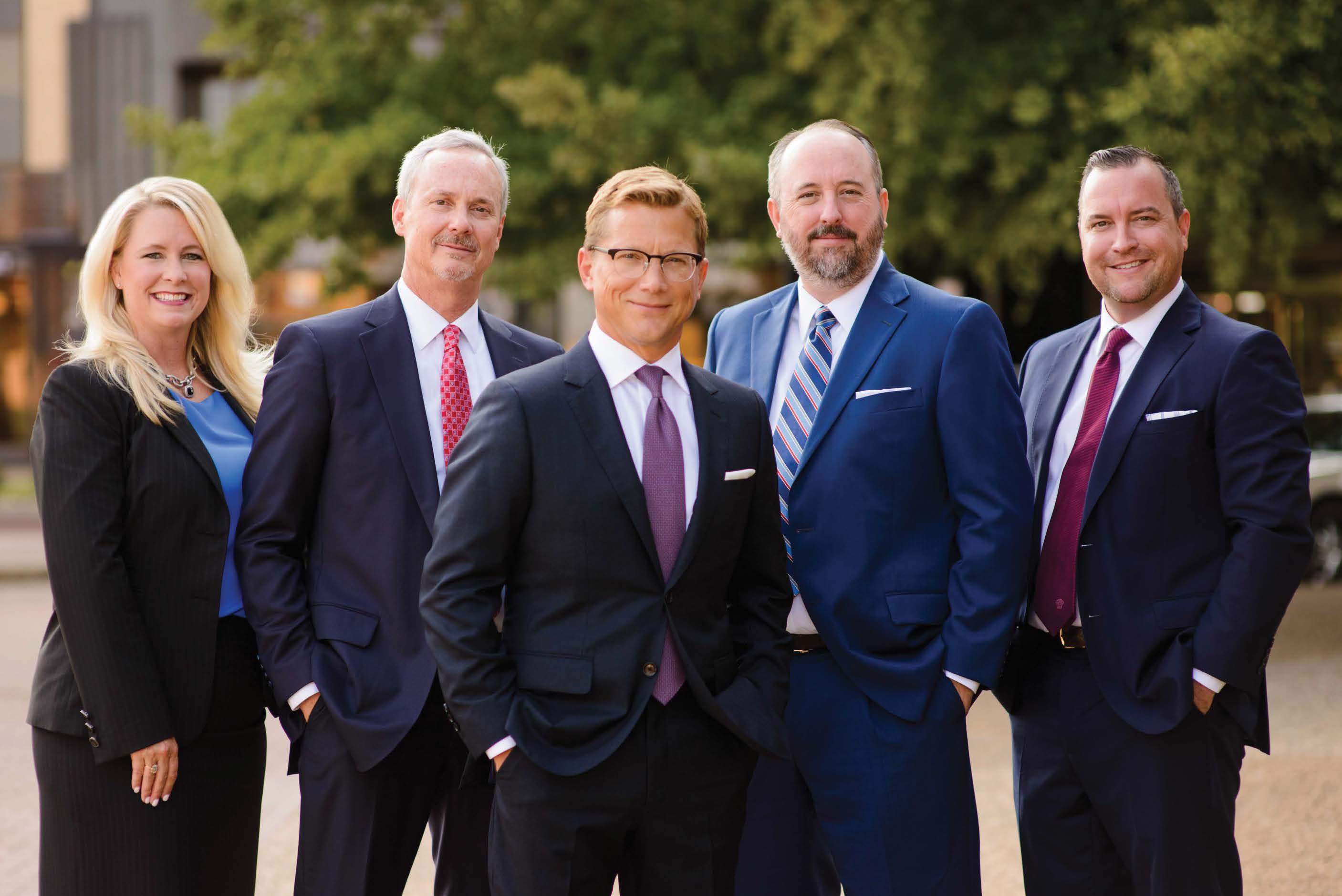
dynamic and approachable legal presence strengthened by years of experience and knowledge. Charismatic and compelling in the courtroom, deliberate and ingenious when seeking a resolution outside of it, the attorneys and staff of Findlay Craft are steadfastly focused on the objectives and goals of our clients. Clients first. Problems solved.
Over the past 20 years, the attorneys of Findlay Craft have represented dozens of clients in hundreds of cases throughout the various divisions of the Eastern District of Texas and beyond. Our substantial trial experience in these cases, combined with the intimate knowledge of both the local rules and the district’s patent guidelines, makes Findlay Craft uniquely suited to guide companies and individuals through complex litigation. Welcome to “Big Law” quality and experience at small firm rates.
IMMIGRATION
INTELLECTUAL PROPERTY
PERSONAL INJURY
TRANSACTIONAL/ CONTRACTS

Association (HNBA). She has discovered that Lenovo’s diversity and inclusion practices are very much in line with her goals for the nonprofit. Not only have Latinos been Lenovo’s fastest growth executive group, she has found a culture of meritocracy that is often lacking in many private law firms. The company supports Hispanic employees in growing their careers at Lenovo through its HOLA, Employee Resource Group.
Salinas has happily agreed to speak at a number of related events for Lenovo and other organizations that will focus on young people. She grew up in a tough neighborhood in difficult family circumstances, but she had a significant mentor: Mr. Cannon, her fourth-grade teacher, who she says made a tremendous difference in her life. “Mr. Cannon changed everything by showing me that my environment didn’t have to define me,” she says. “Especially in the legal profession, there are many times when I don’t look like the rest of the people at the table. But with my new role and responsibilities, I can reassure kids that look like me of how much potential they have. It just takes one person to make a huge difference.”
That priority is part of what she plans to bring to her leadership at HNBA, as well. She will be encouraging sponsors to become more invested in developing new legal talent by providing resources to those without friends, family, or mentors who can help guide them to make wise academic and career decisions.
“My parents didn’t graduate from high school, and I didn’t have anyone who could offer academic and professional insights,” Salinas says. “I want HNBA to provide the knowledge and skill sets members need, whether they want to be solo practitioners, part of the judiciary, or work in-house at a major corporation.”
As she continues to settle into her new position, Salinas says there are a few things that have surprised her along the way. In addition to innovative products and service offerings, she discovered the company’s innovative approach to the workplace. She has found the investment Lenovo makes in its people and culture—everything from benefits and lifestyle considerations— including flexible, remote working arrangements—to ongoing process improvements and encouraging a collaborative environment—creating a very collegial work environment.
But she has also noticed a difference in the way that she and her work are perceived. “I’ve always been valued by my clients,” she says. “At Lenovo, I not only feel valued, but I’m able to use all of my capabilities on a regular basis. That feels pretty awesome.”
Troutman Sanders applauds Jennifer Trusso Salinas, President, Hispanic National Bar Association, for her continued efforts to advocate on issues of importance to the Hispanic community and to women.
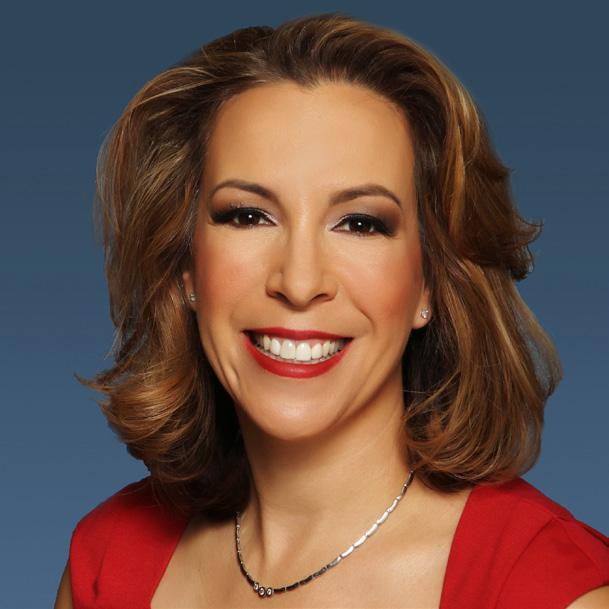
Troutman Sanders recognizes the benefits that a diverse workforce can provide to our firm, our clients and the communities in which we live and work.
At twenty-six, Shinjini Das is the full-time CEO of her own media content production agency. Recently, she’s been helping aspiring Latina engineers become their own self-made success stories.
By Dan Caffrey
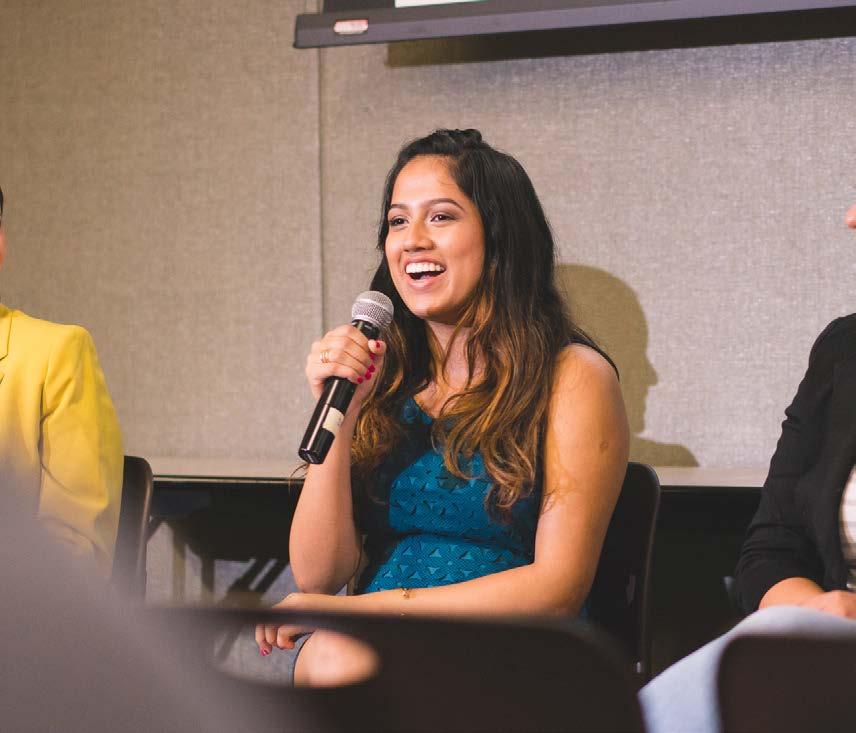
How does one say “go-getter” in Spanish? According to Shinjini Das, you can’t.
So, when the US Department of State invited Das to empower Latino youth in Paraguay in October 2017, she decided to keep the word in English, despite the rest of her presentations being entirely in Spanish. After all, she’s a self-styled “Go-Getter Girl.” The word is the very cornerstone of her brand and part of why each of her events during the week-long sojourn was at capacity. Das—who has nearly three million impressions a month on her social channels—believes it’s important for her fans all across the world to hear the word “go-getter” so they can be go-getters, too.
“Anyone who has a goal and wants to achieve it is a go-getter,” she explains. “But a lot of them need help with action. That’s where I come in.”
Throughout her travels in Paraguay, the twenty-six-year-old Das spoke in Spanish to thousands of youth, college students, and adults about everything from self-empowerment to building a career trajectory, business growth, and digital marketing strategies. The Department of State asked her to make the trip as a keynote speaker with the US Speaker Program because of her own success and background as a Spanishlanguage expert.
Although Das, herself, is Indian, she discovered her love of Spanish culture in high school after she moved to the United States, becoming fluent in the language. Now, she is focusing much of her media content production agency, Das Media Group, on empowering women in the Hispanic community.
“The genesis of the brand was, ‘Why can’t we celebrate accomplishments, specifically with women?’” Das says. “'What if we used the media to empower people?'” She points out that, in the Latin American community, the biggest role models aren’t usually recognized for their educational backgrounds or academic skills.
“They’re essentially the footballers and the supermodels,” Das says. She also stresses that while it’s important to have public figures celebrated for athletic prowess and fashion savvy, it’s equally
important to have highly visible popular role models in the fields of science, math, and other educational areas. When she went to Paraguay, many of the students told her they were eager to look up to someone with an advanced degree or accomplished educational background. Part of Das’s mission is to bridge this content gap between intellect and pop culture in the media
That’s why she doesn’t shy away from being vocal about her own background. In addition to speaking three languages, she has a bachelor of science in industrial and systems engineering from the Georgia Institute of Technology, where she graduated with honors and served as the undergraduate commencement speaker. Following graduation, she worked as a business technology analyst at Deloitte Consulting and as a digital marketing strategy associate at Iron Horse Interactive before she was able to go fulltime with Das Media Group in 2016.
When she describes these accomplishments, it’s not about presenting her career so far as a laundry list of goals; it’s about showing people that their dreams are within their grasp, just like hers were. Simple awareness, Das says, is one of the biggest hurdles faced by women of color looking to fully realize their ambition.
“If the market is saturated by the same four people, it’s difficult for those who don’t have resources to start with,” Das says. She wants to be one of those resources, especially to those wanting to break into engineering, a field where, in the United States, women hold only 13 percent of jobs. The percentage of Hispanic women holding engineering positions is even smaller; just 2 percent overall, according to an October 2017 study by the National Science Foundation. As a highly successful woman of color with a background in engineering, she stands outside of the majority.
Das believes the second biggest hurdle is networking.
“When I speak about where the majority of our connections come from, they come from institutions—schools, education, the area where you live,” she says. “A lot of the kids I’ve met, they’ve never been
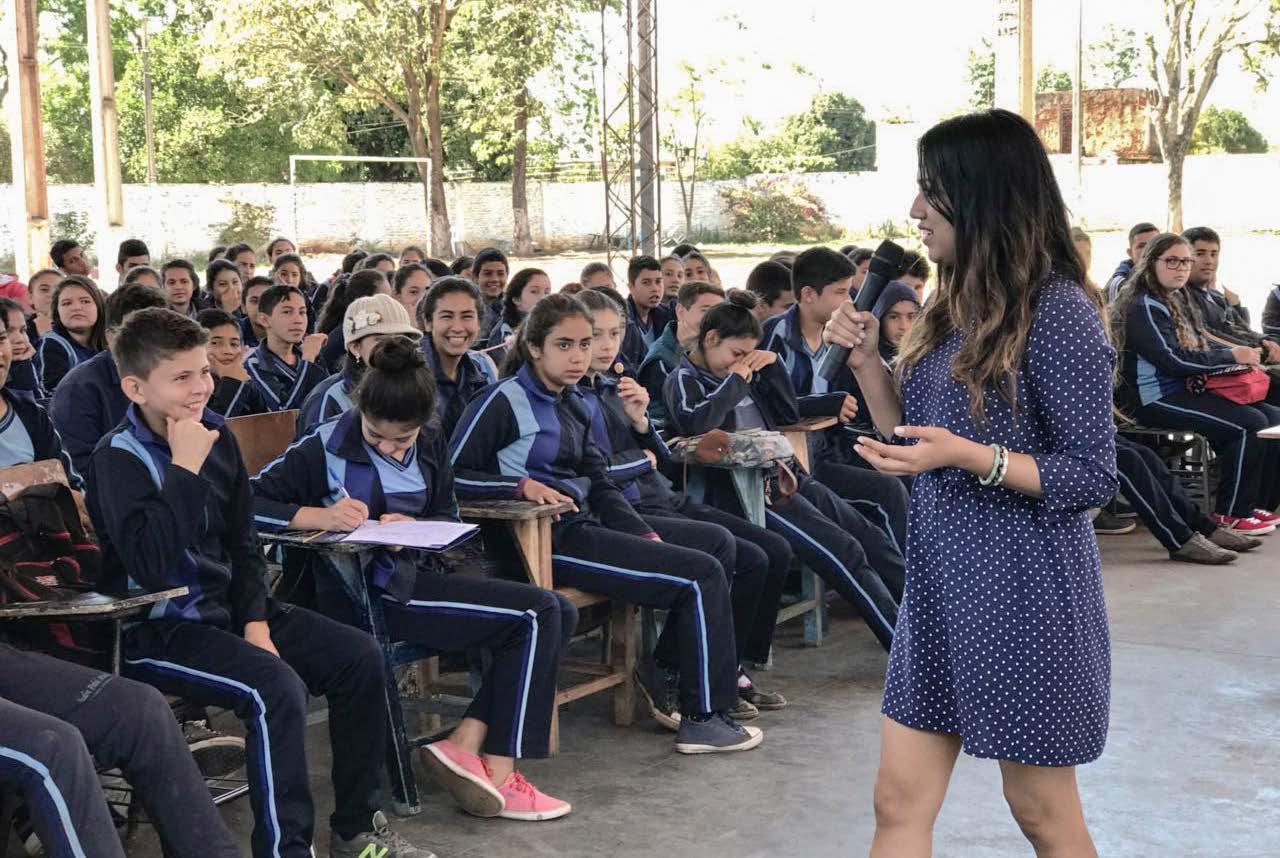
to the city. They’ve never even been two hours away.”
She wants to change that. She wants to be there as a connector, a bridge-builder, and a person who expands young Latinas’ own networks and makes them realize their world isn’t as small as they think.
“Quiero que la gente se acerque,” Das says. “I want people to reach out.”
And many have by attending one of her speaking events in Paraguay, listening to a variety of podcast interviews on Das Media Group’s website and on C-Suite Radio, and reading her coverage in publications such as Forbes
The appeal of her content isn’t just limited to individuals, either. Despite being not even two years old, Das Media Group has already partnered with several internationally recognized businesses to produce empowering media in a variety of formats. For instance, Chase for Business commissioned the company for a ten-part video series that provided small-business entrepreneurs with early- to mid-phase growth strategies. It generated more than 2.4 million impressions. Likewise, 2018’s SXSW saw Das Media Group partnering with Inuit to create image, photo, and
video messaging that asked small business owners to nominate female entrepreneurs for their #GirlOnFire campaign.
Over the next five years, Das is looking to expand her actionable content available to other go-getters by building a full-on digital media platform—one brimming with self-help videos, interactive media experiences, and perhaps TV series and films to help go-getters become the best they can in both their careers and lives.
But in the present, Das remains primarily committed to the continued growth of client partnerships at her agency and being a role model to many women of color who might be missing one. At age twenty-six, she looks forward to meeting those women face to face on an upcoming book tour of her first memoir— Unapologetically, Shinjini—as well as at future speaking engagements. Das calls her fans her #GoGetterFam because, to her, gogetters are not just fans; they’re family.
Partner with The Das Media Group to create content with meaning and to build deeper brand connections with your audience. For more information on the company, visit www.thedasmediagroup.com.
Linda G. Alvarado was the first Hispanic owner of a Major League Baseball team.
IHOP is a fully franchised brand with more than three hundred individual owners and operators, according to the company’s president, Darren Rebelez
Los Angeles is home to 65 percent of the Hispanic-owned businesses in California, according to Luis Patiño of Univision.
Benito Juárez
International Airport is the busiest in Latin America, currently serving approximately 42 million passengers annually. Monarch Global Strategies, however, is involved in a project to expand the airport's service.
The Salazar Family Foundation recently donated $10 million to the University of Colorado at Denver.


Choose Constellation as your guide. We have the energy experience and market insights to help you ask the right questions and find the right answers. Our expertise, innovative thinking and dedicated customer service will help you understand options for your home, and customize solutions for your business. That’s why two million customers—including two-thirds of Fortune 100 companies—consider Constellation America’s energy choice®
Energy made simple. Energy made simple.